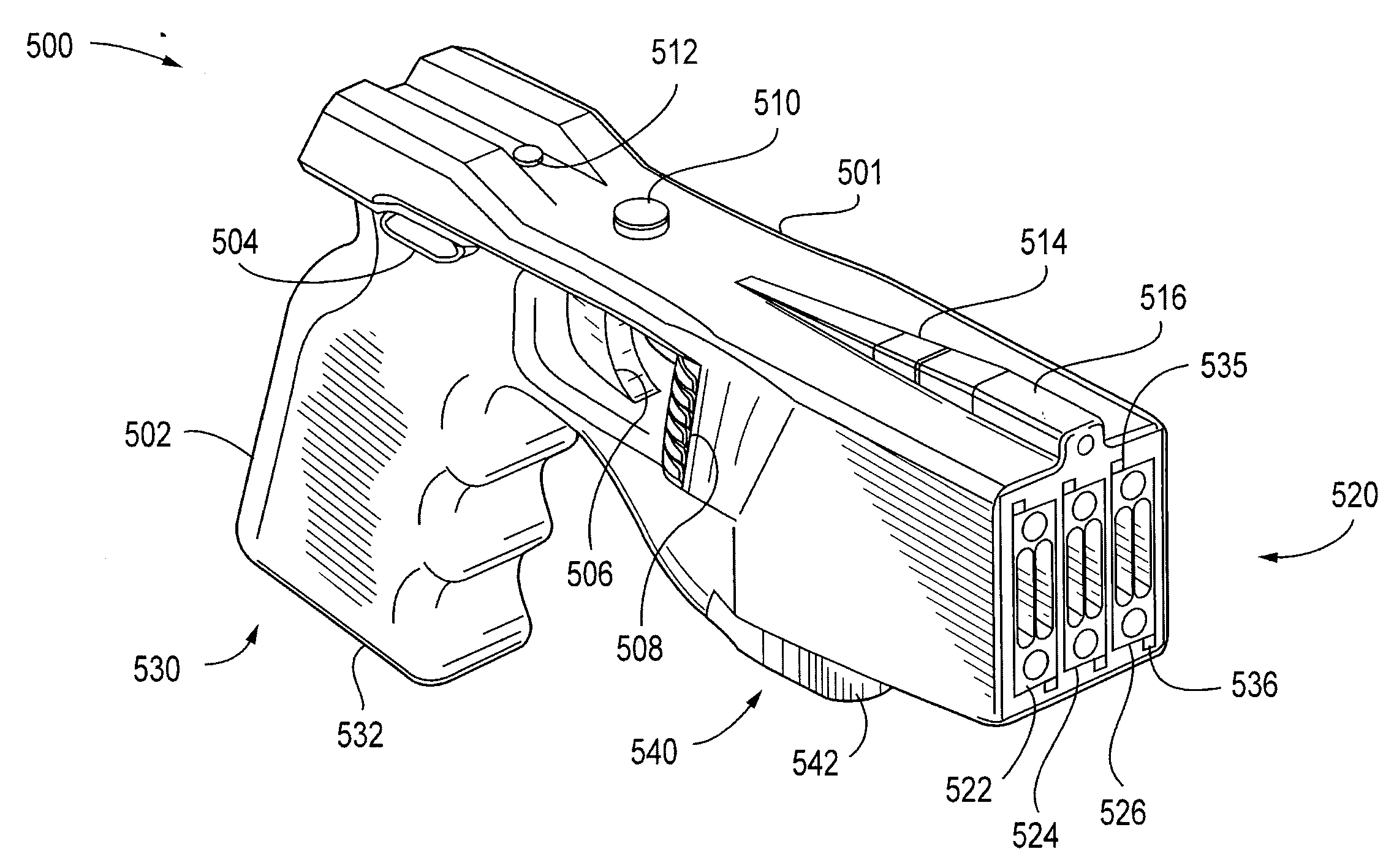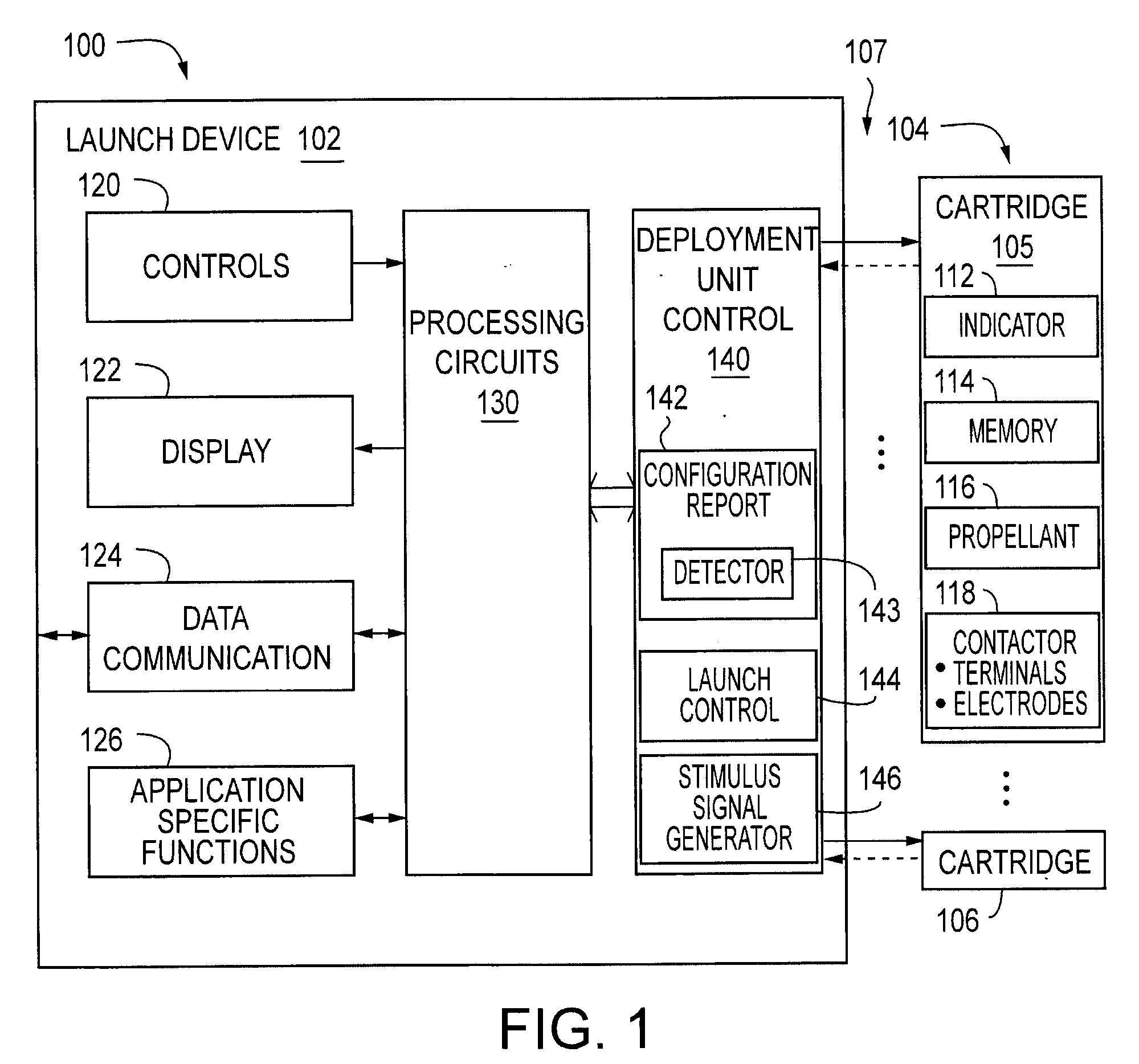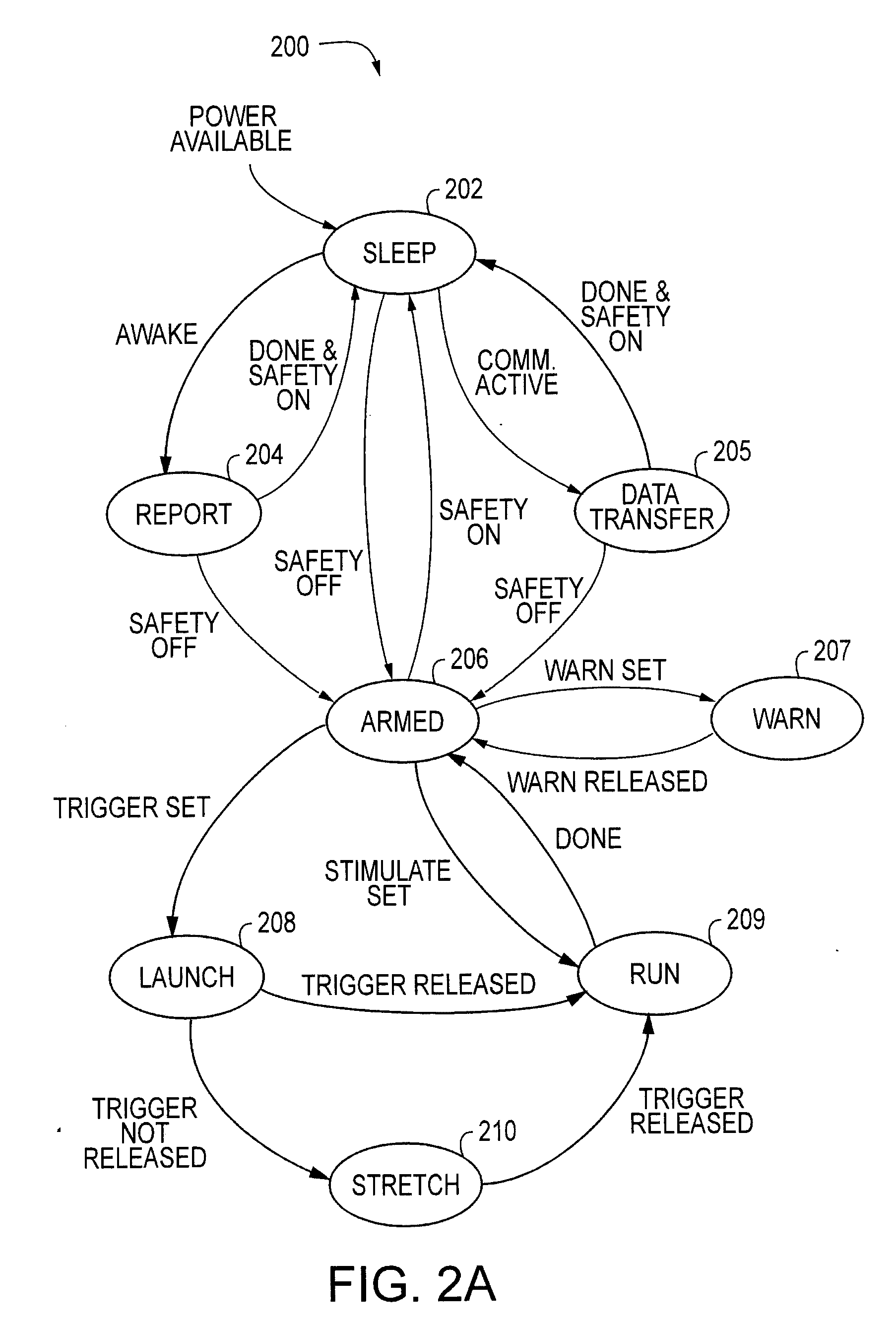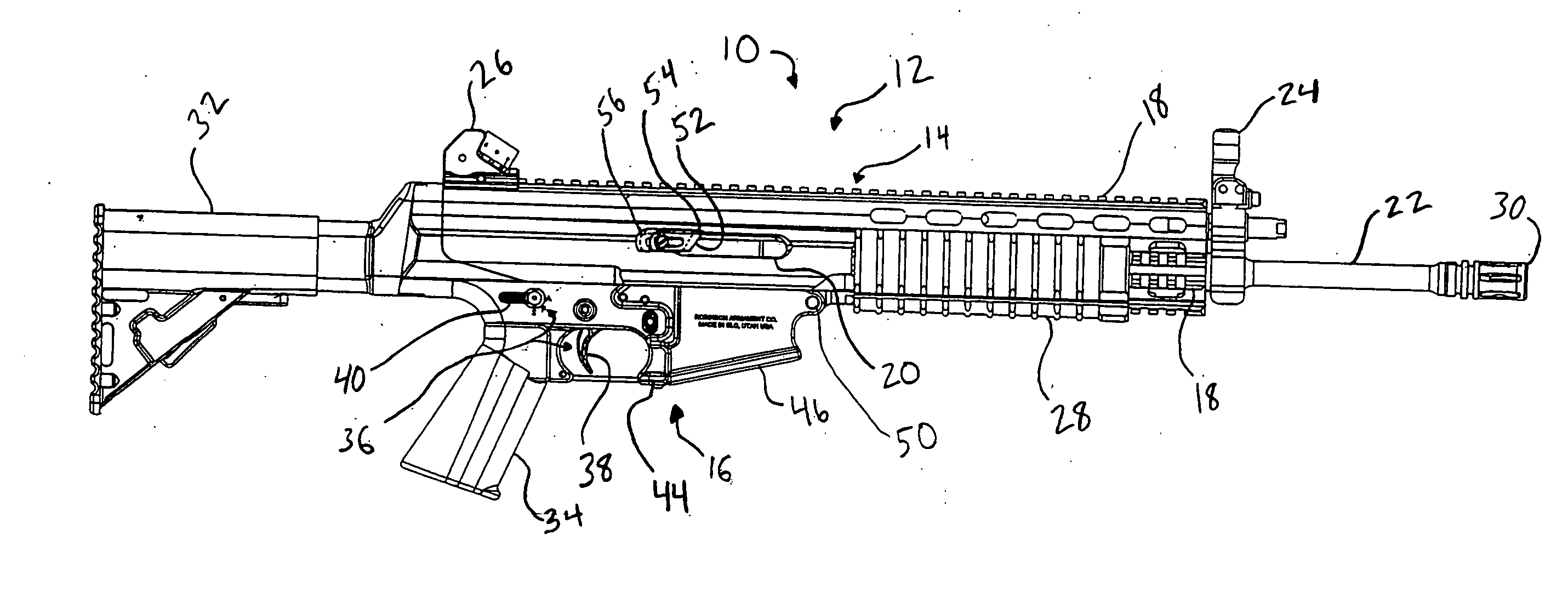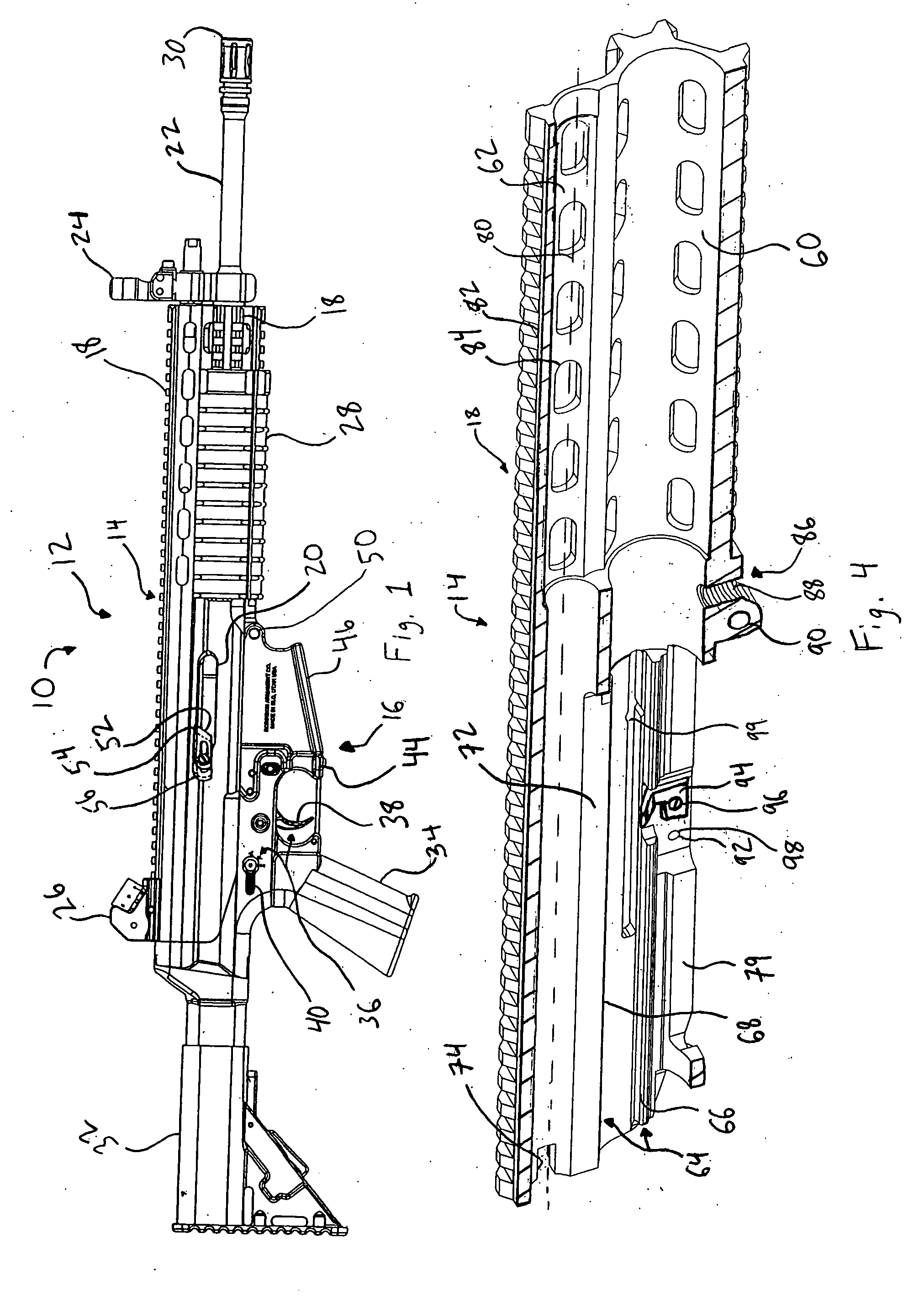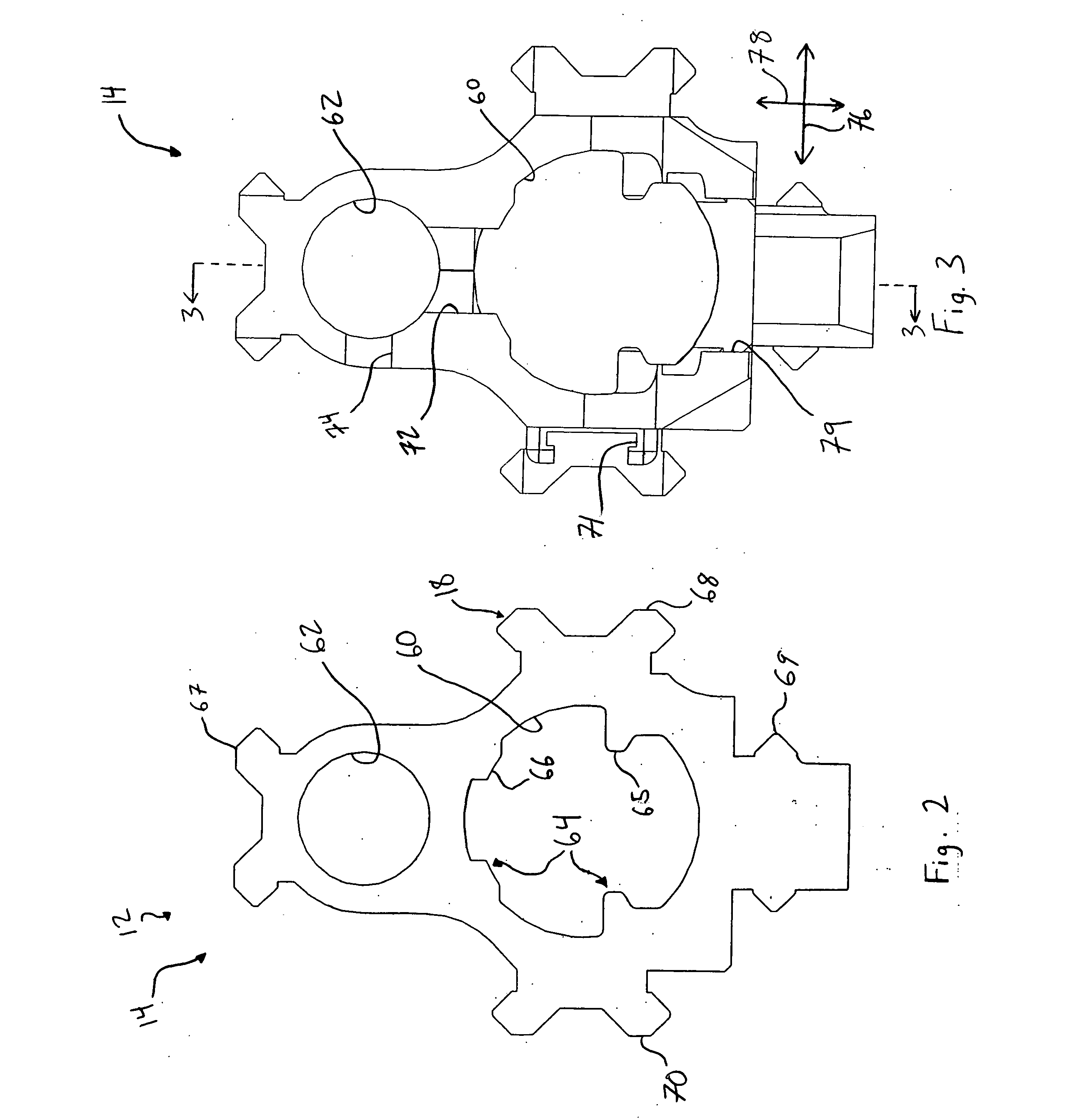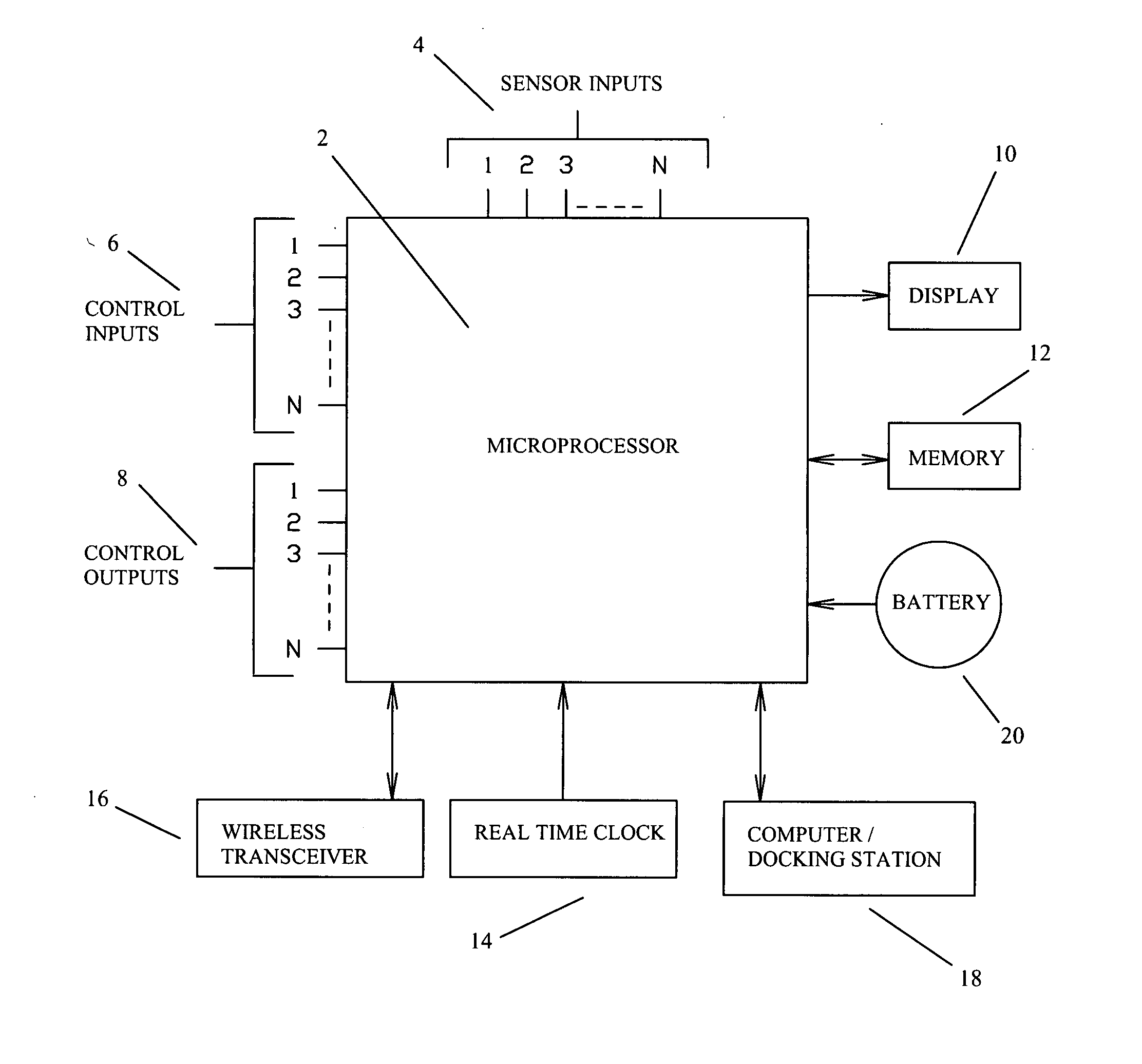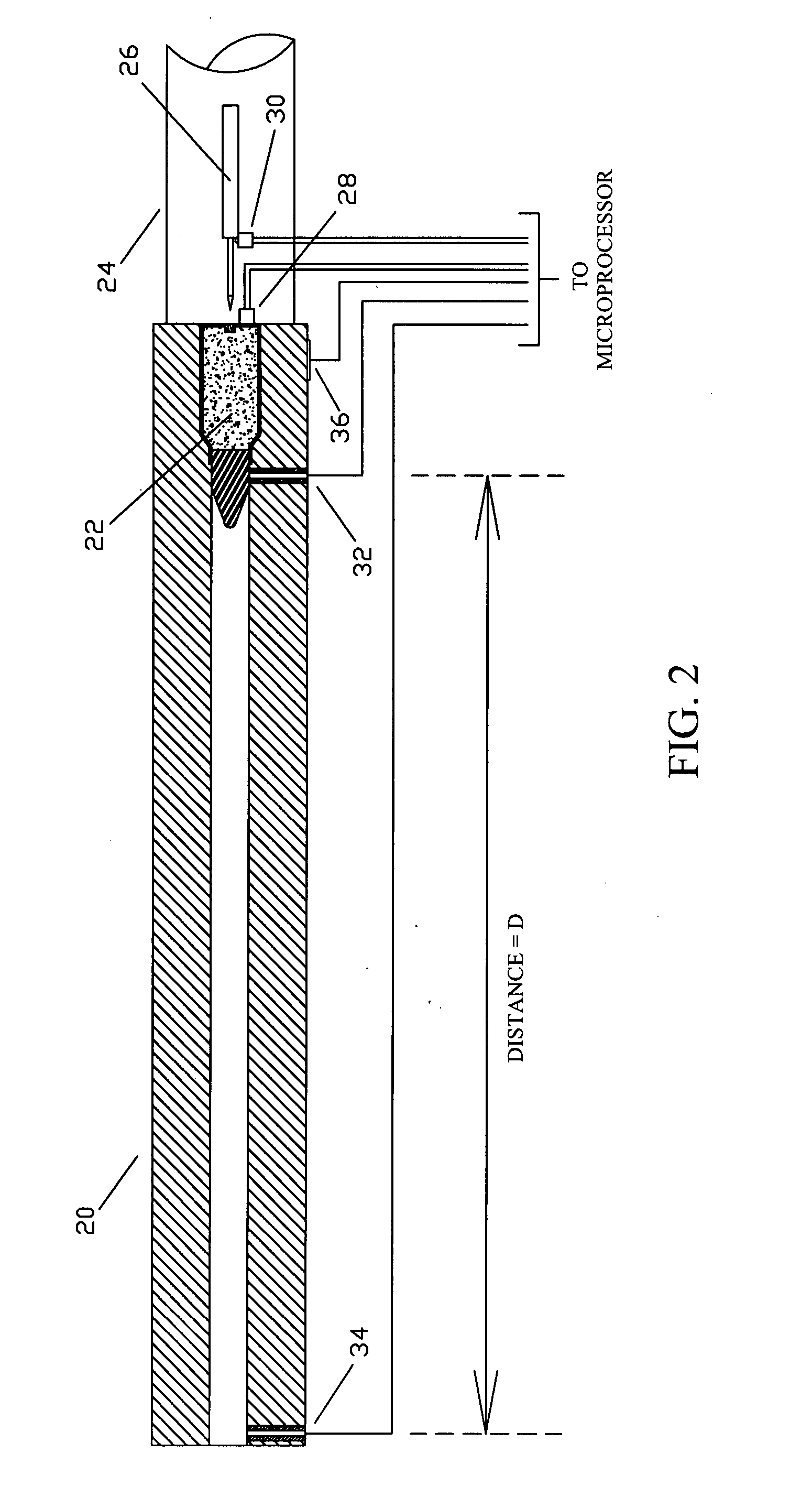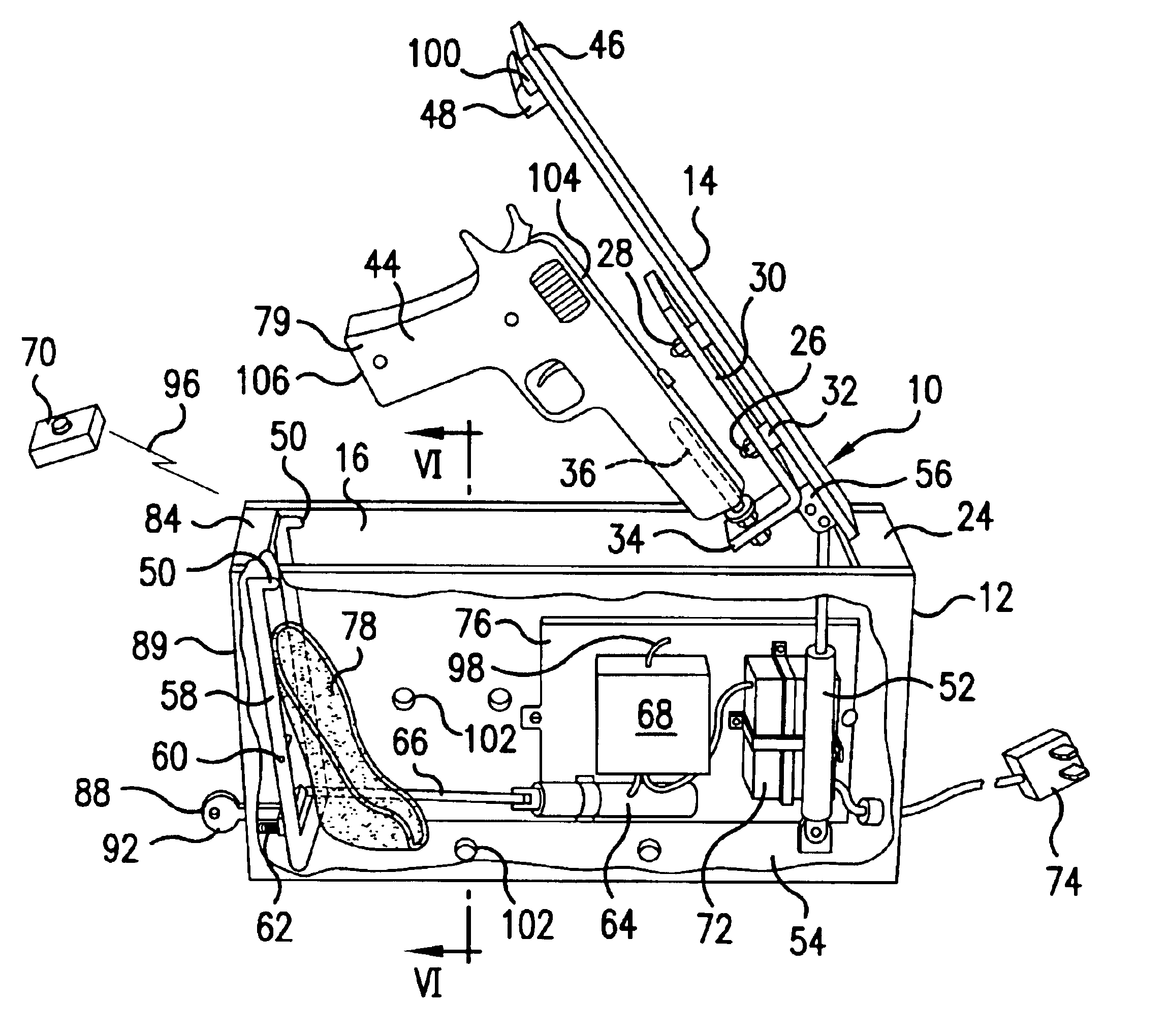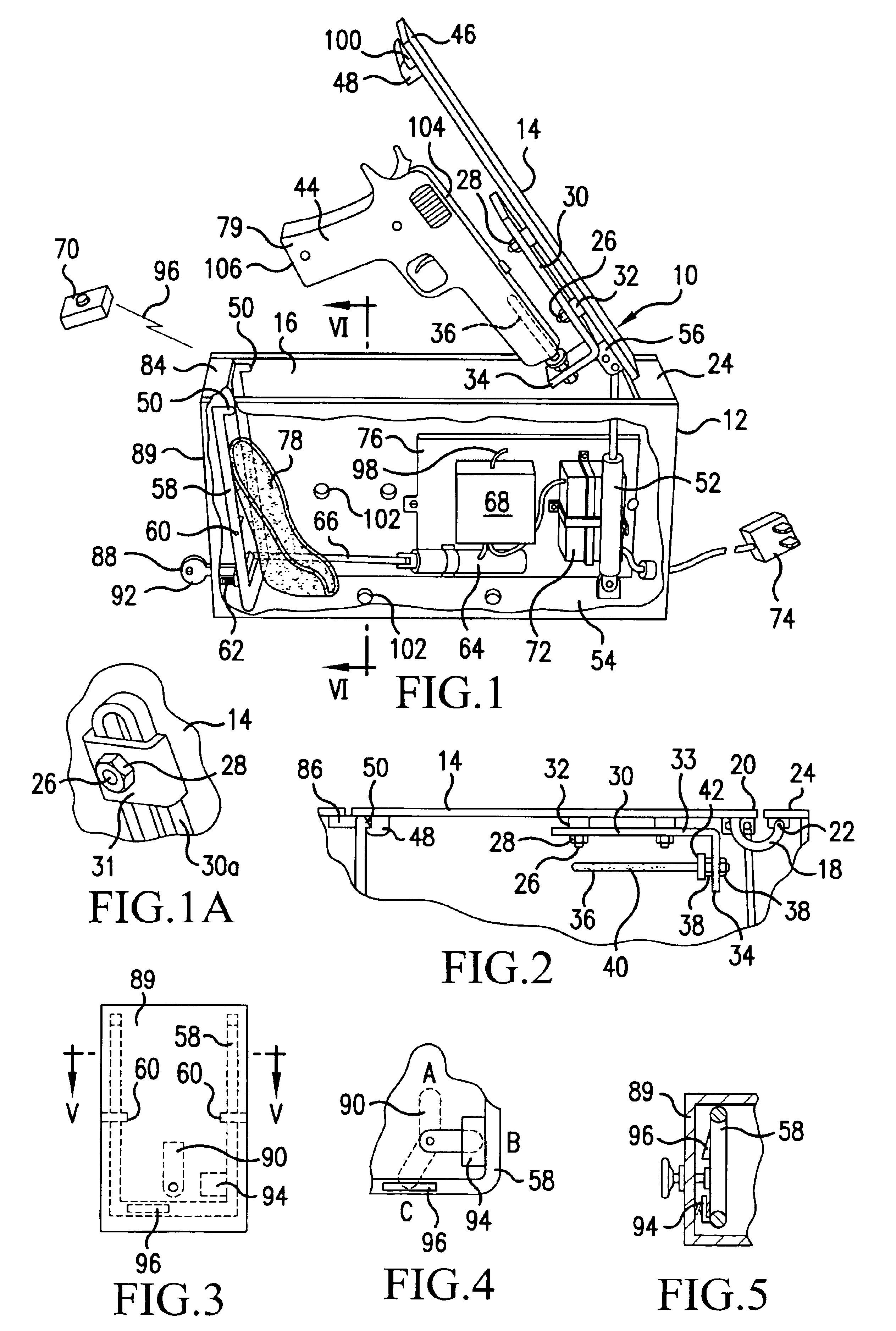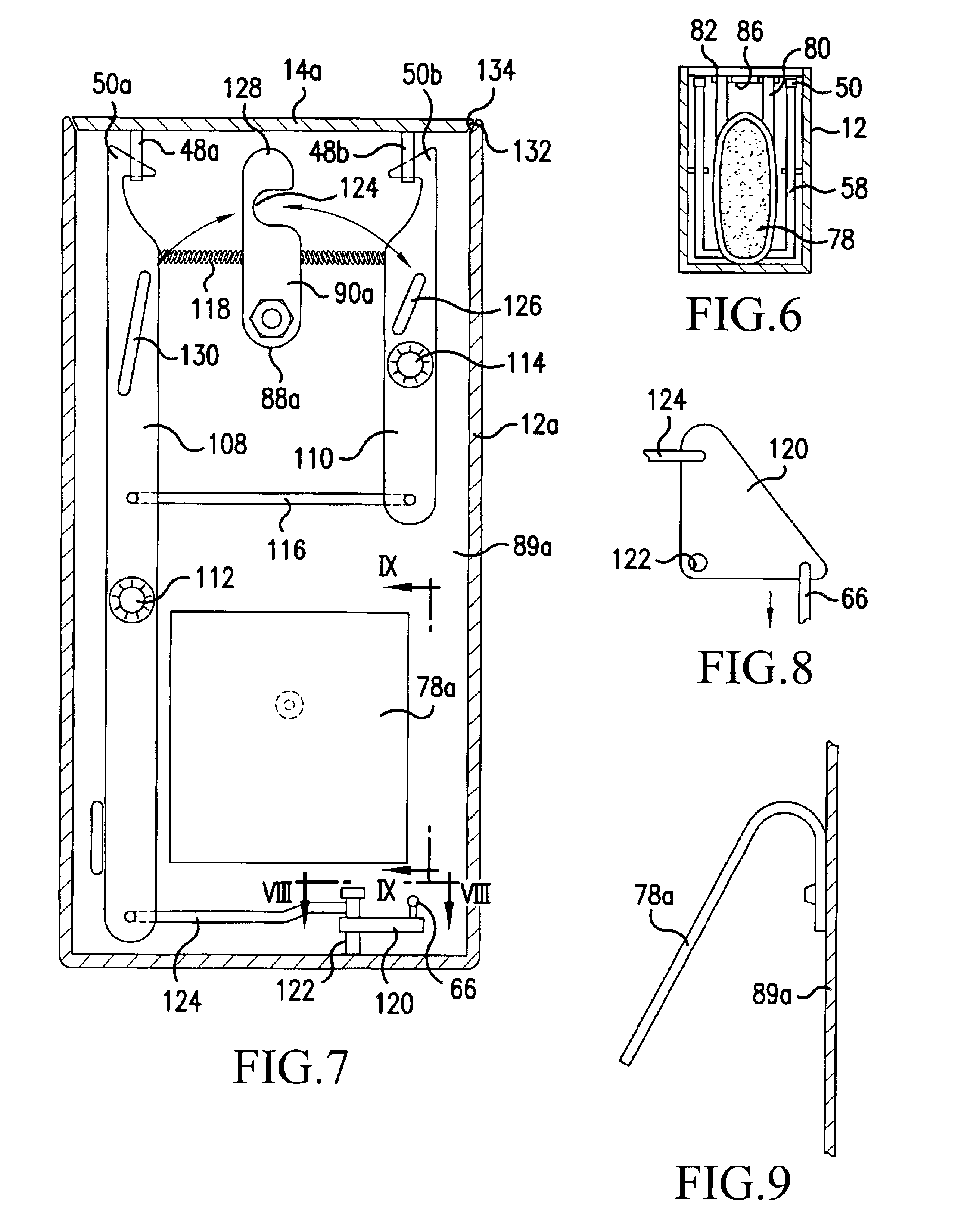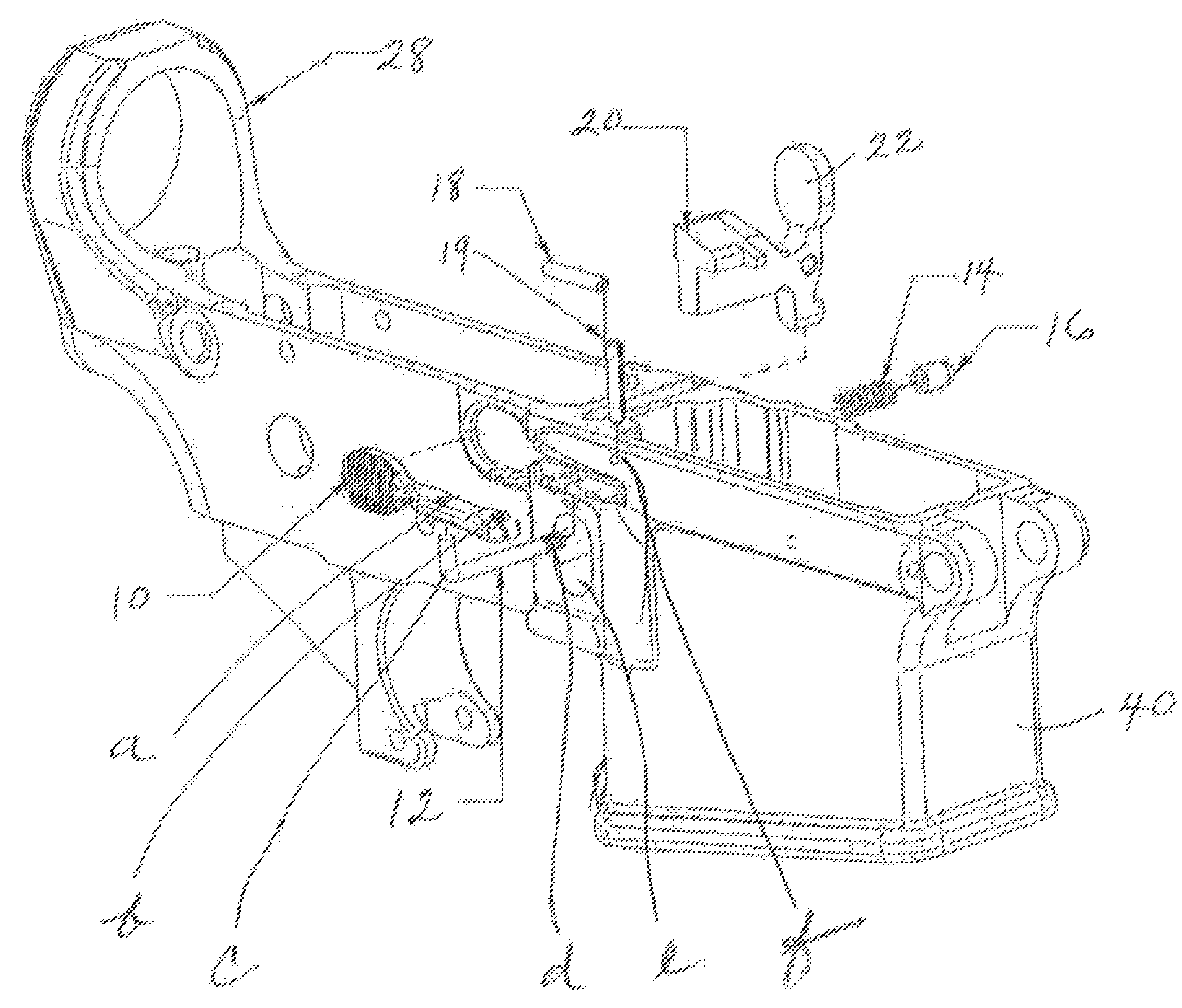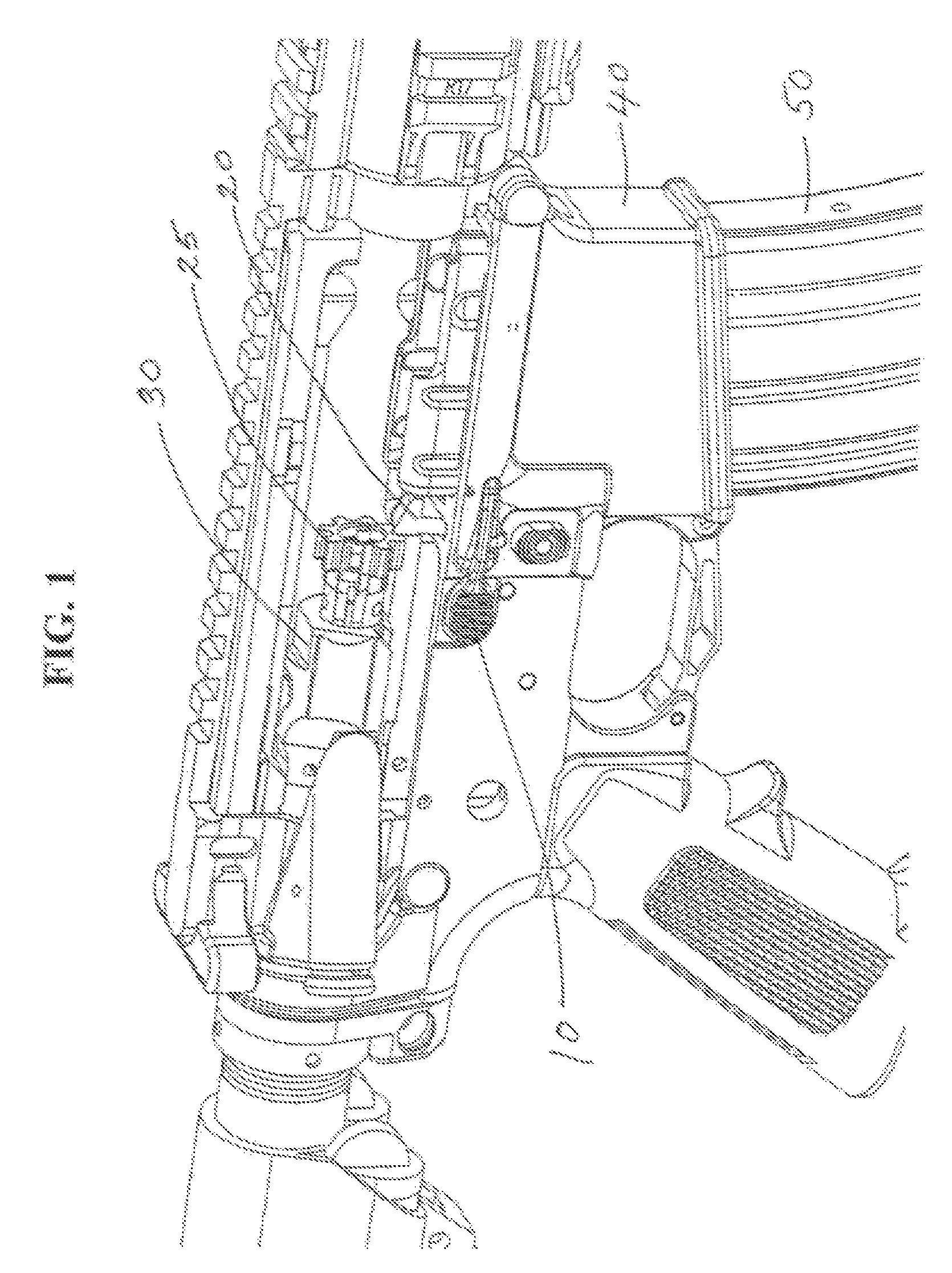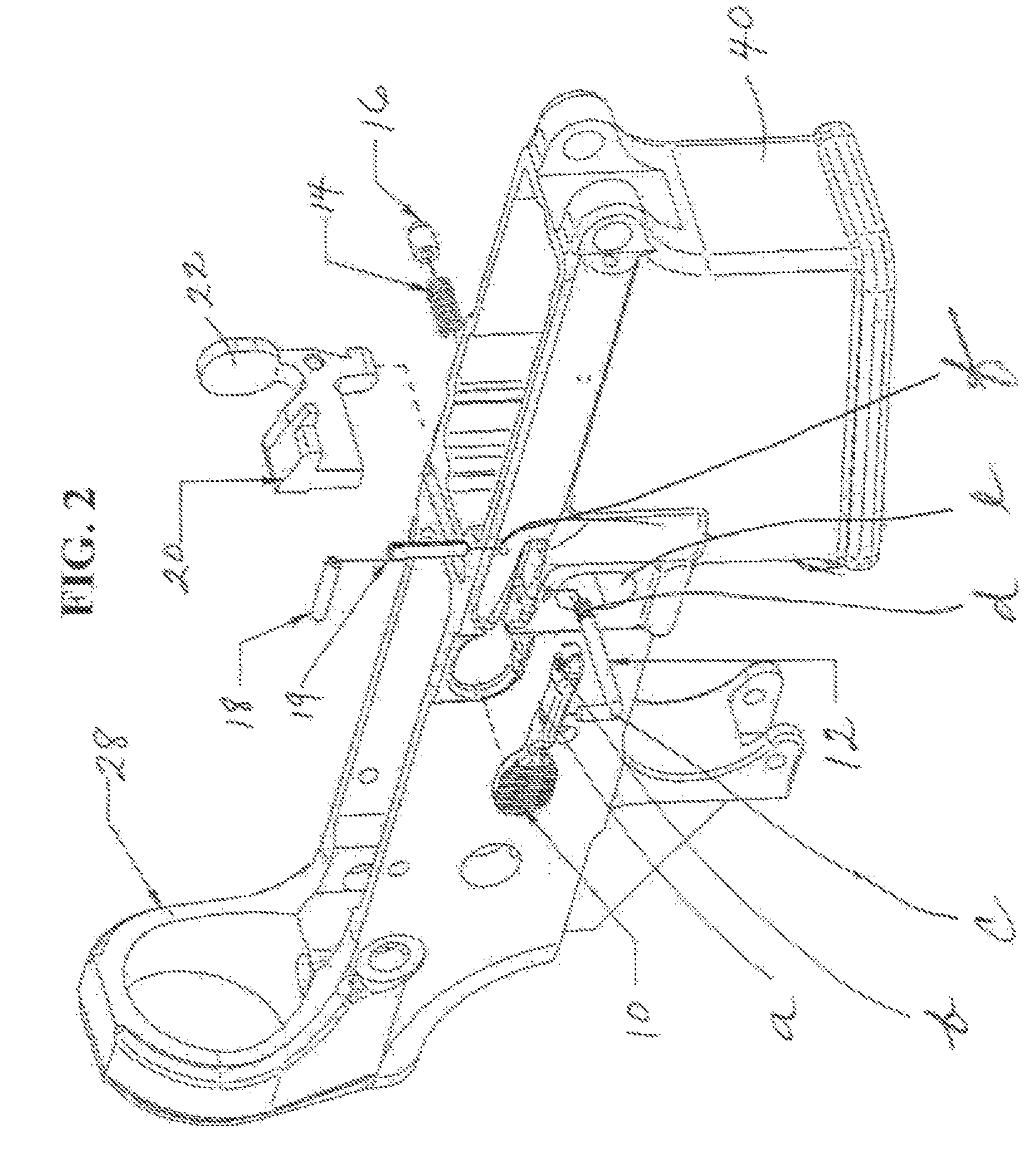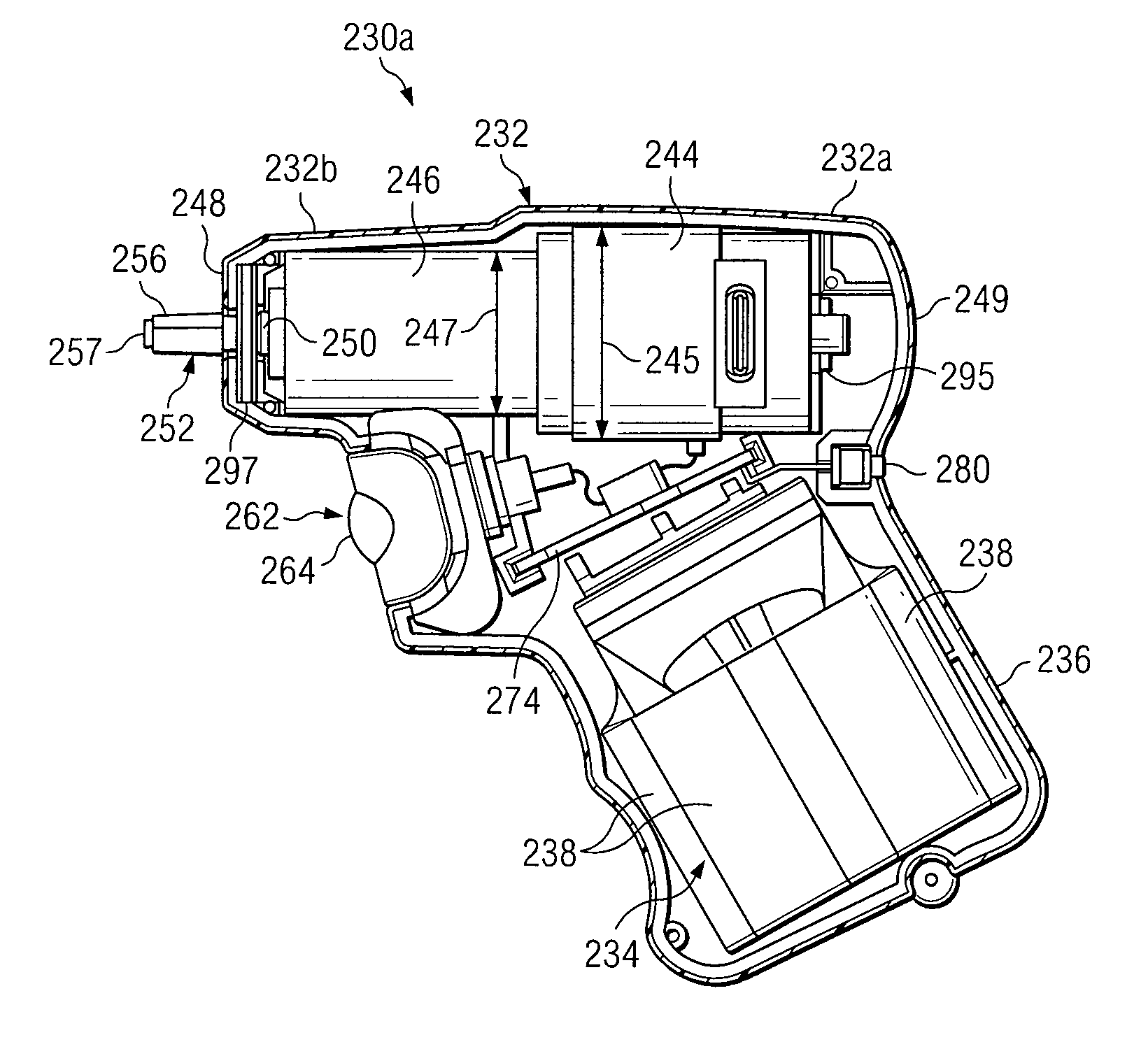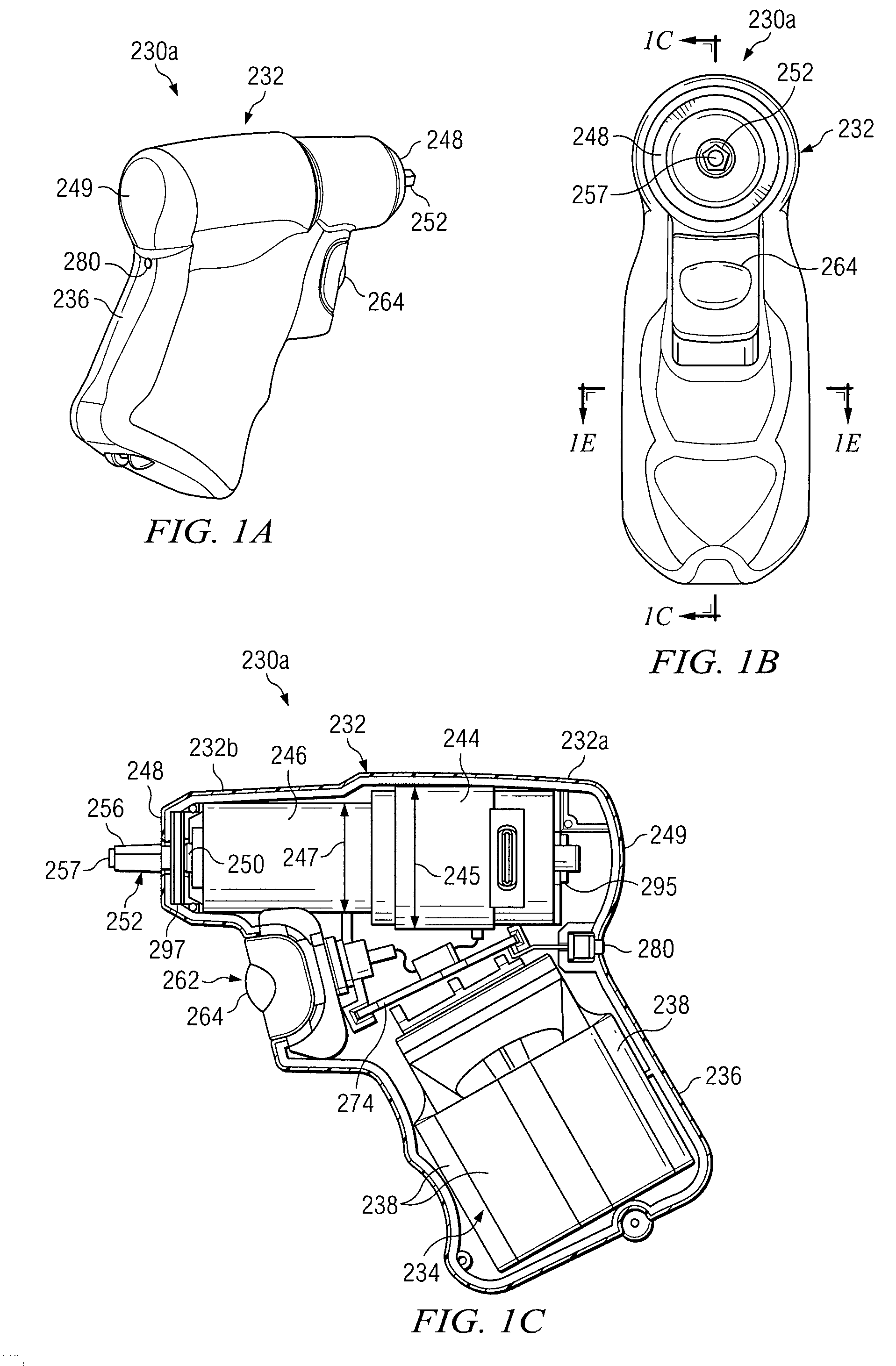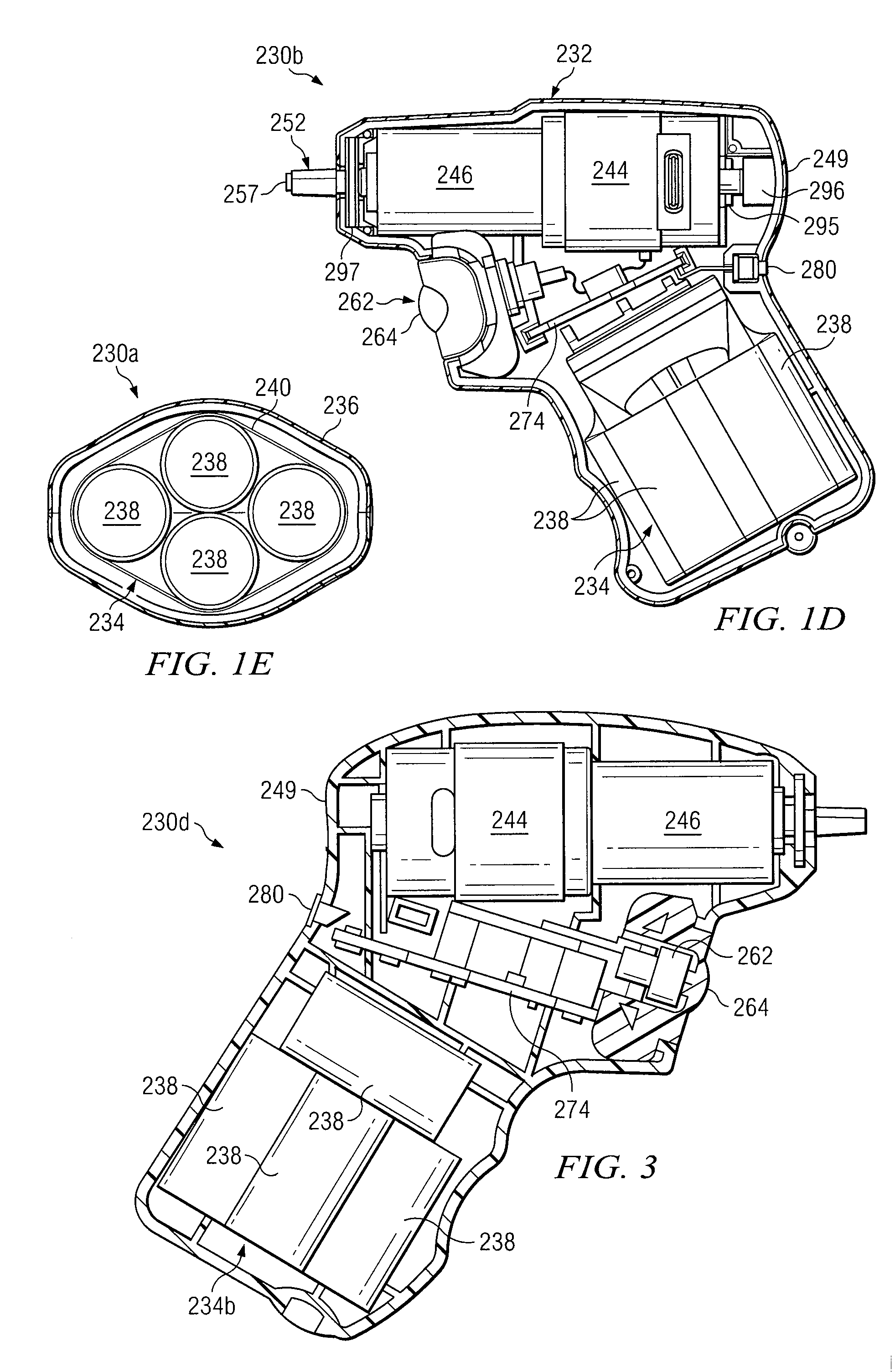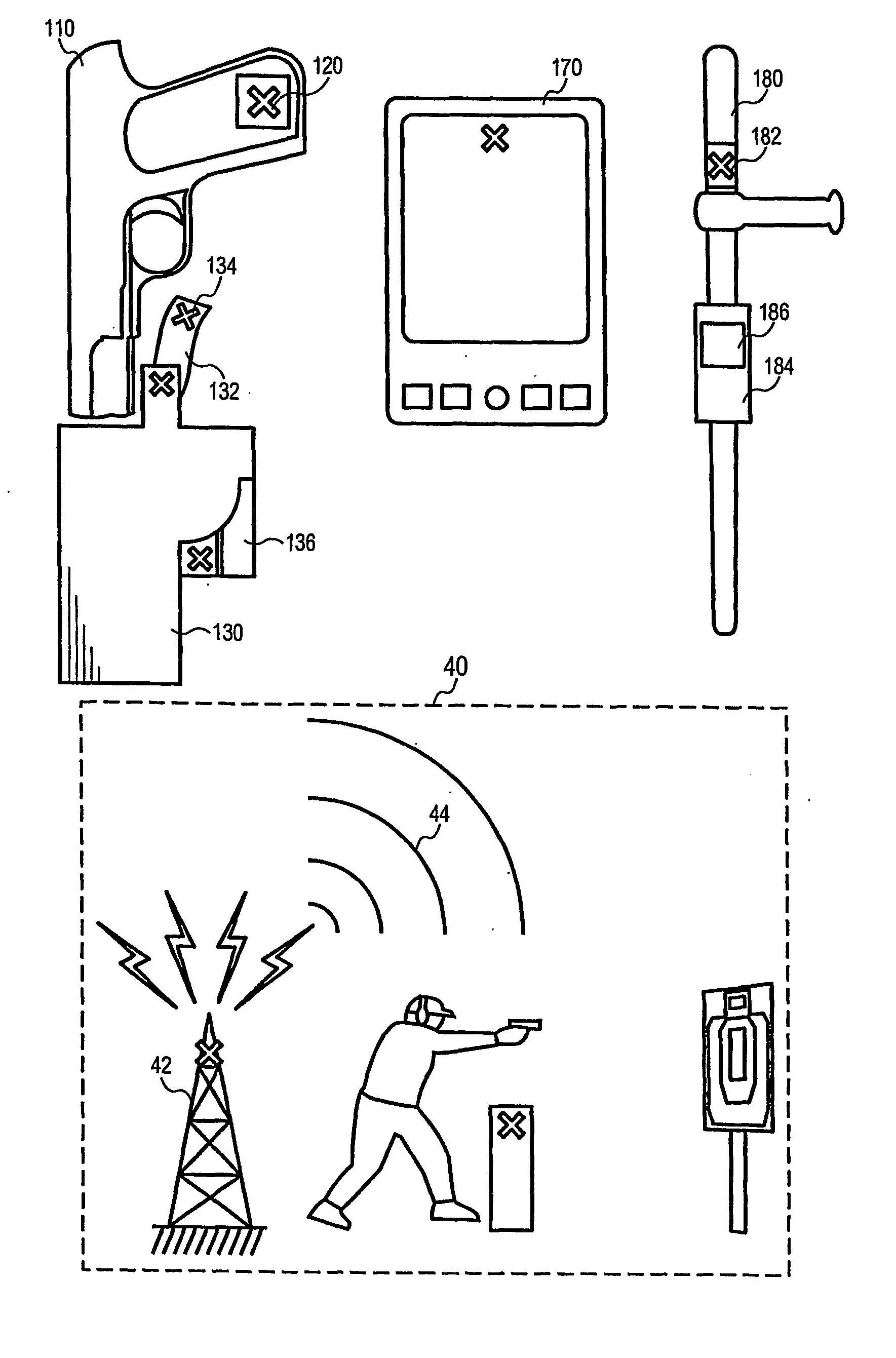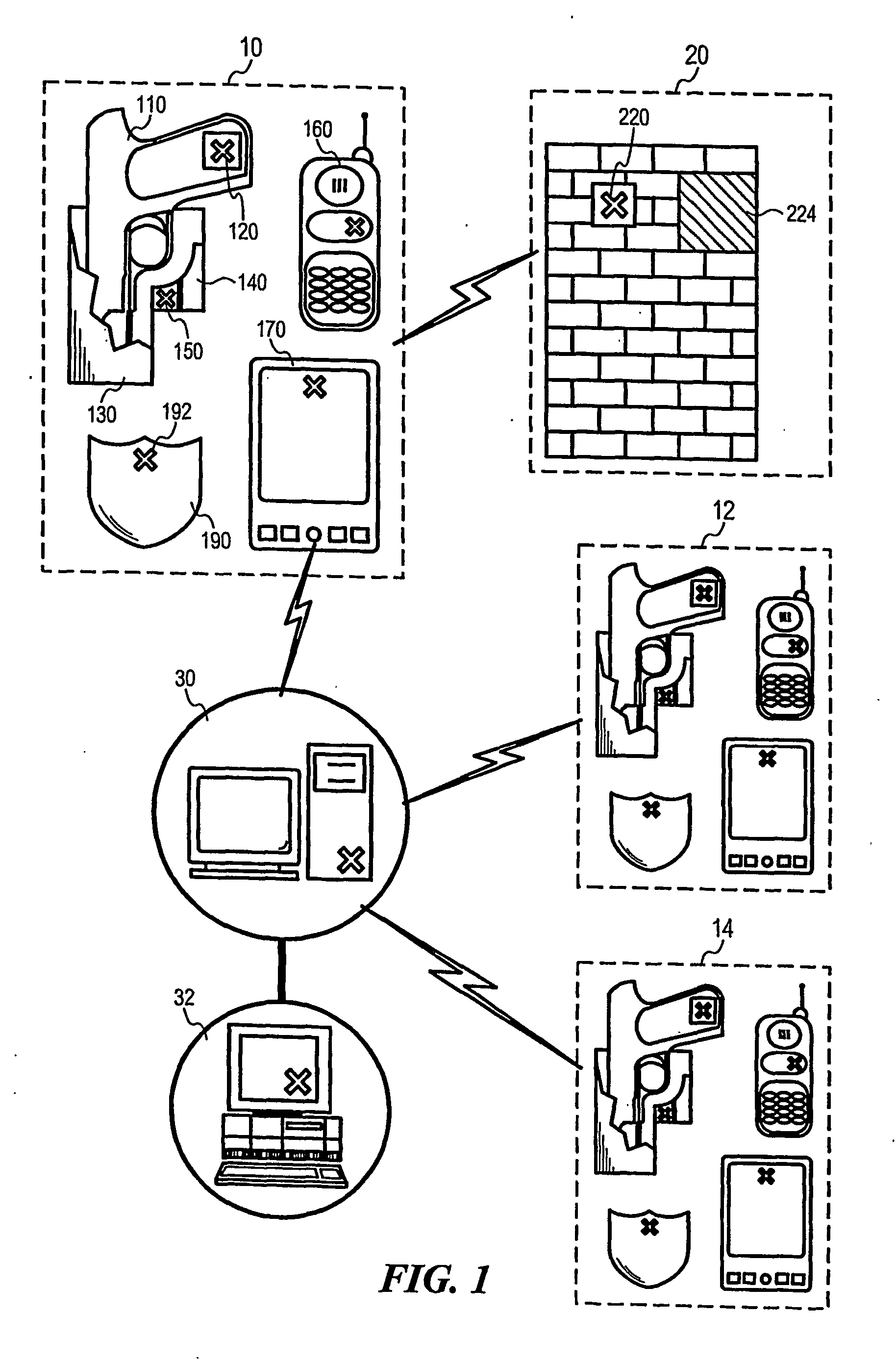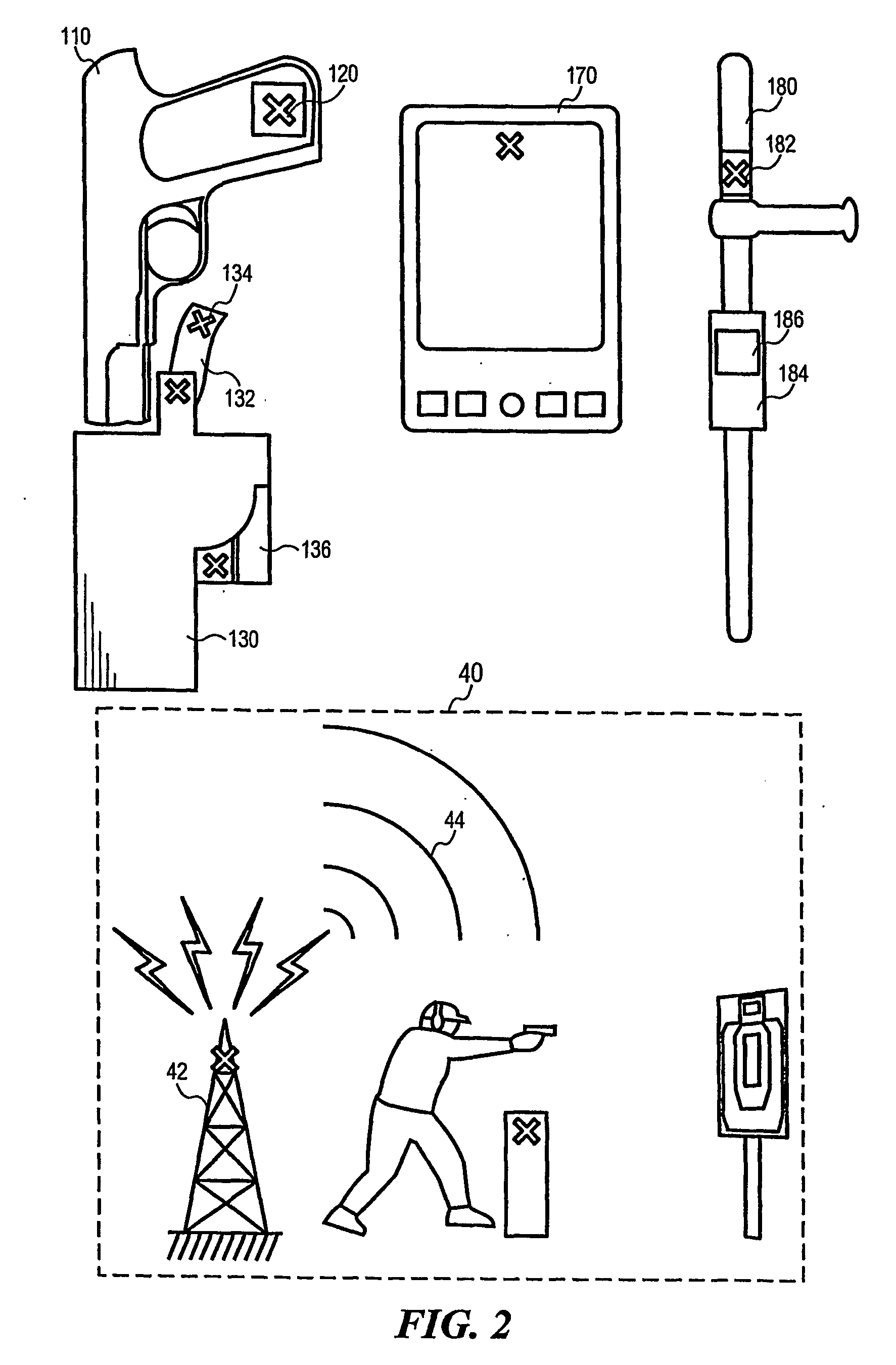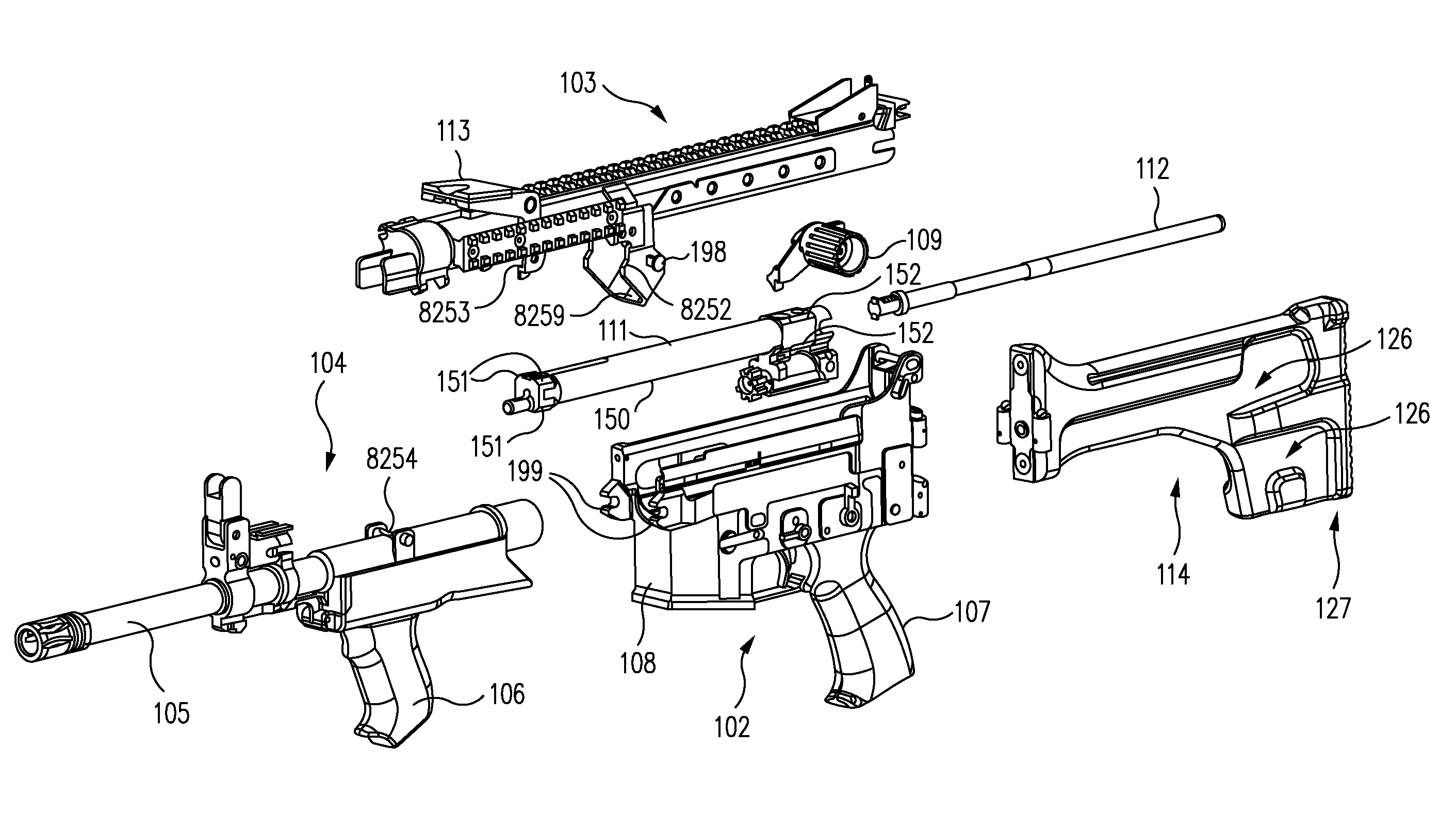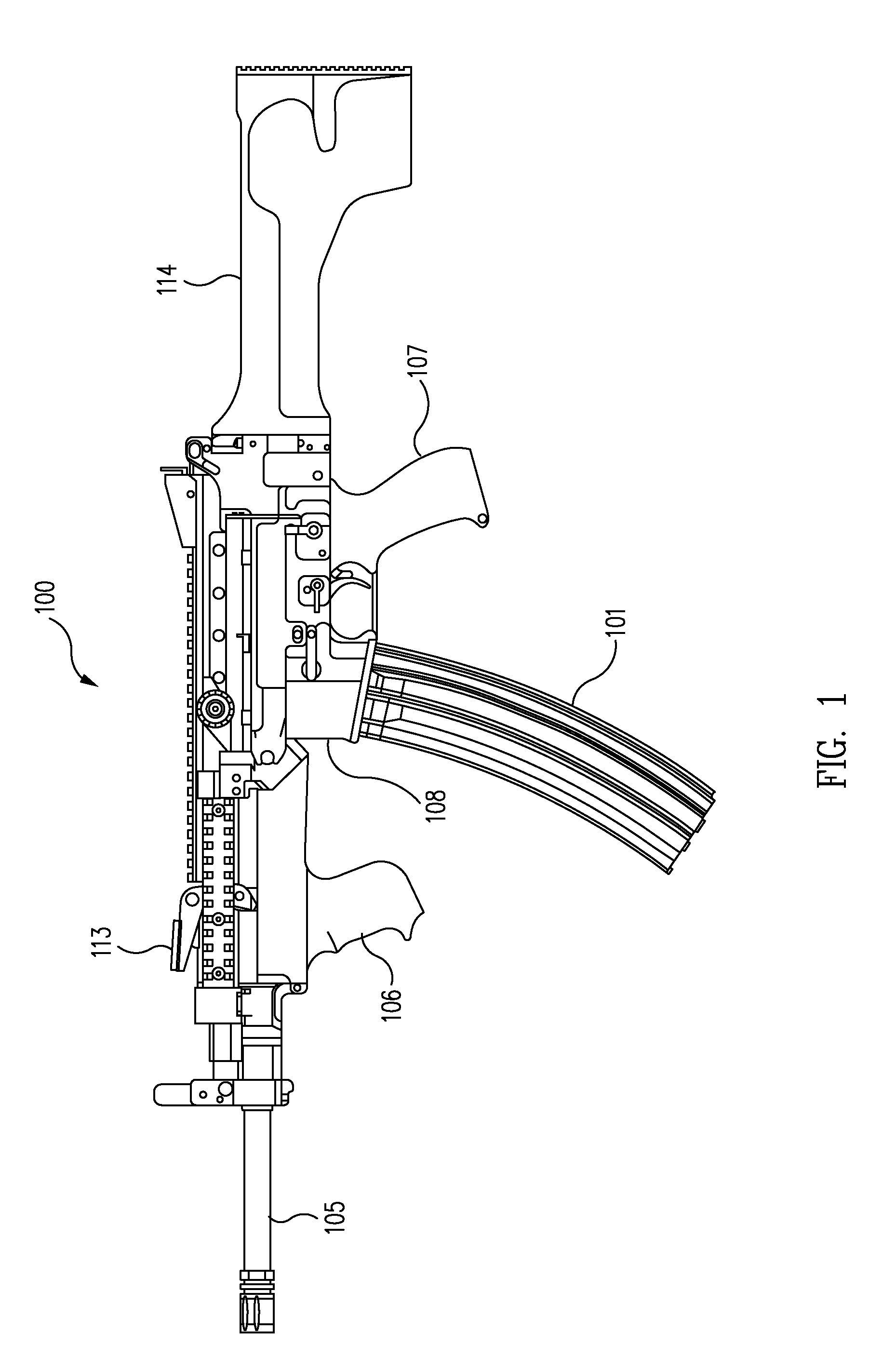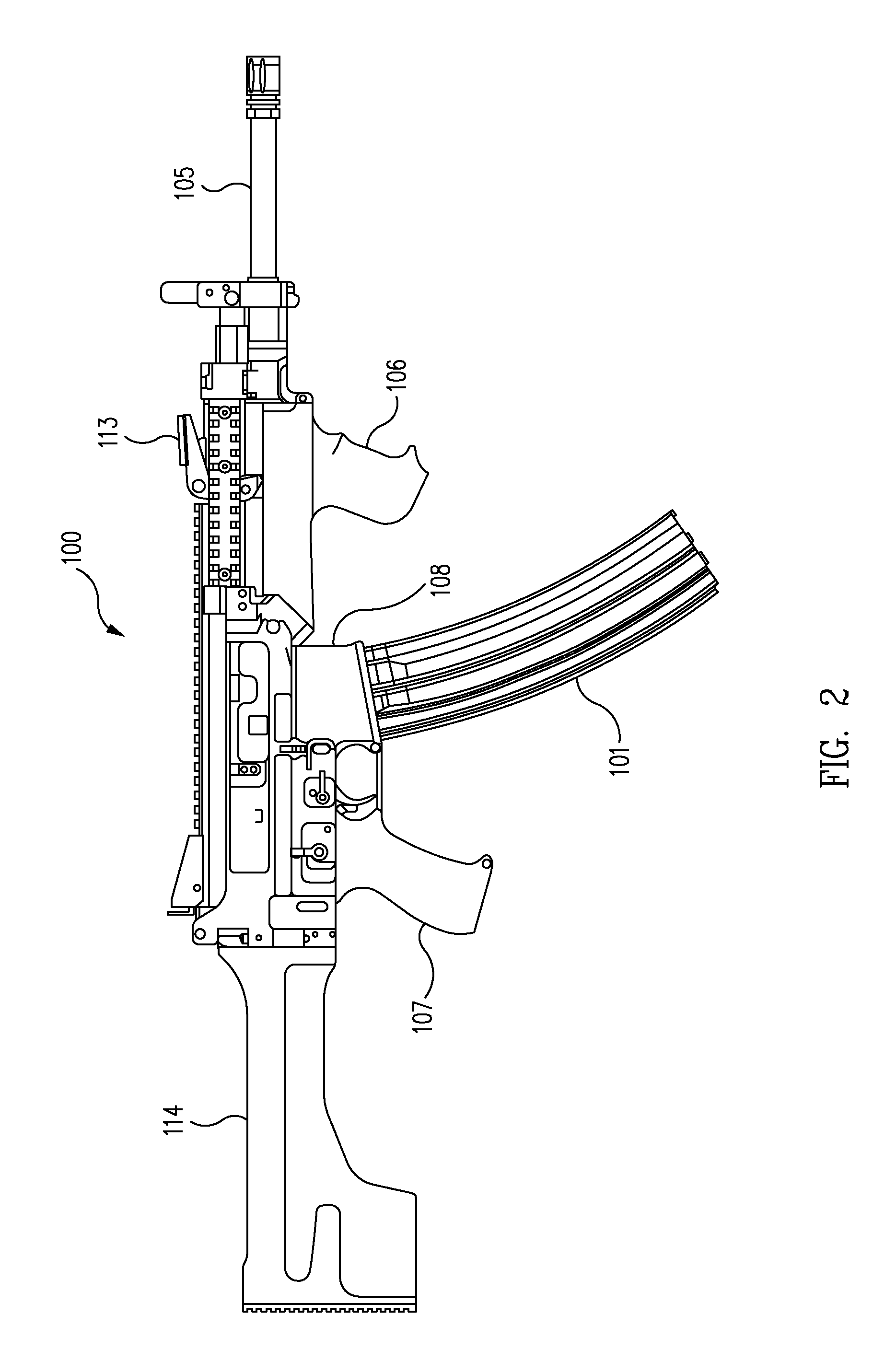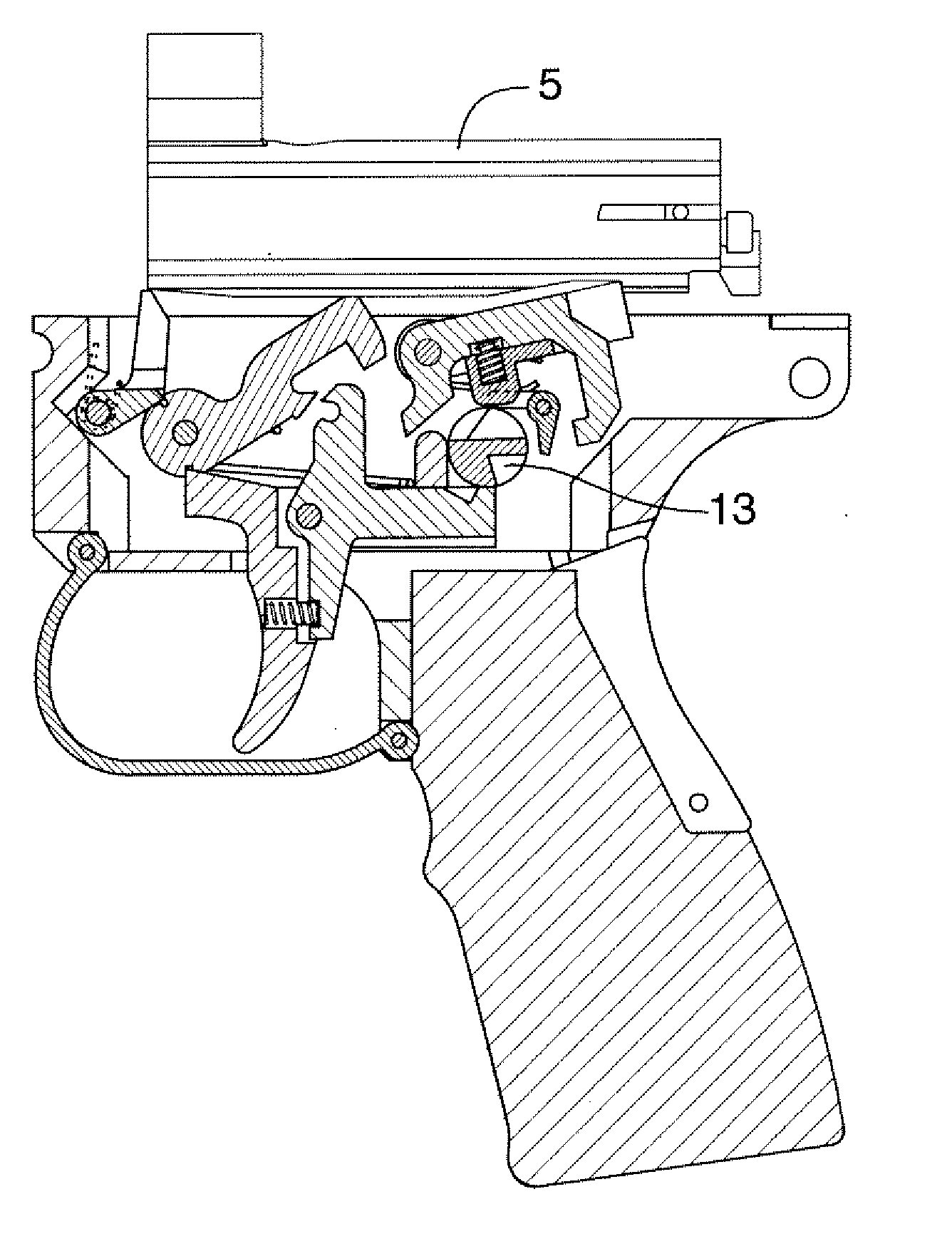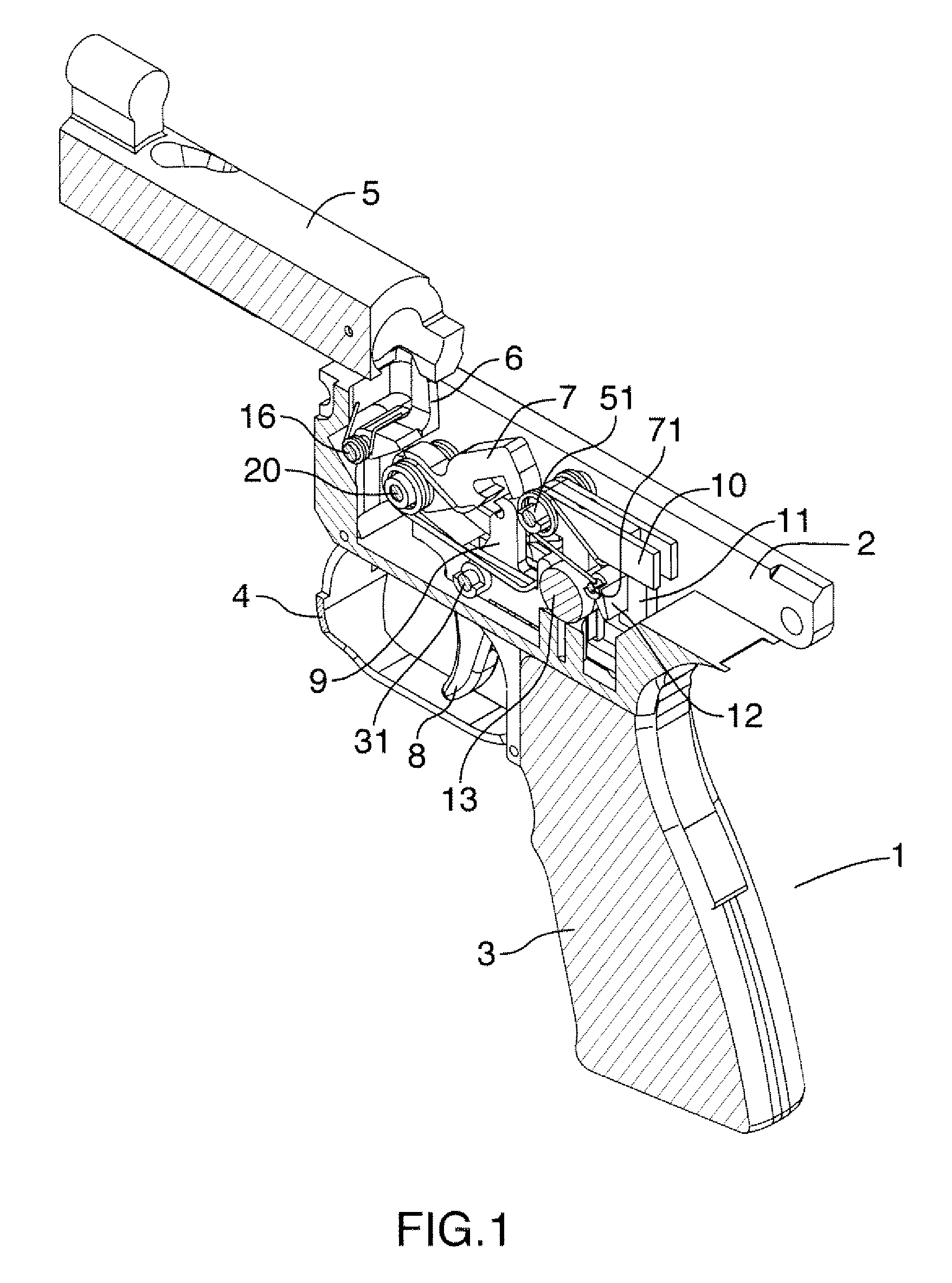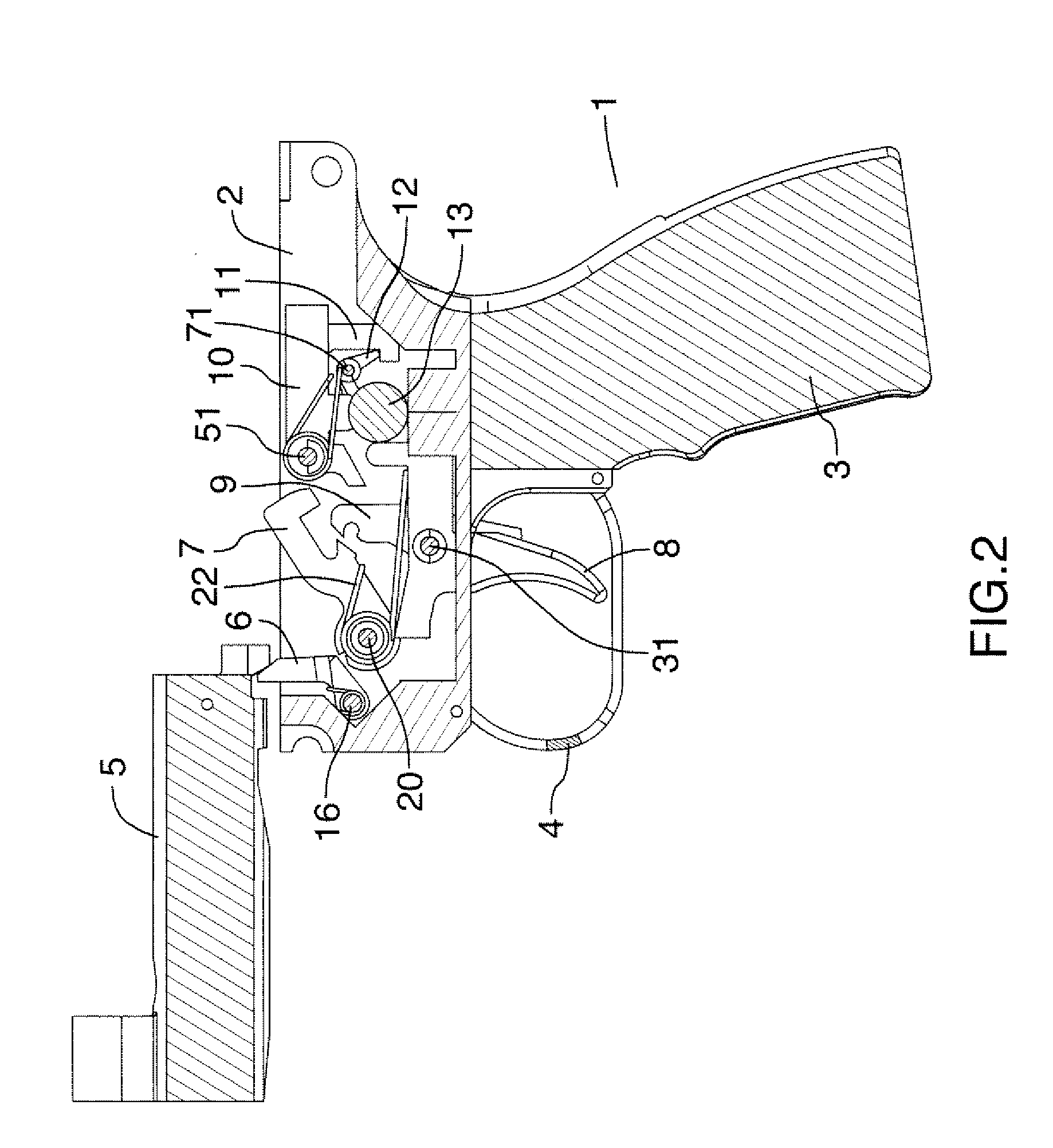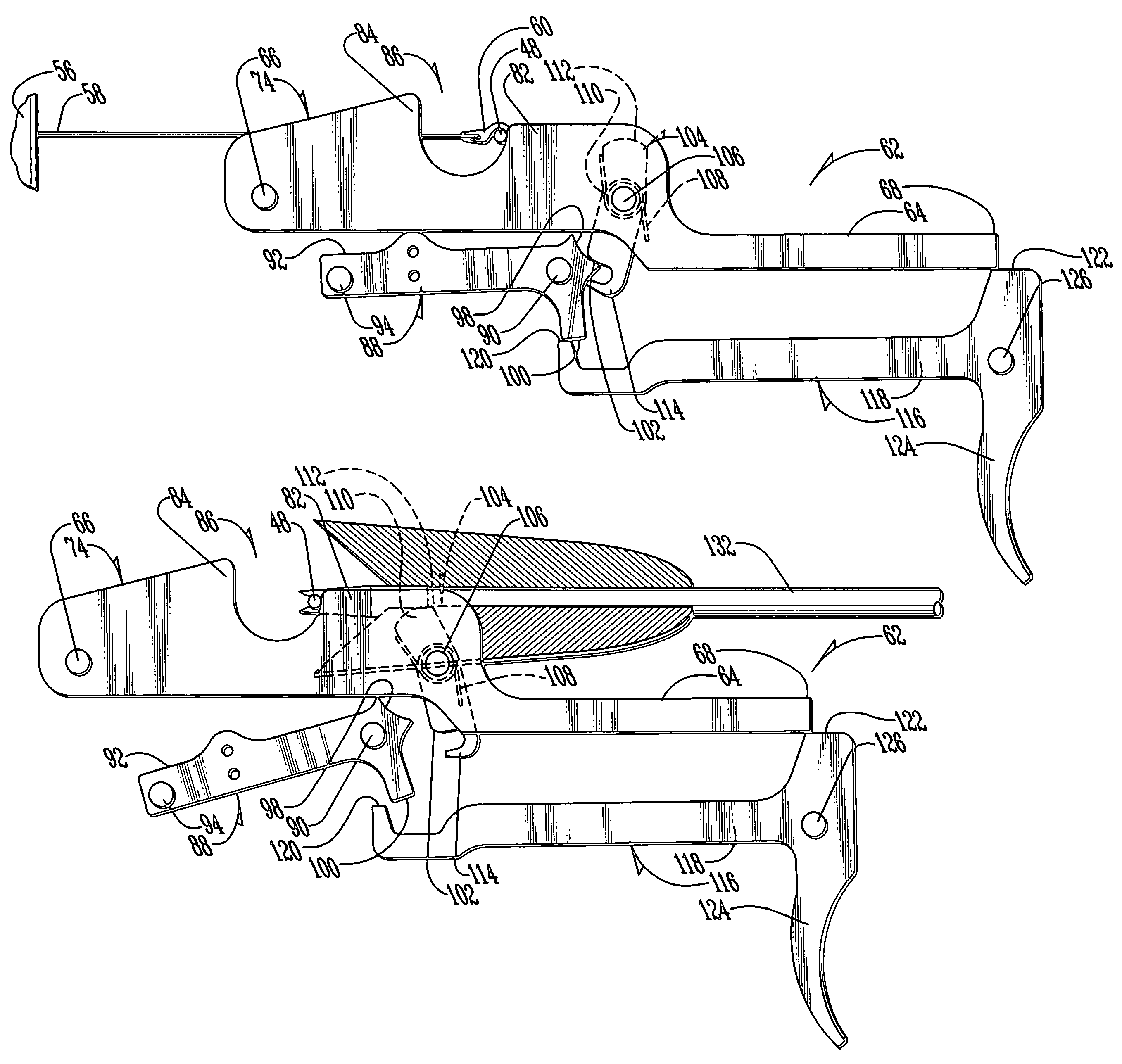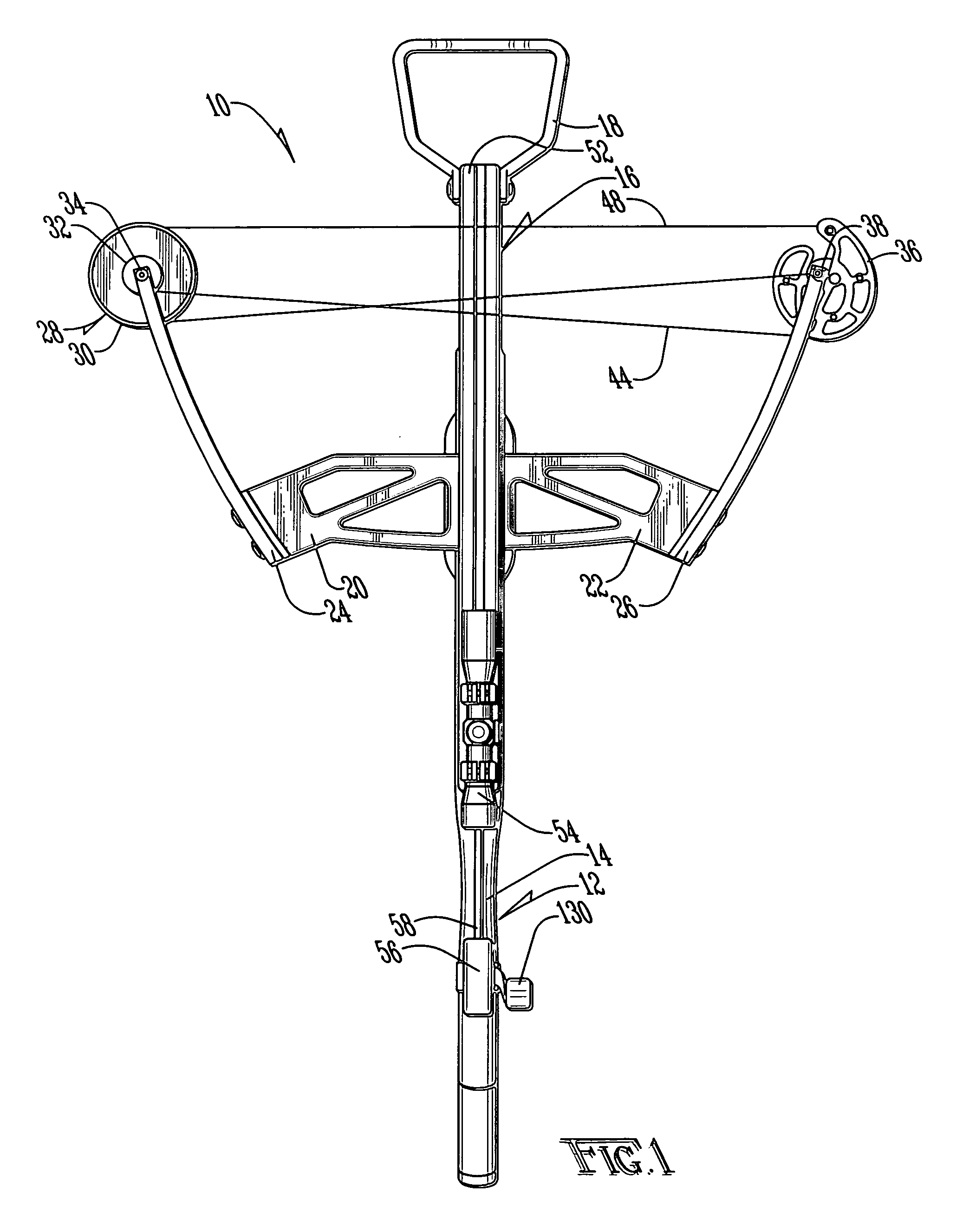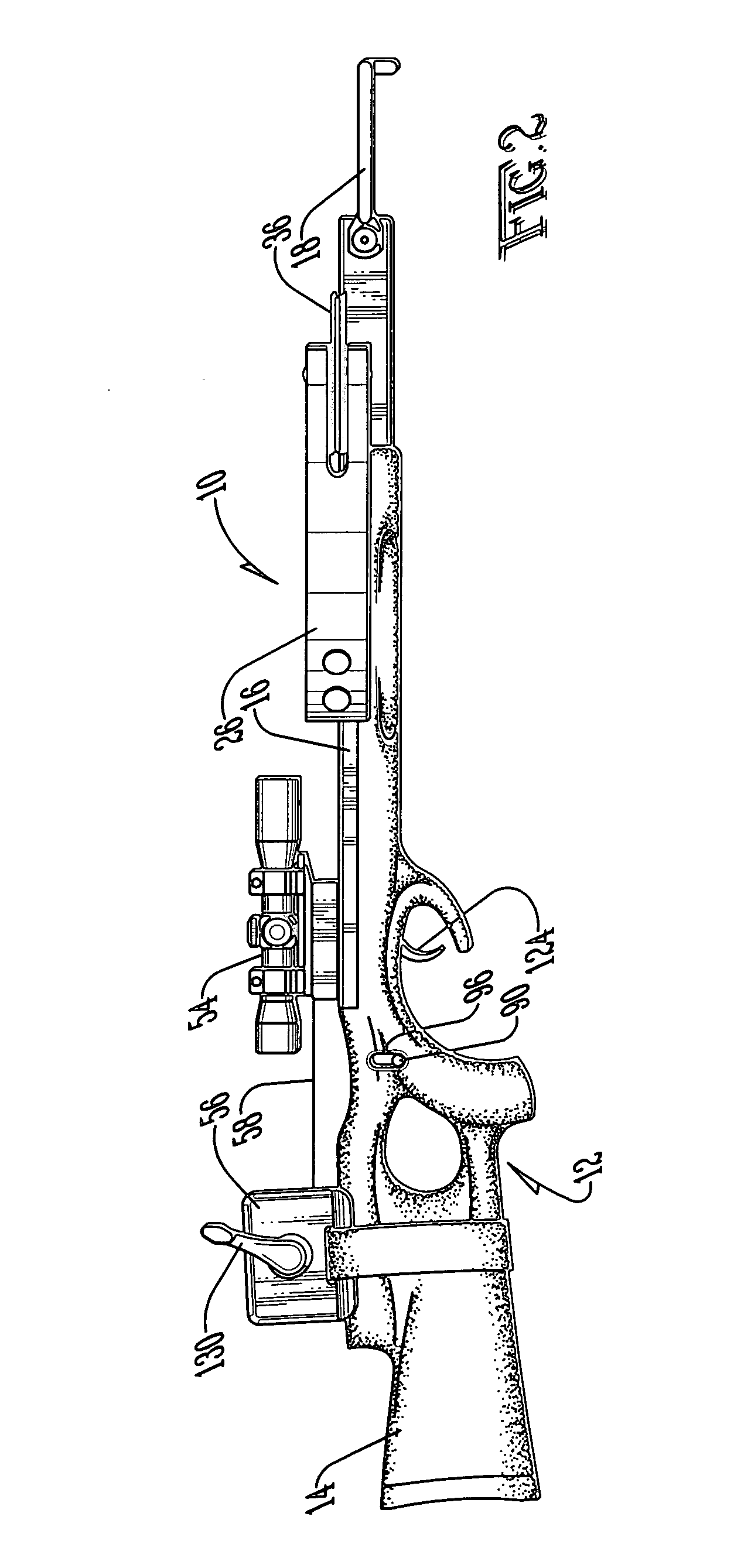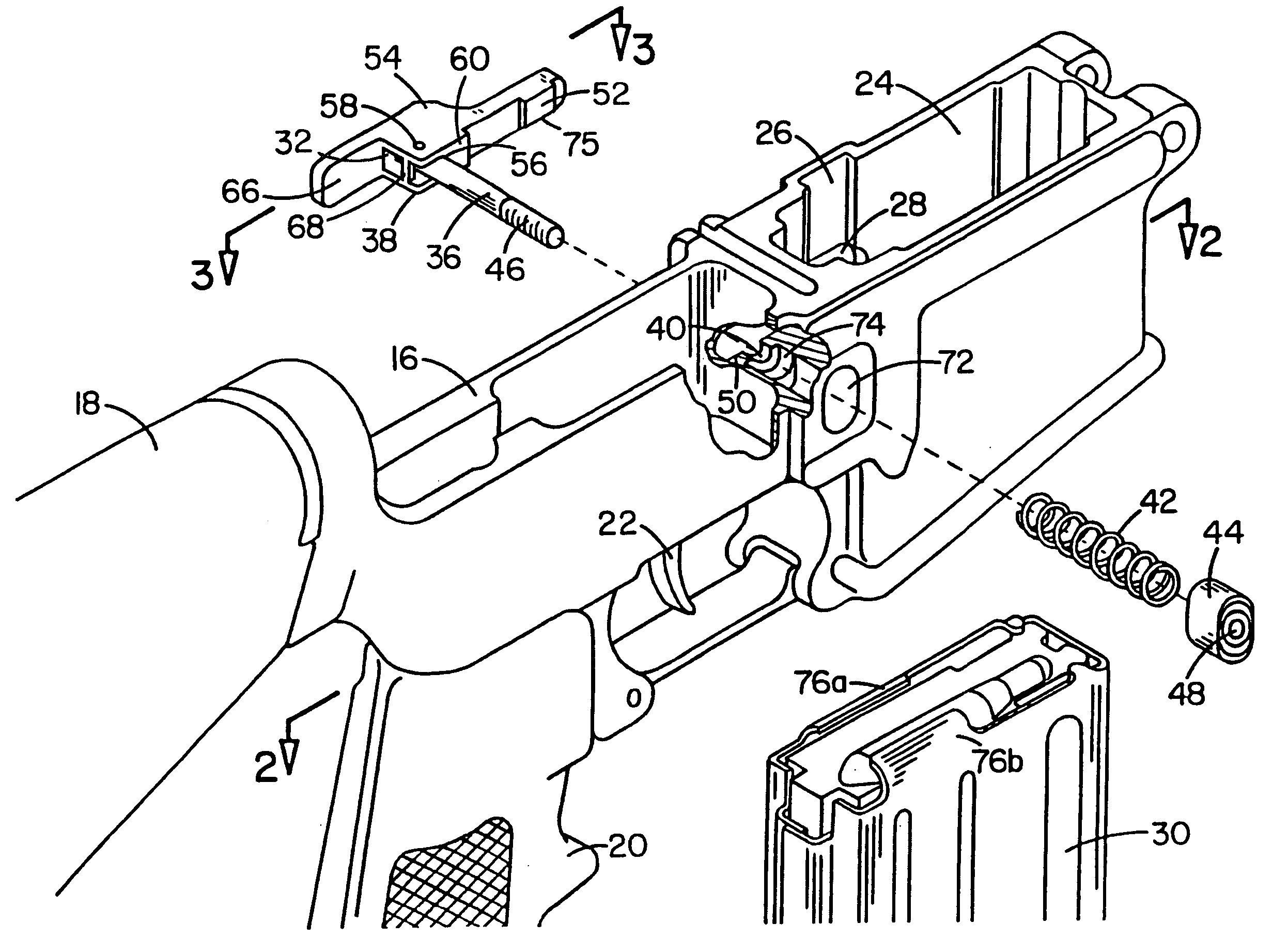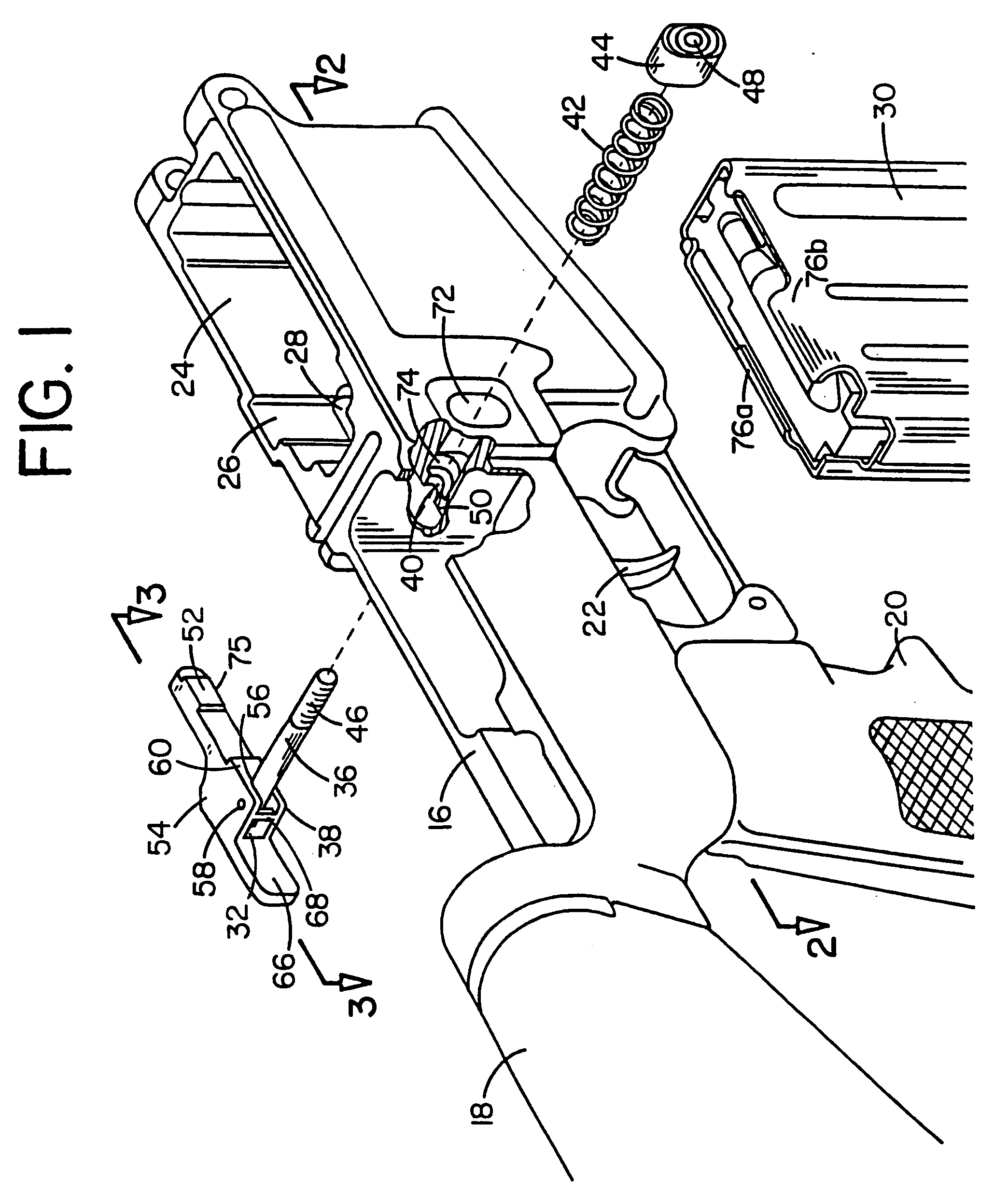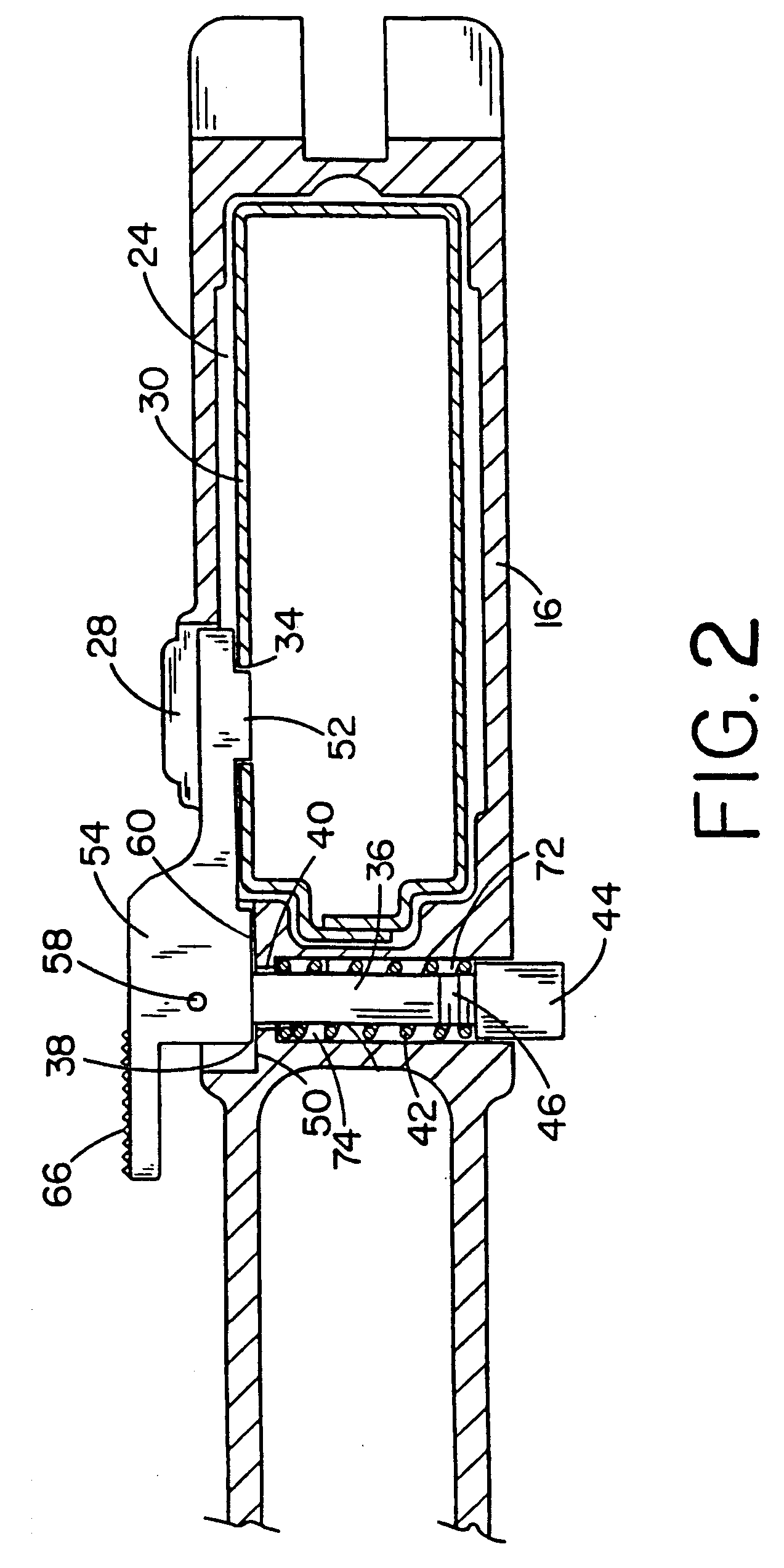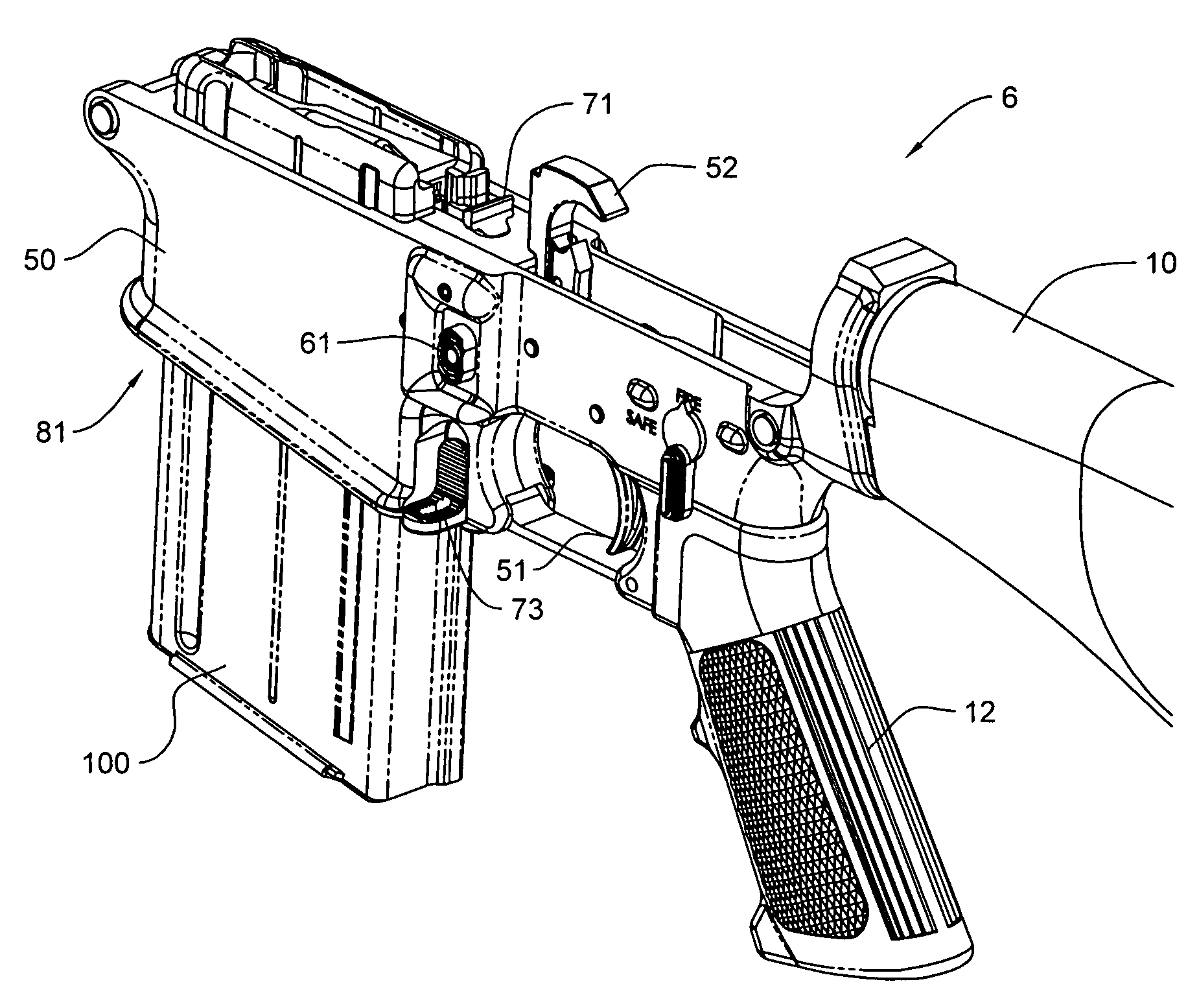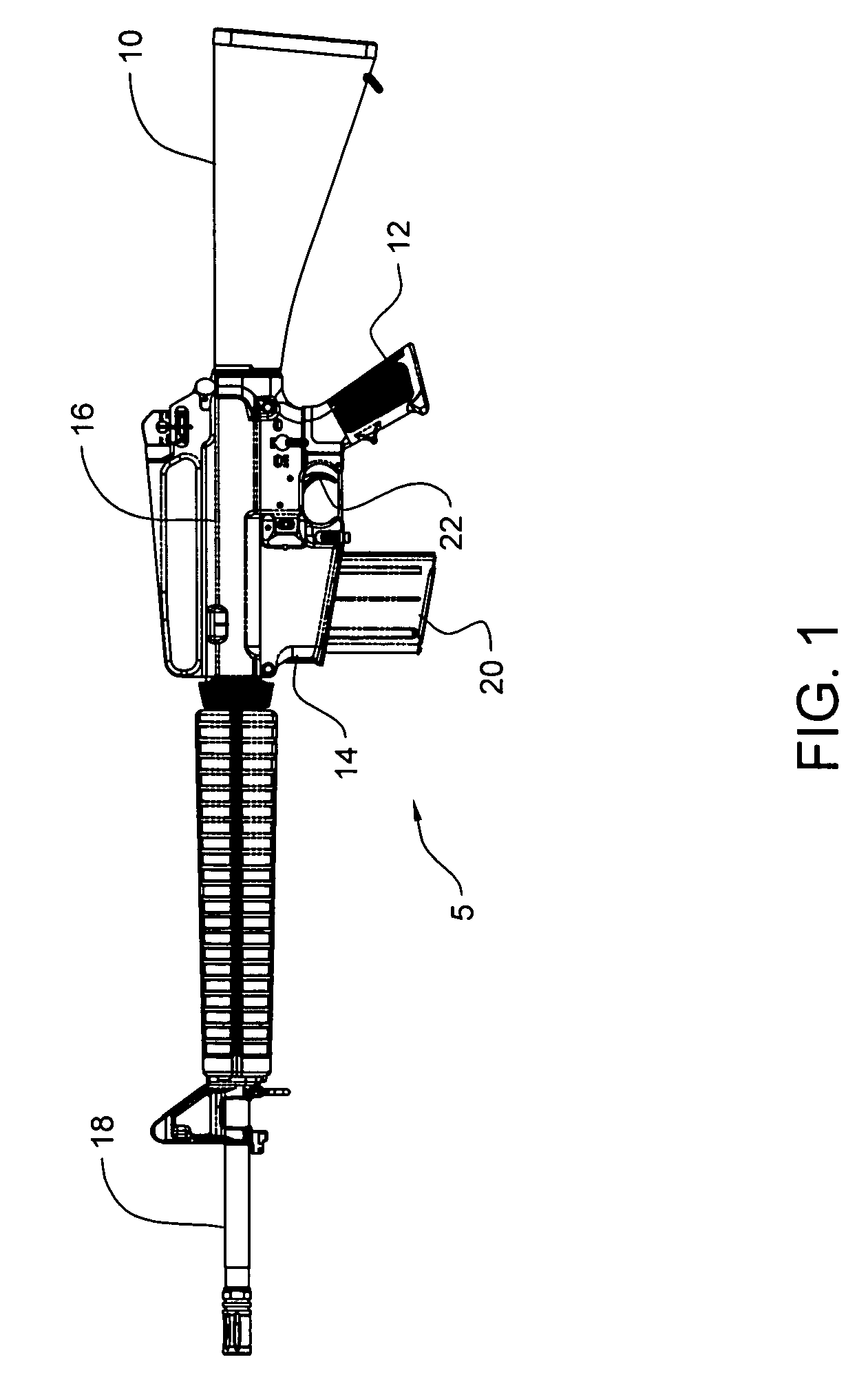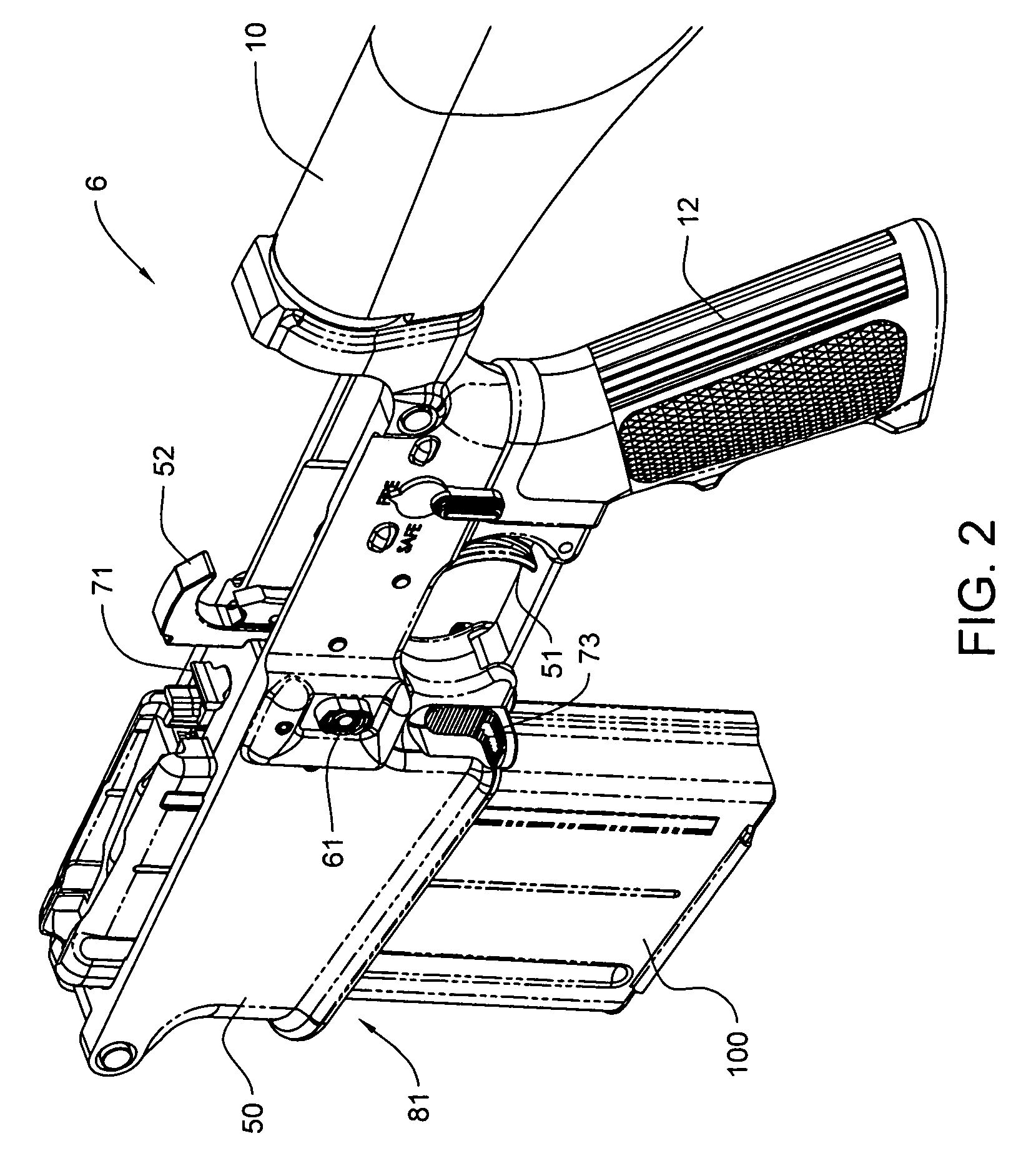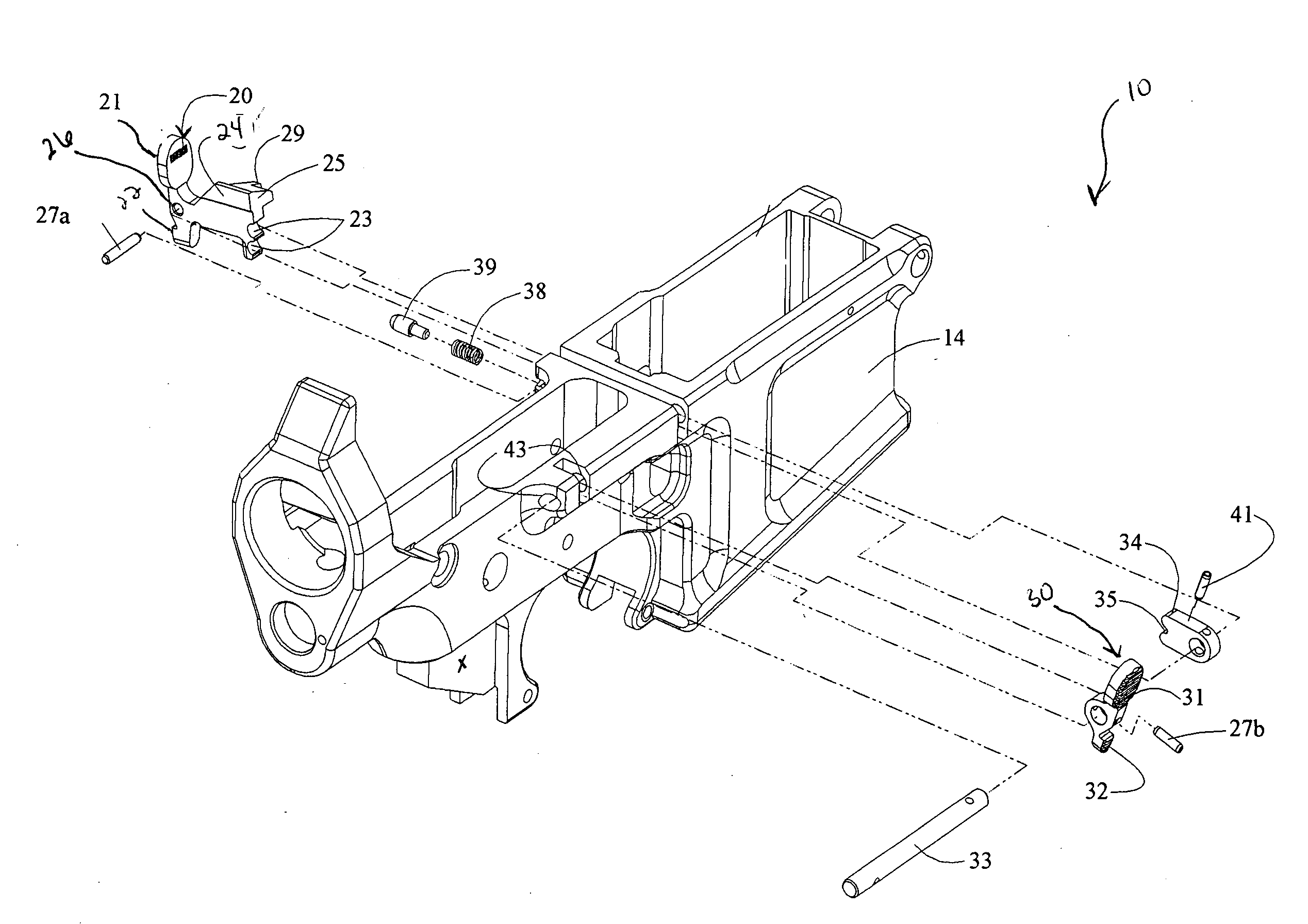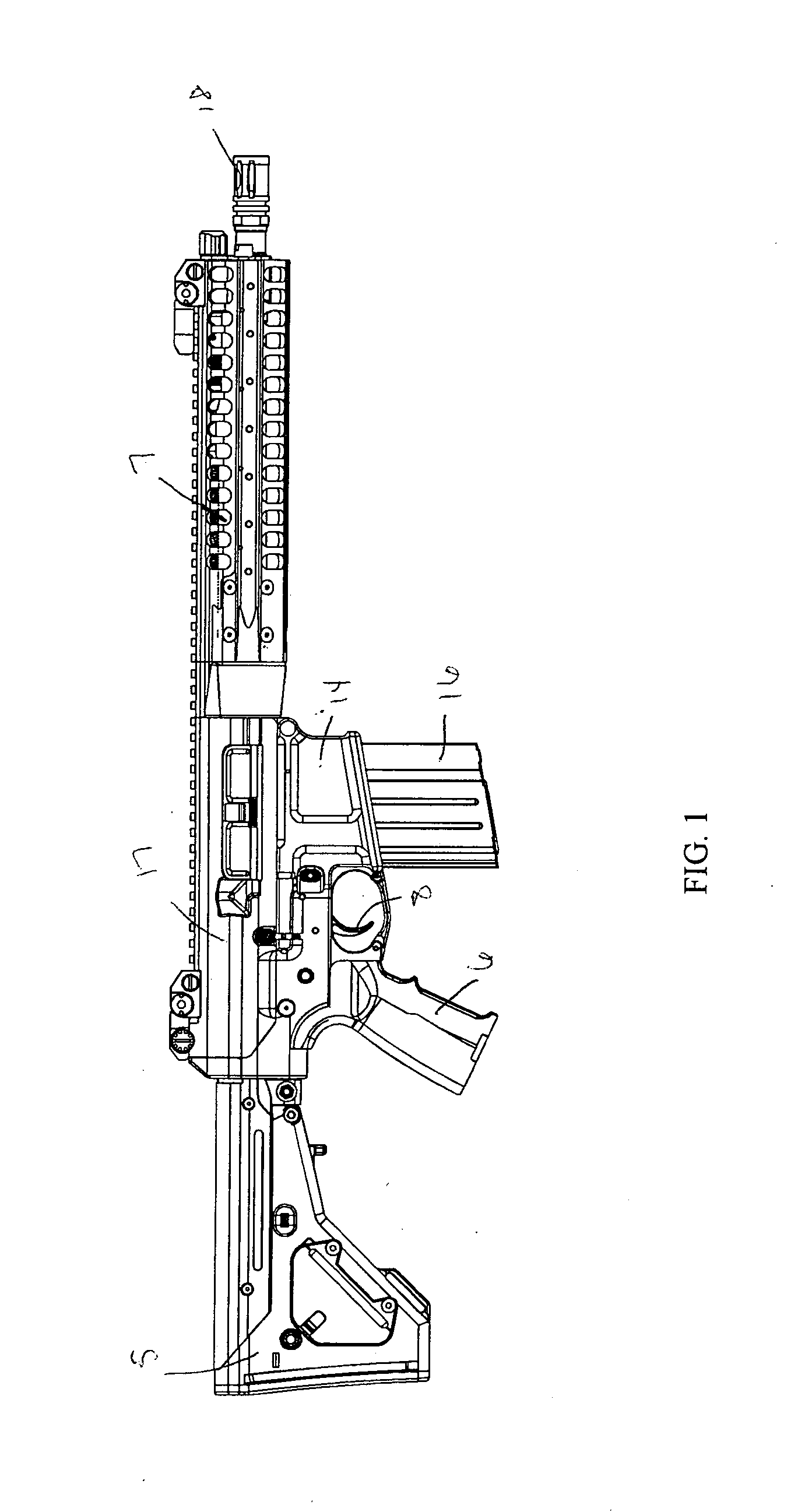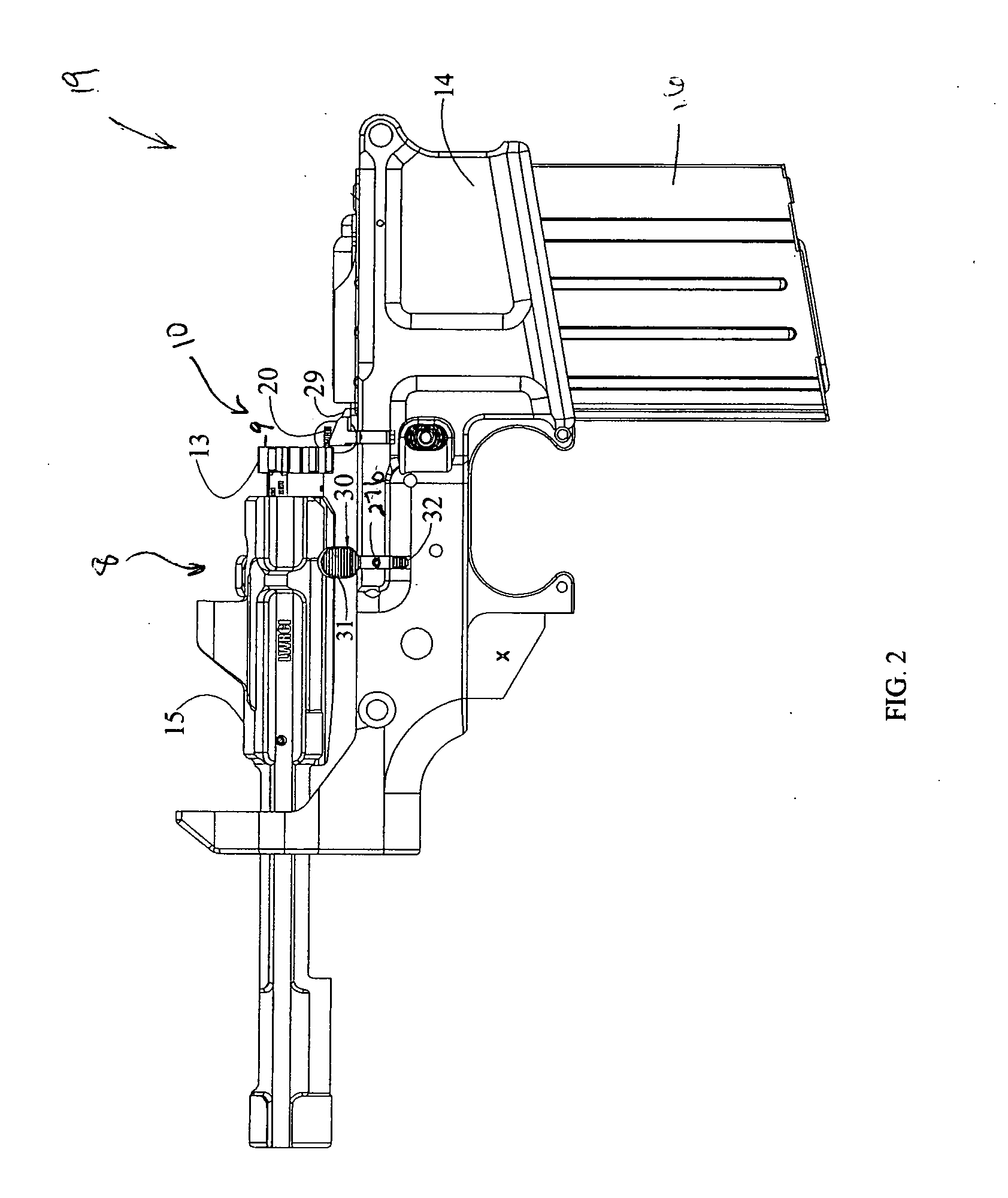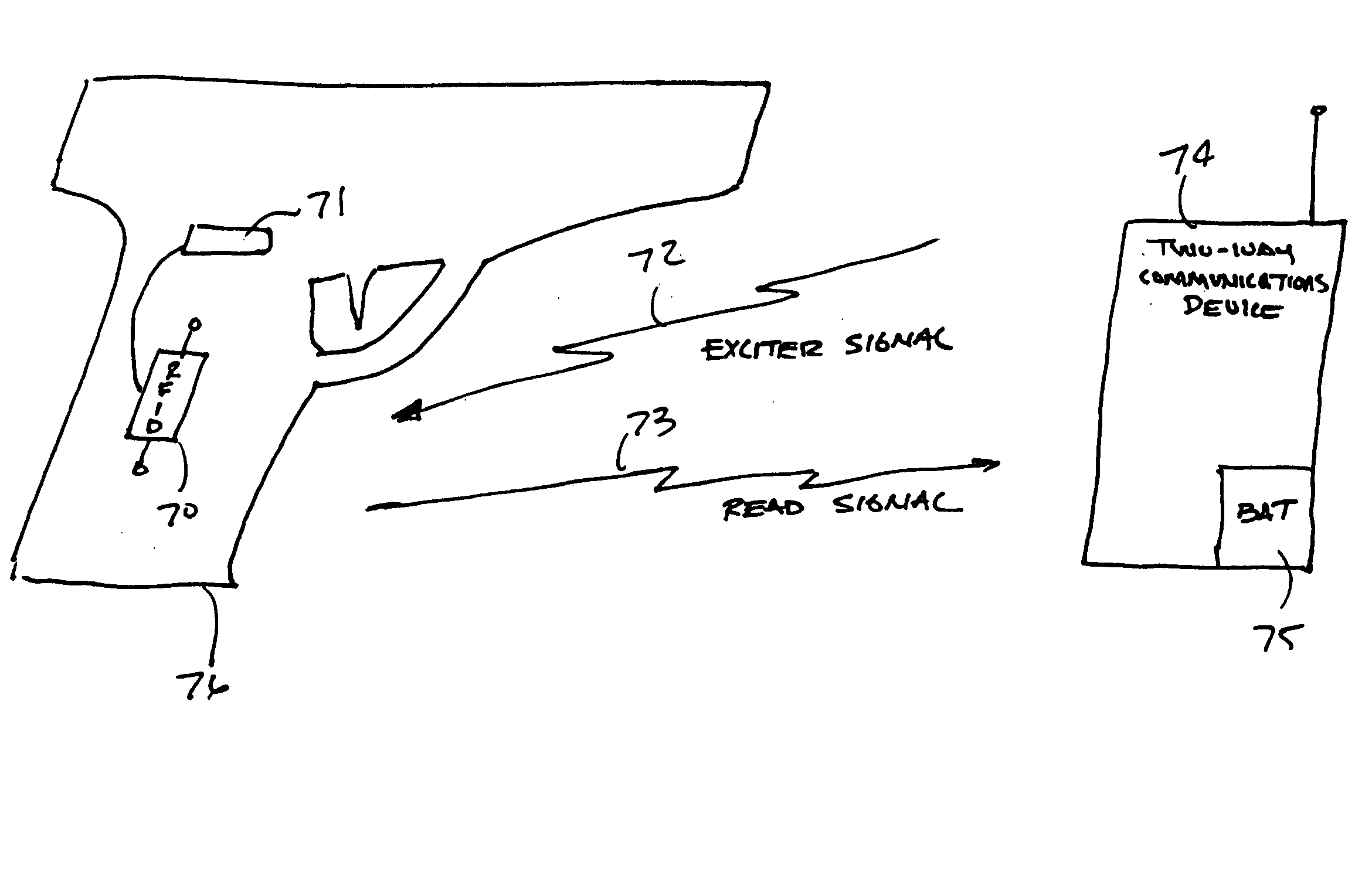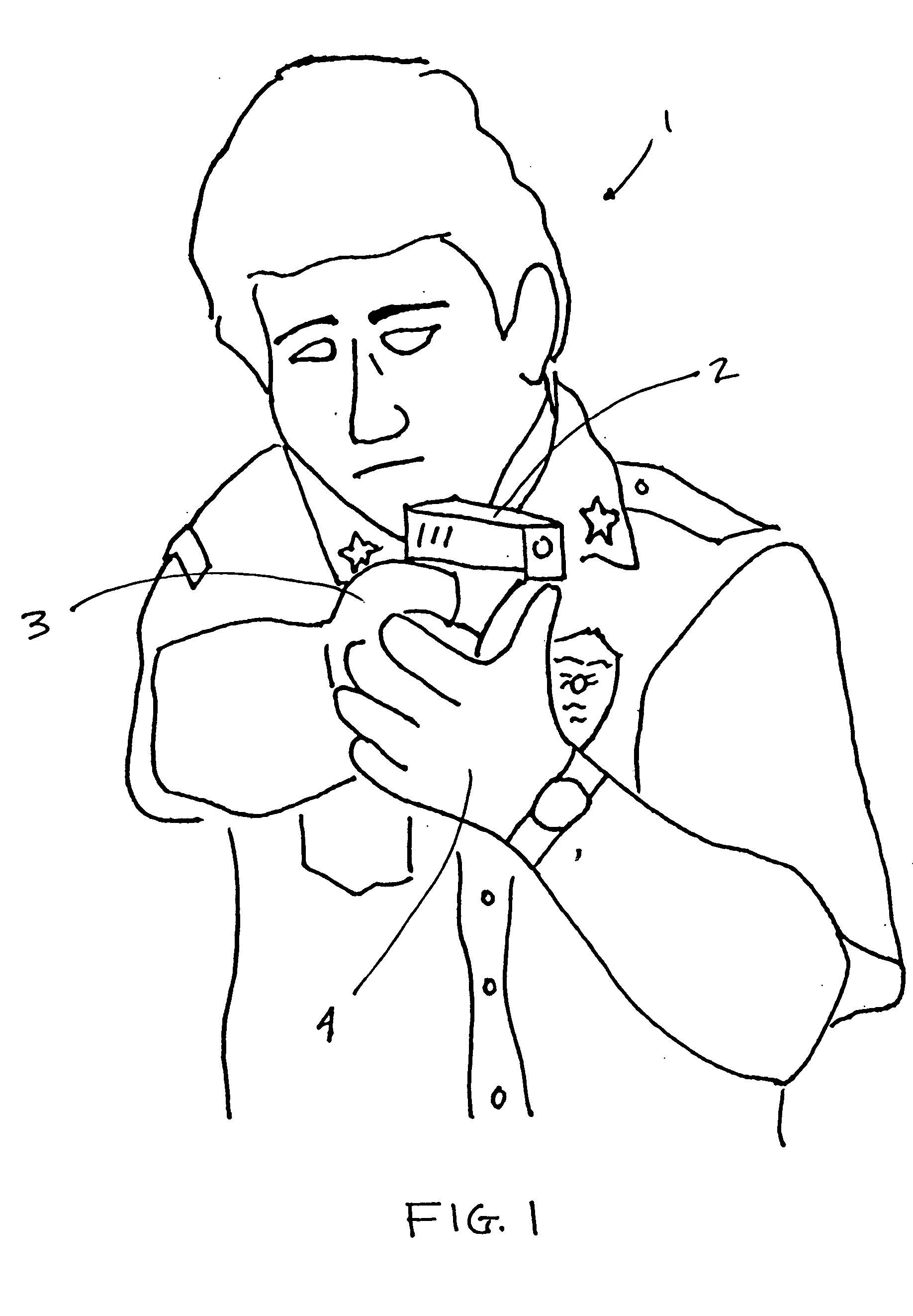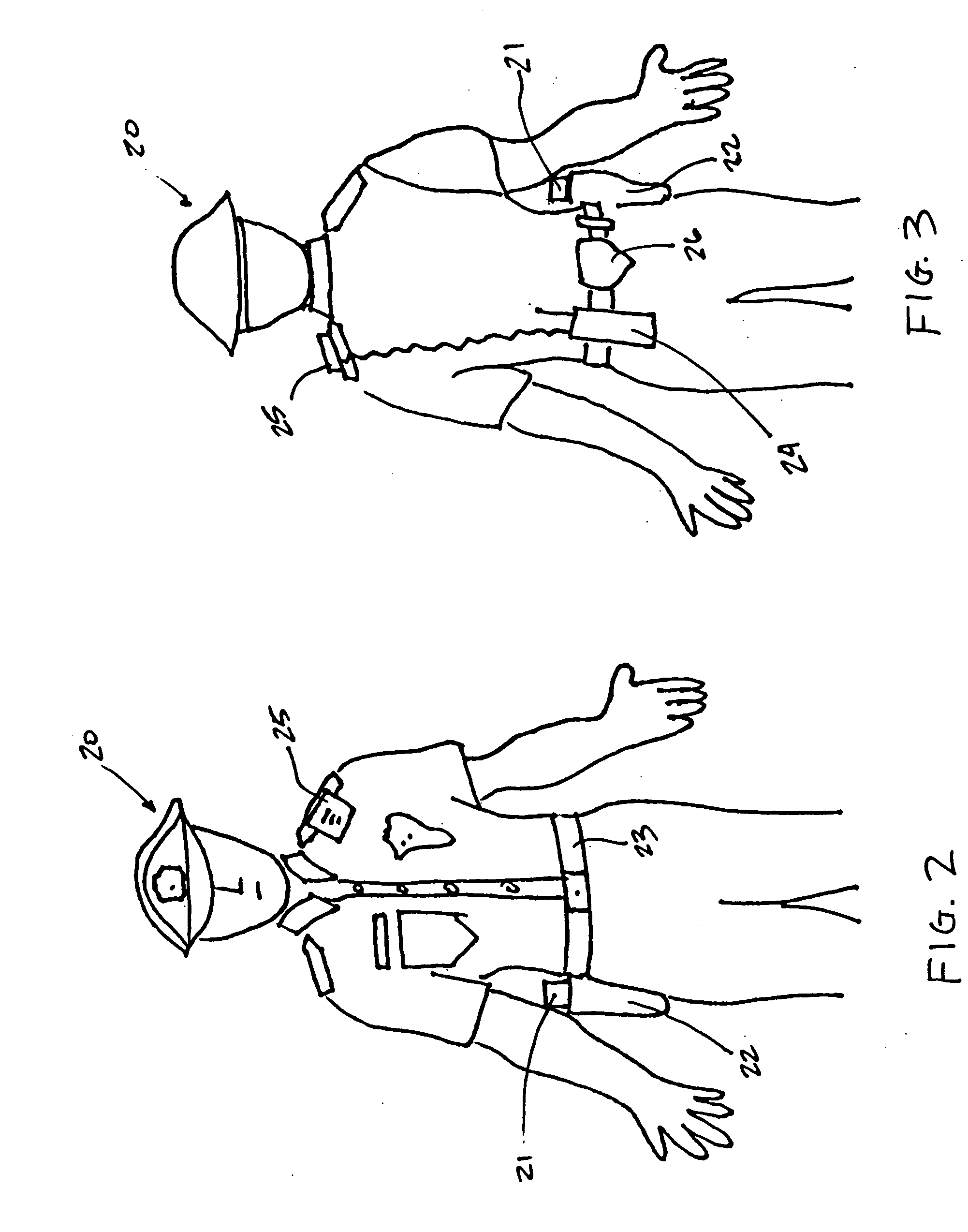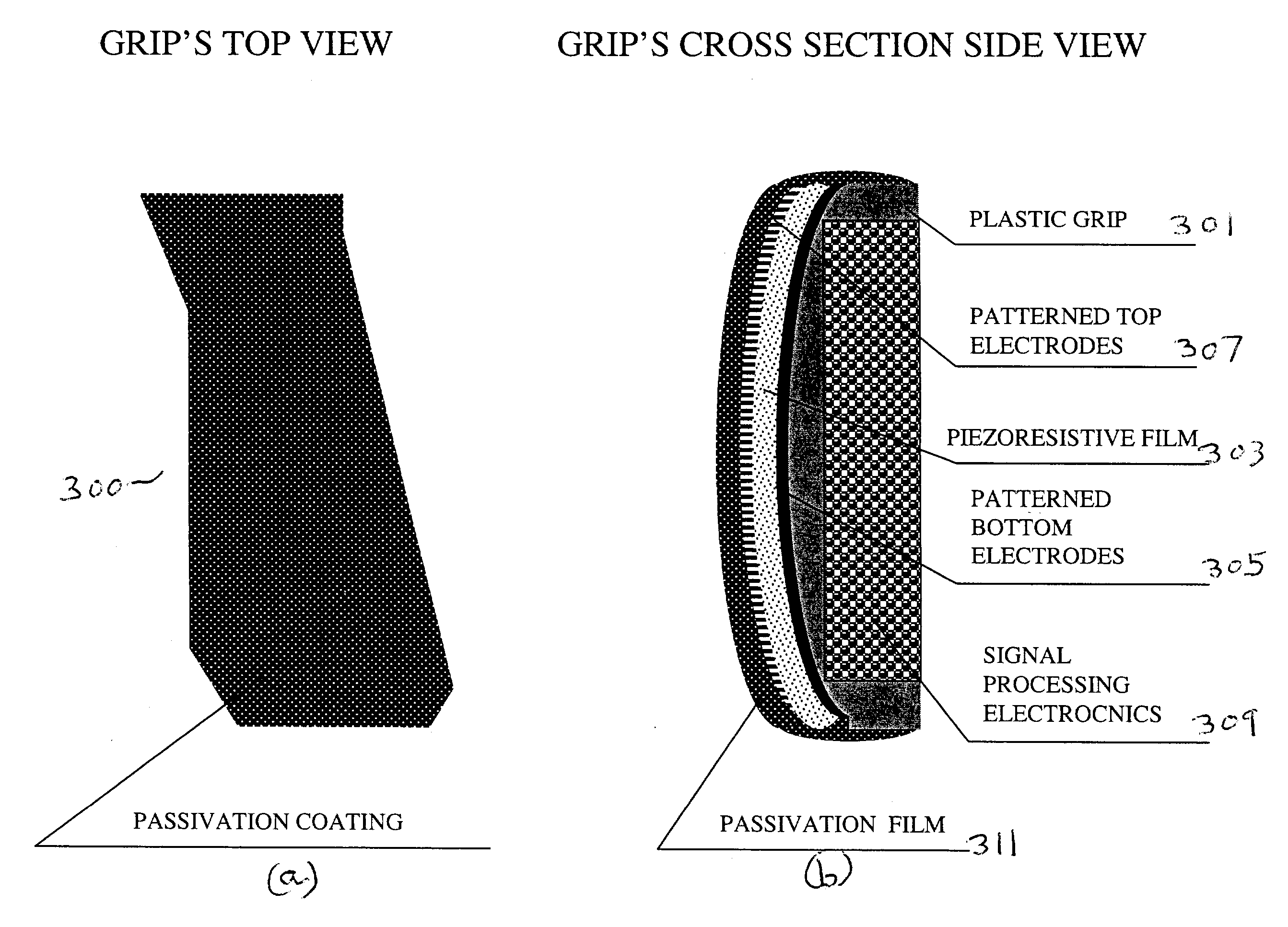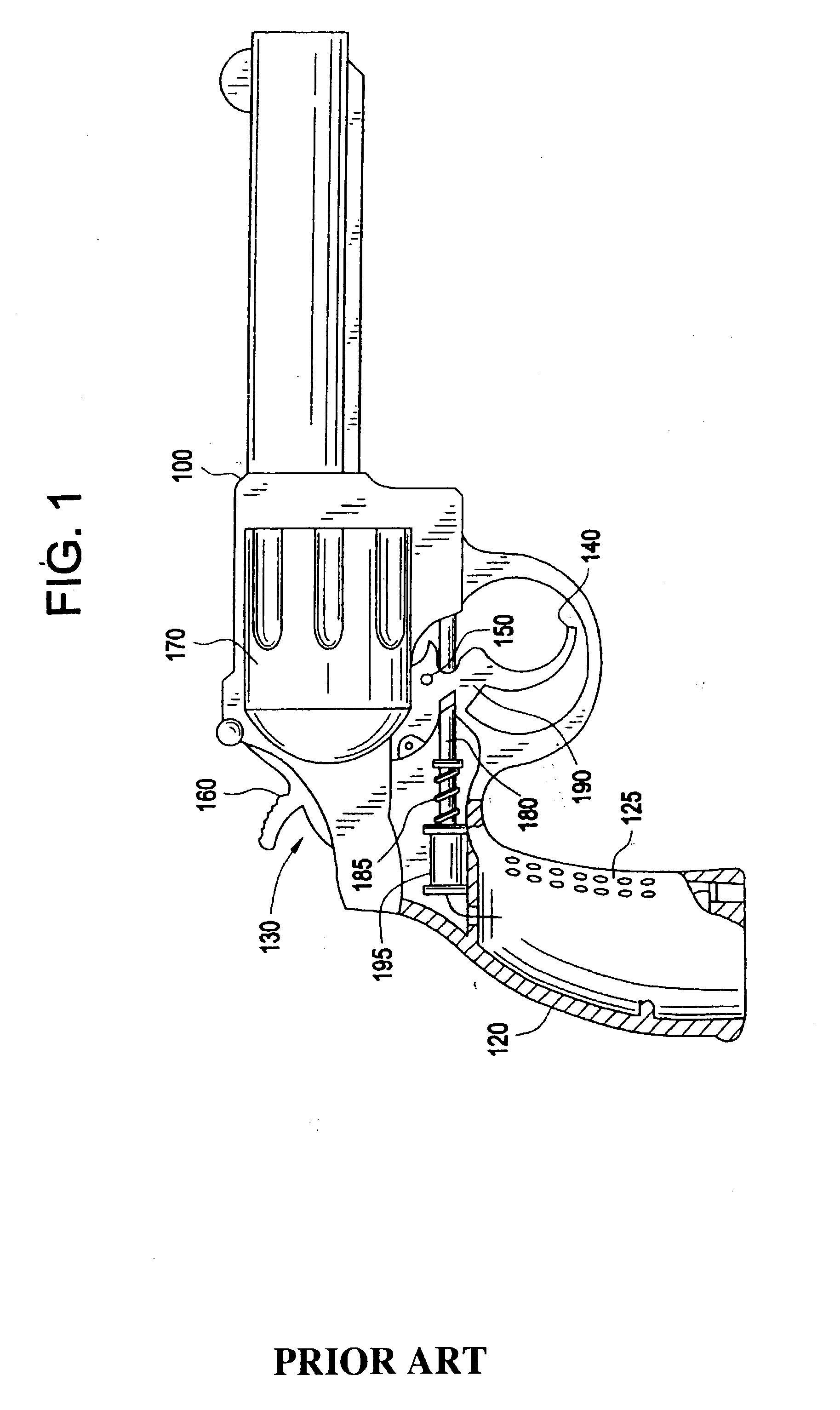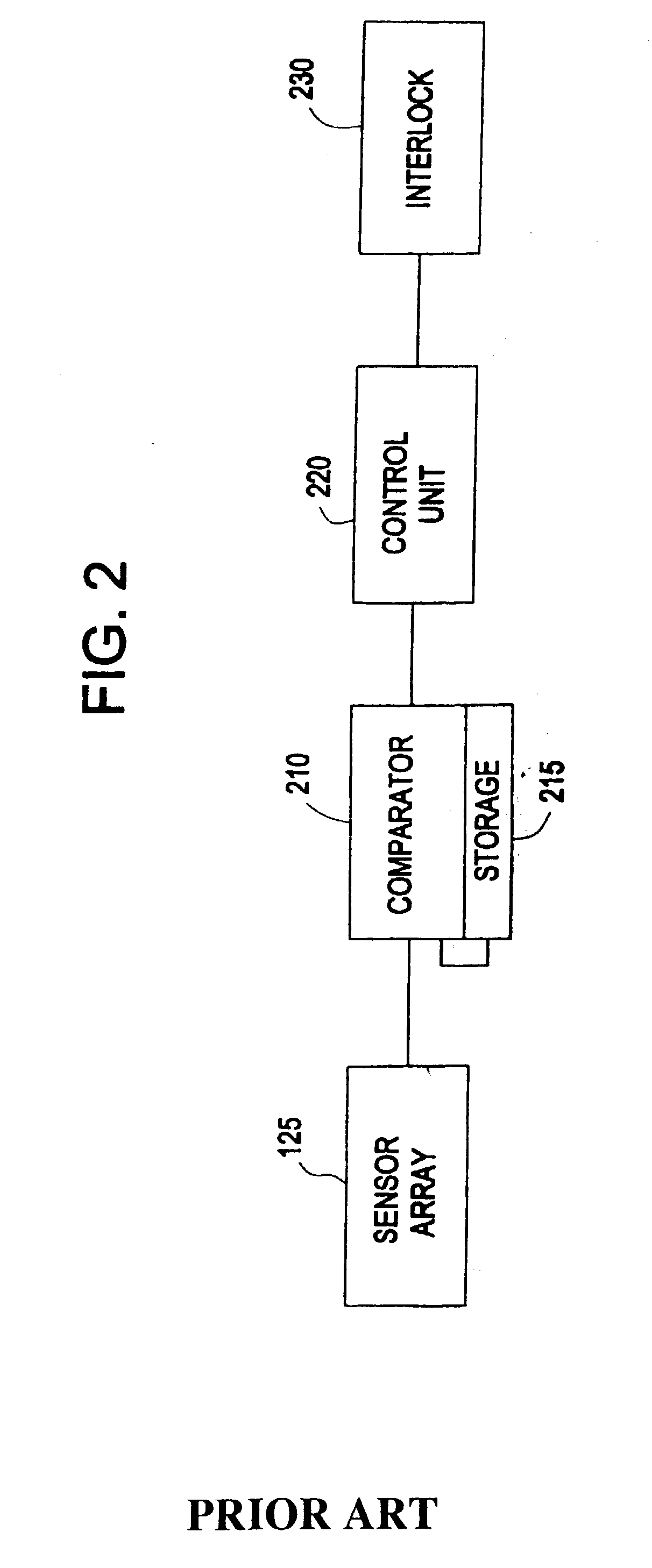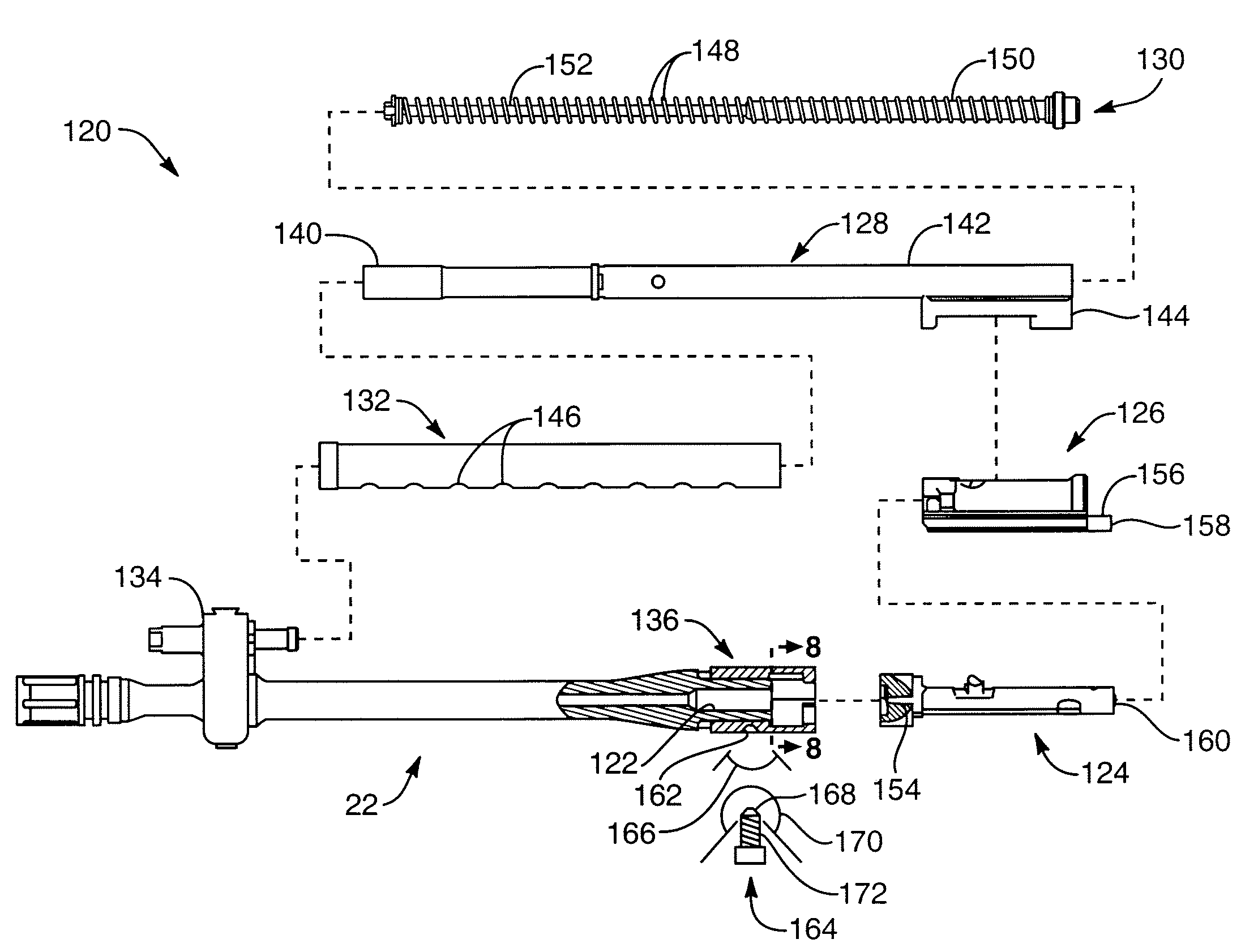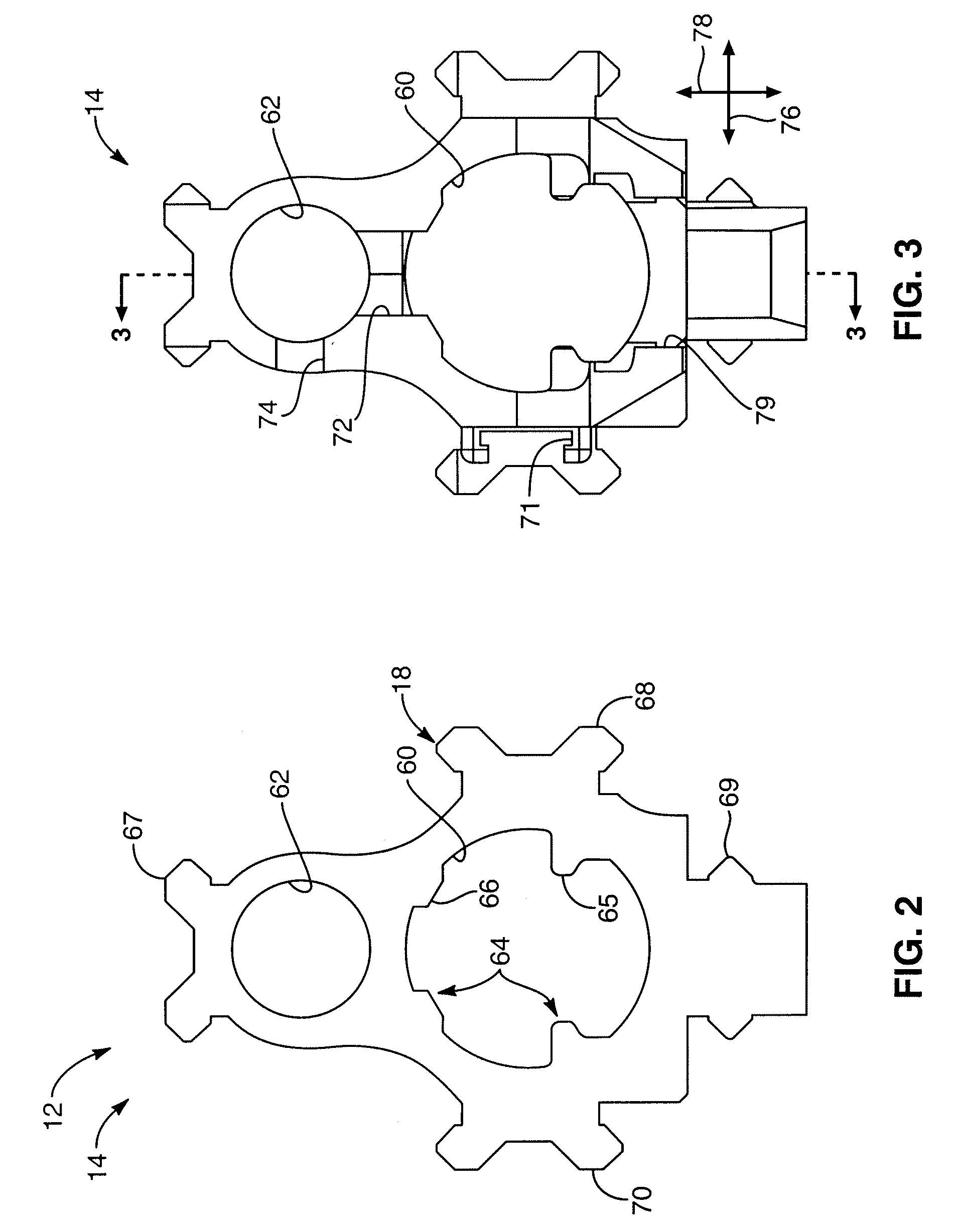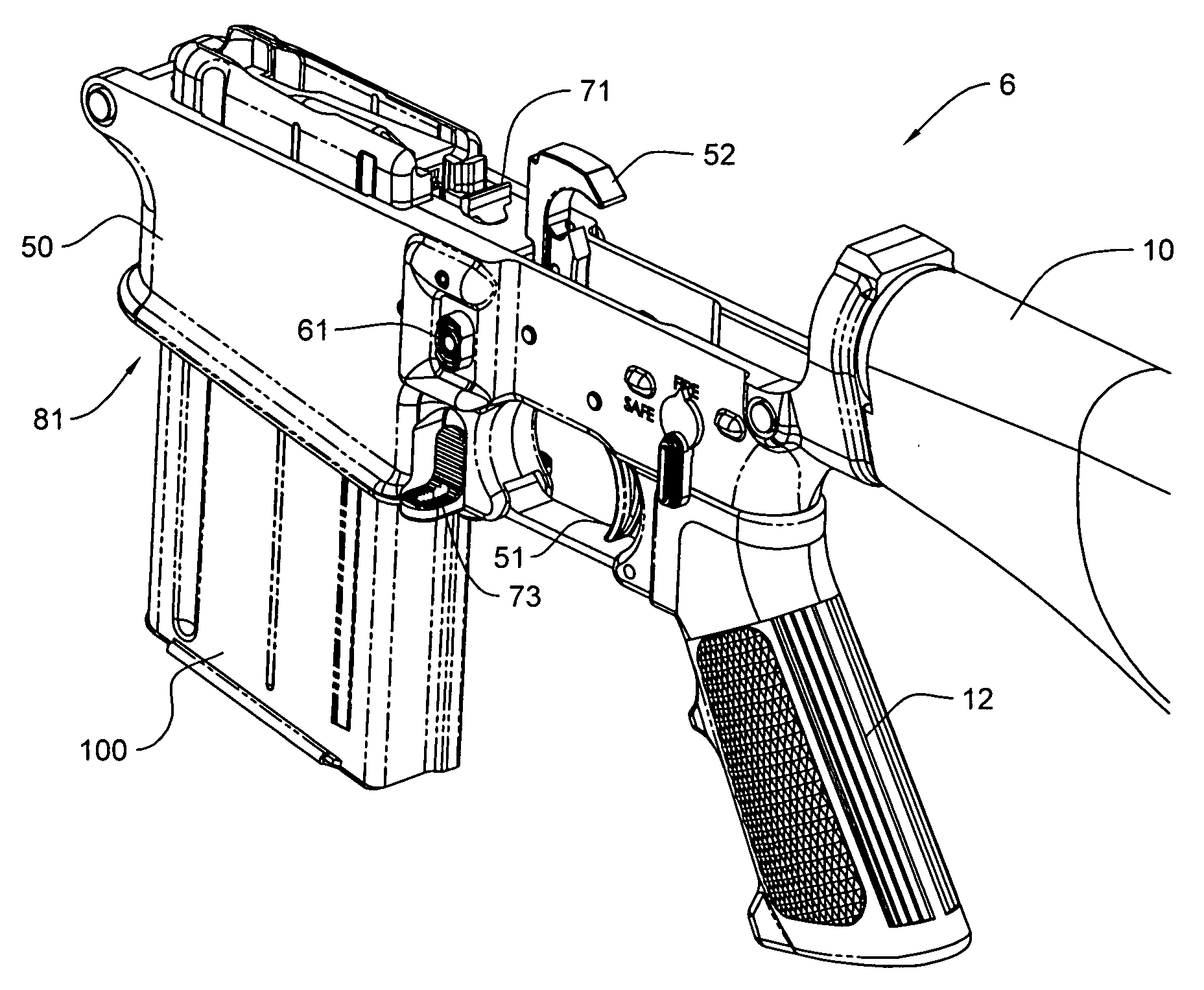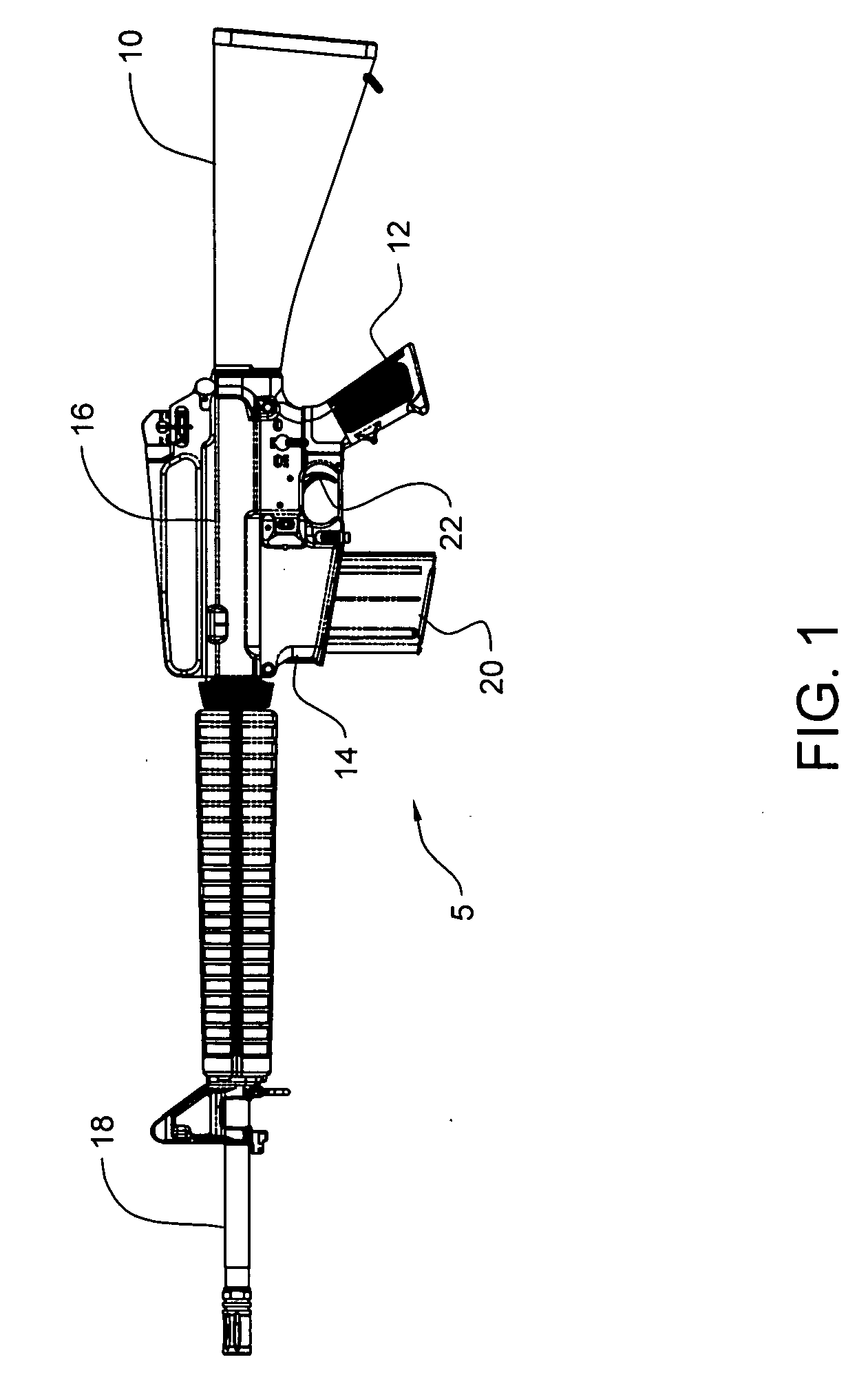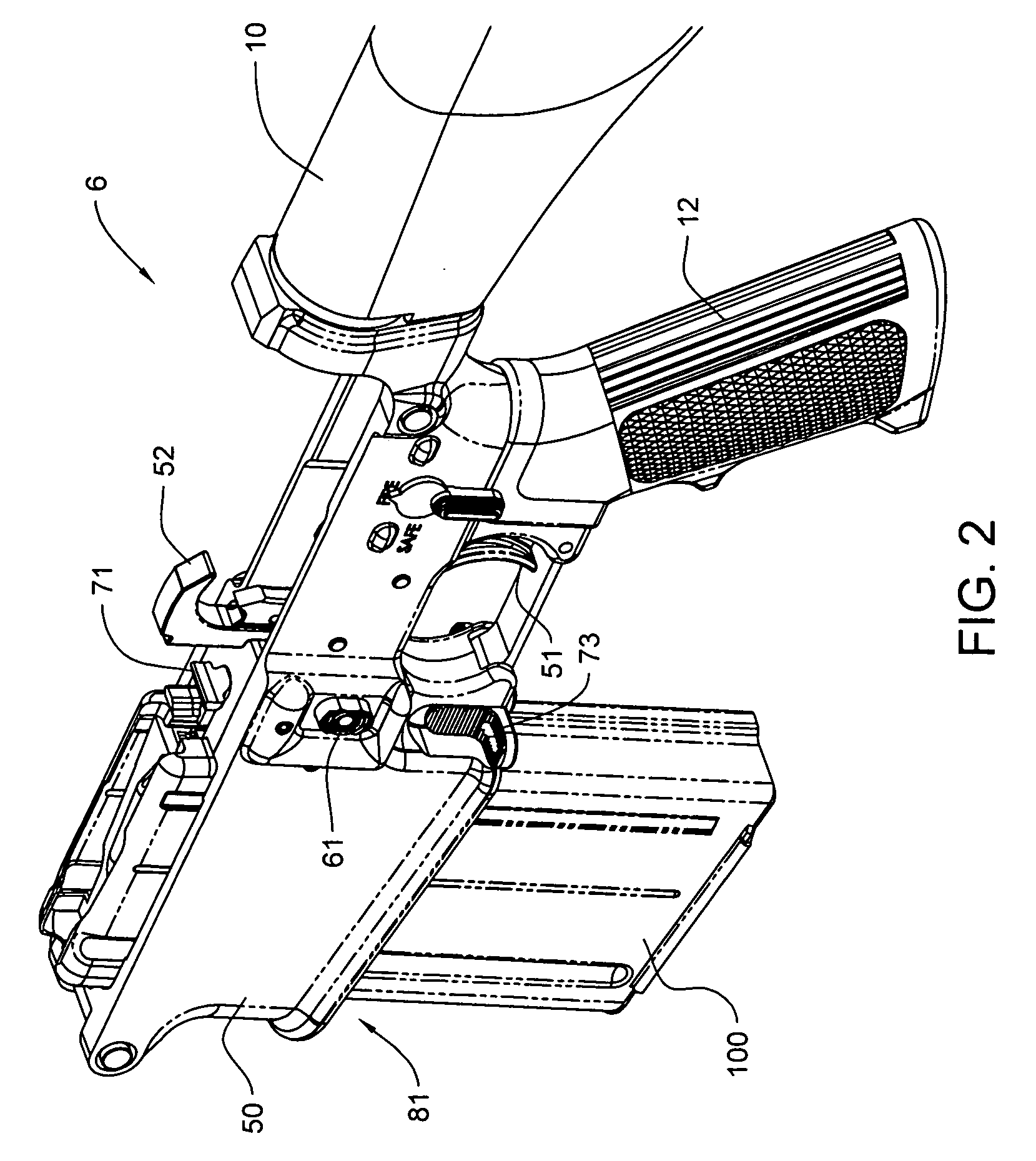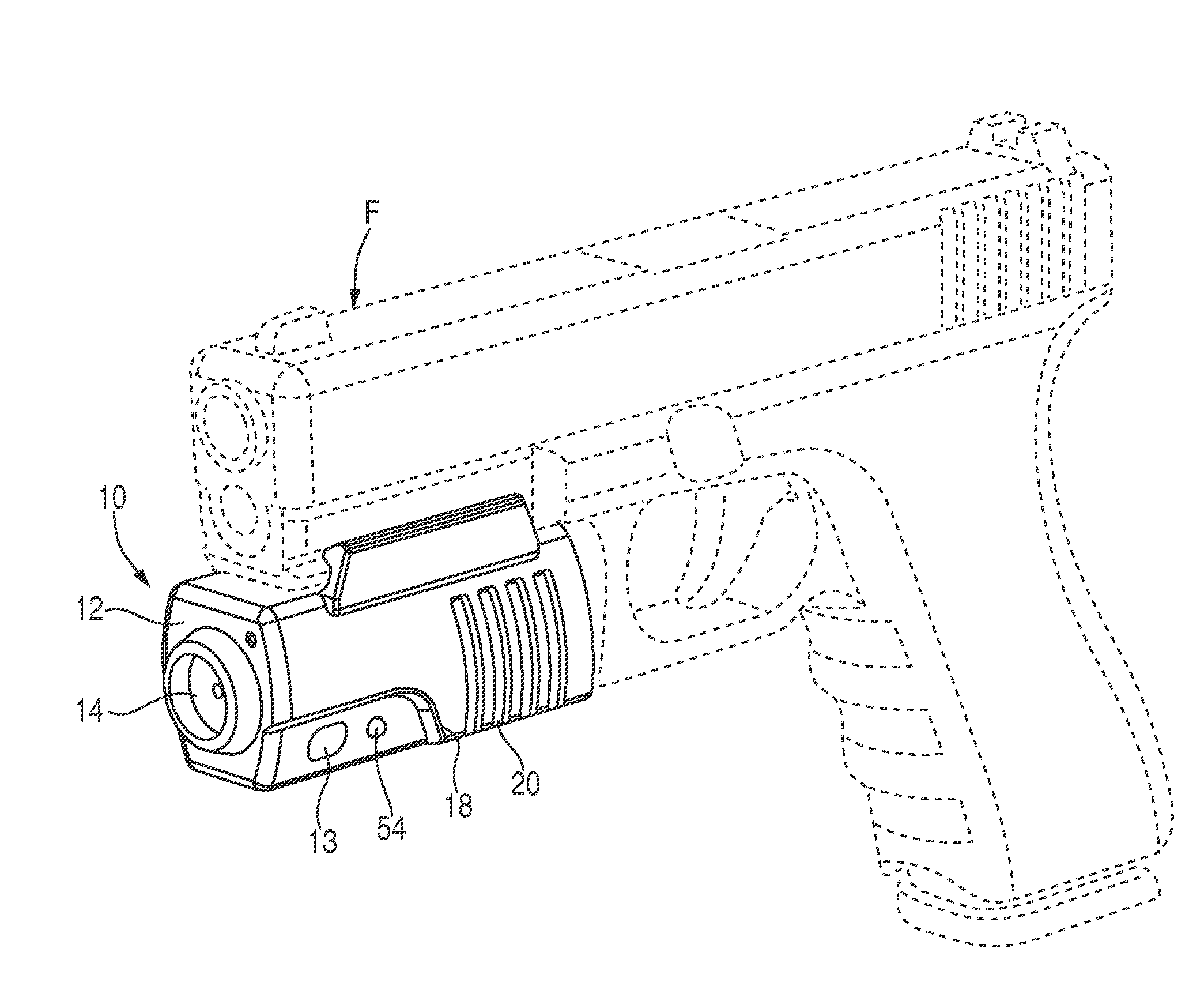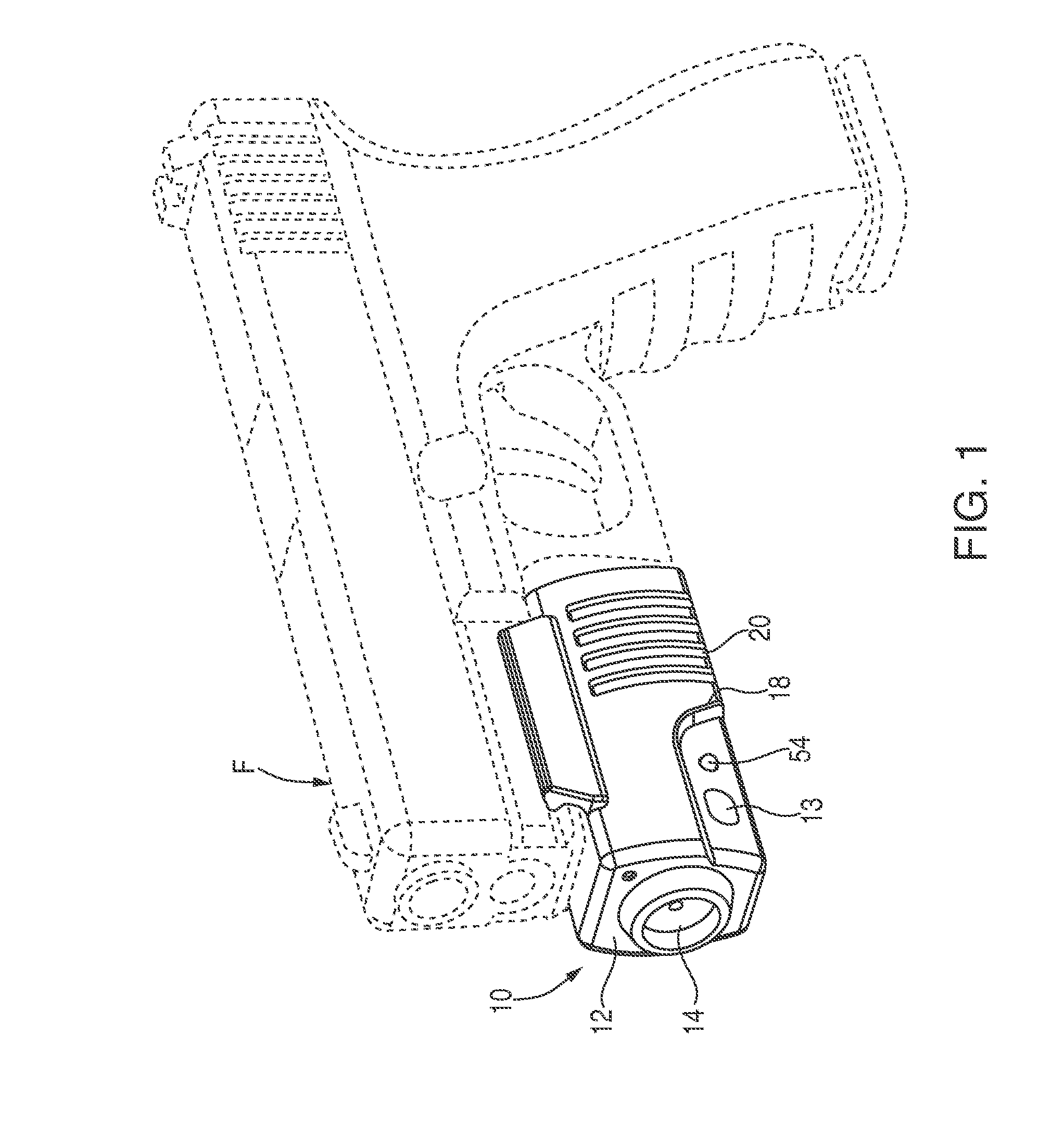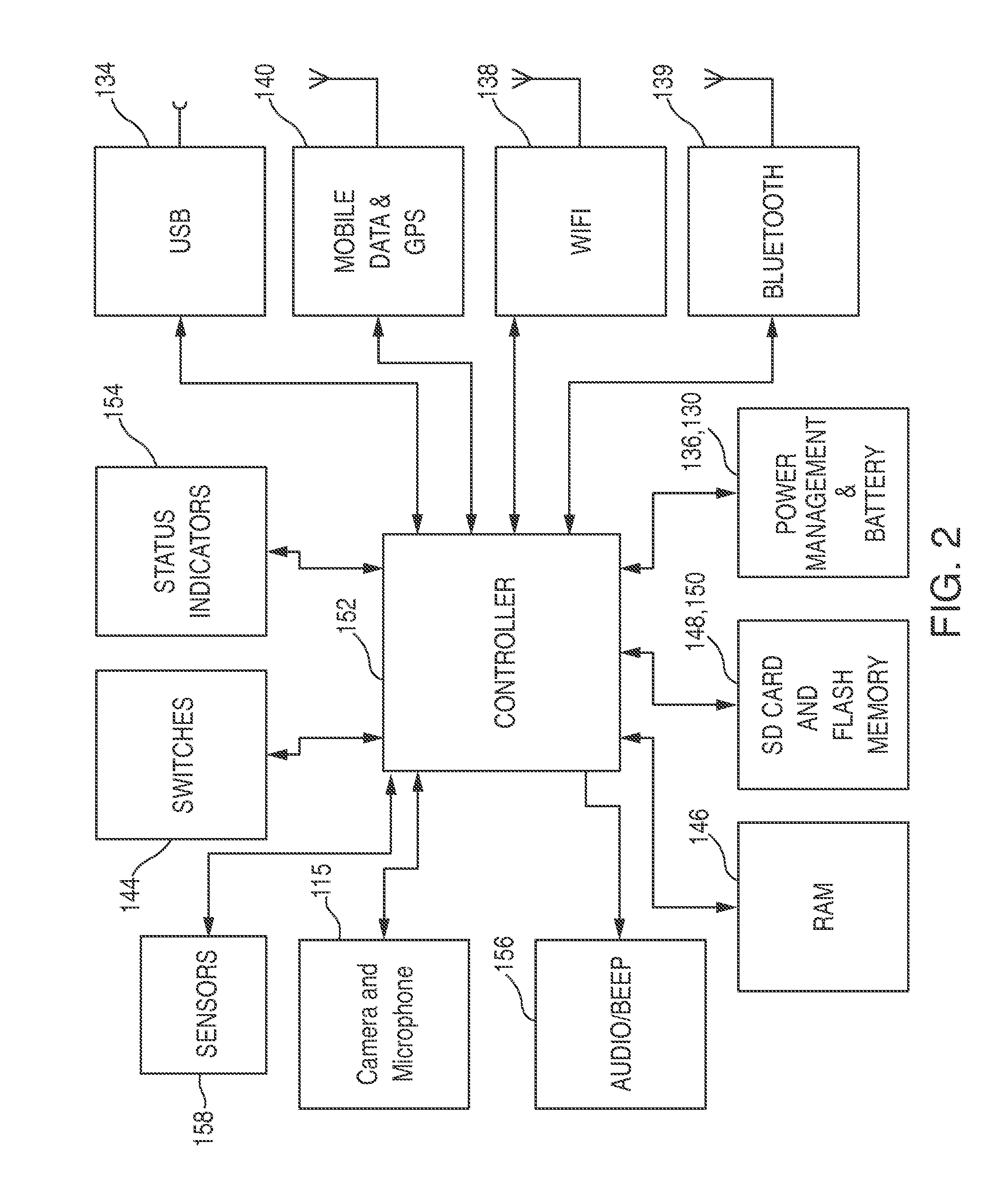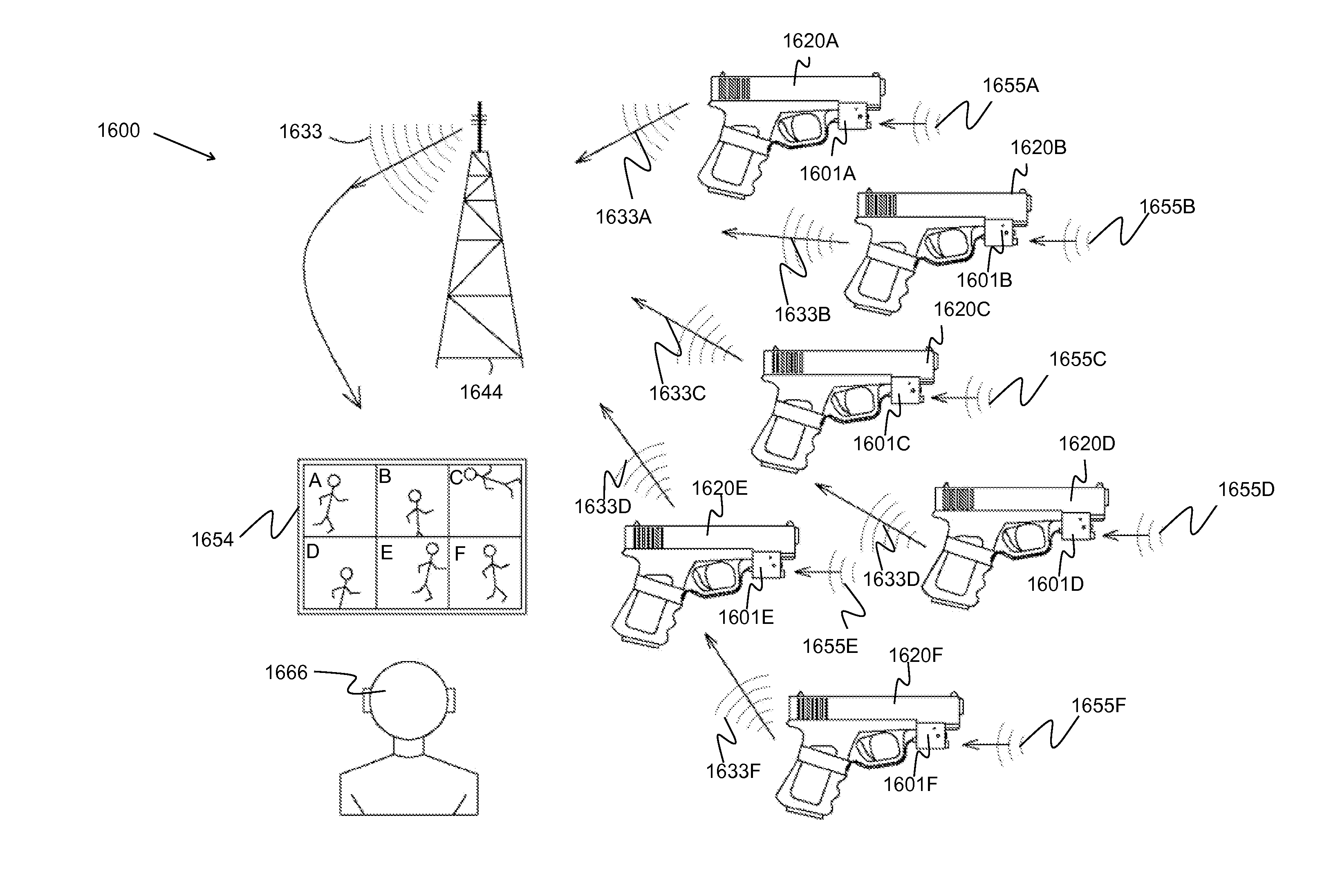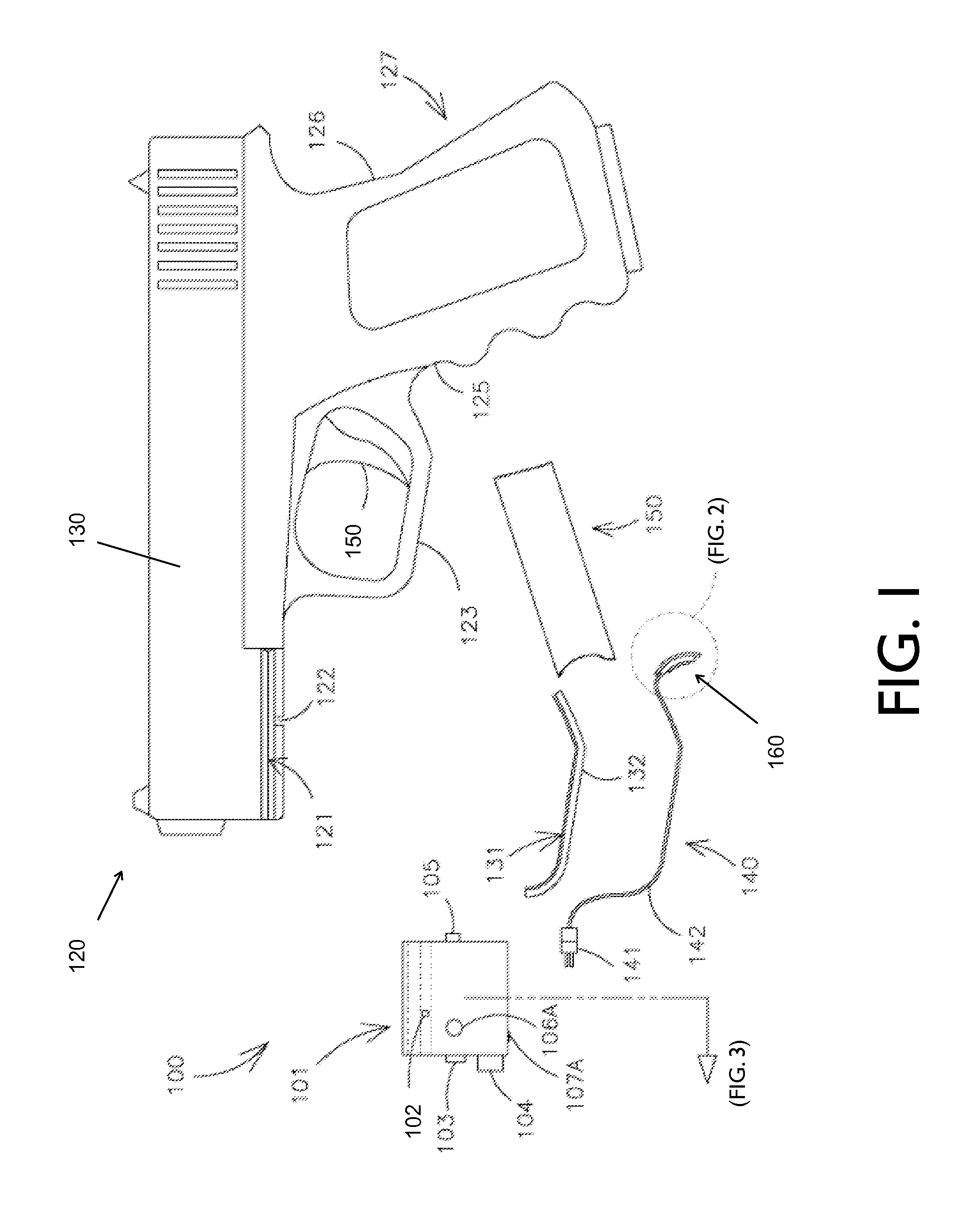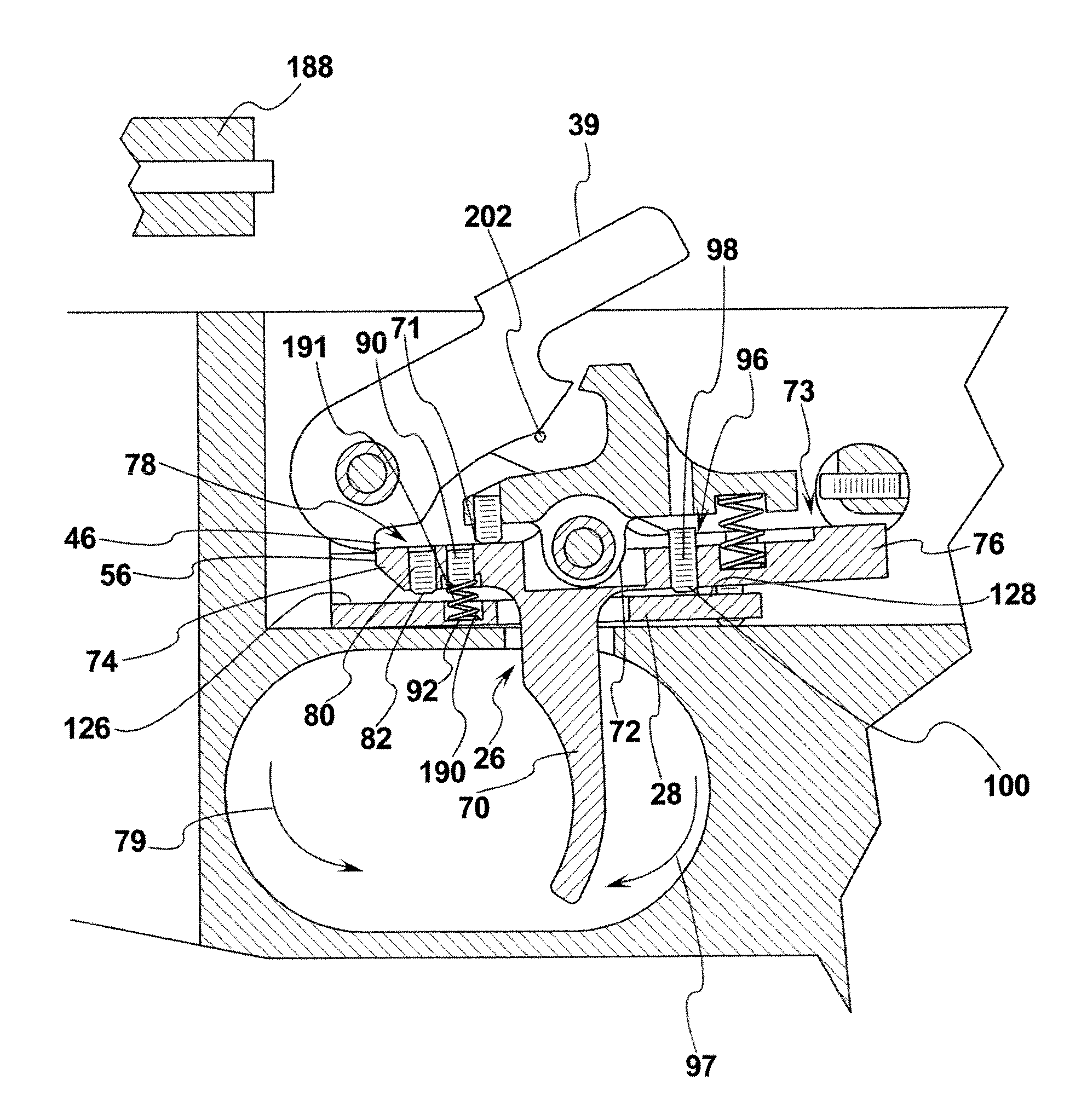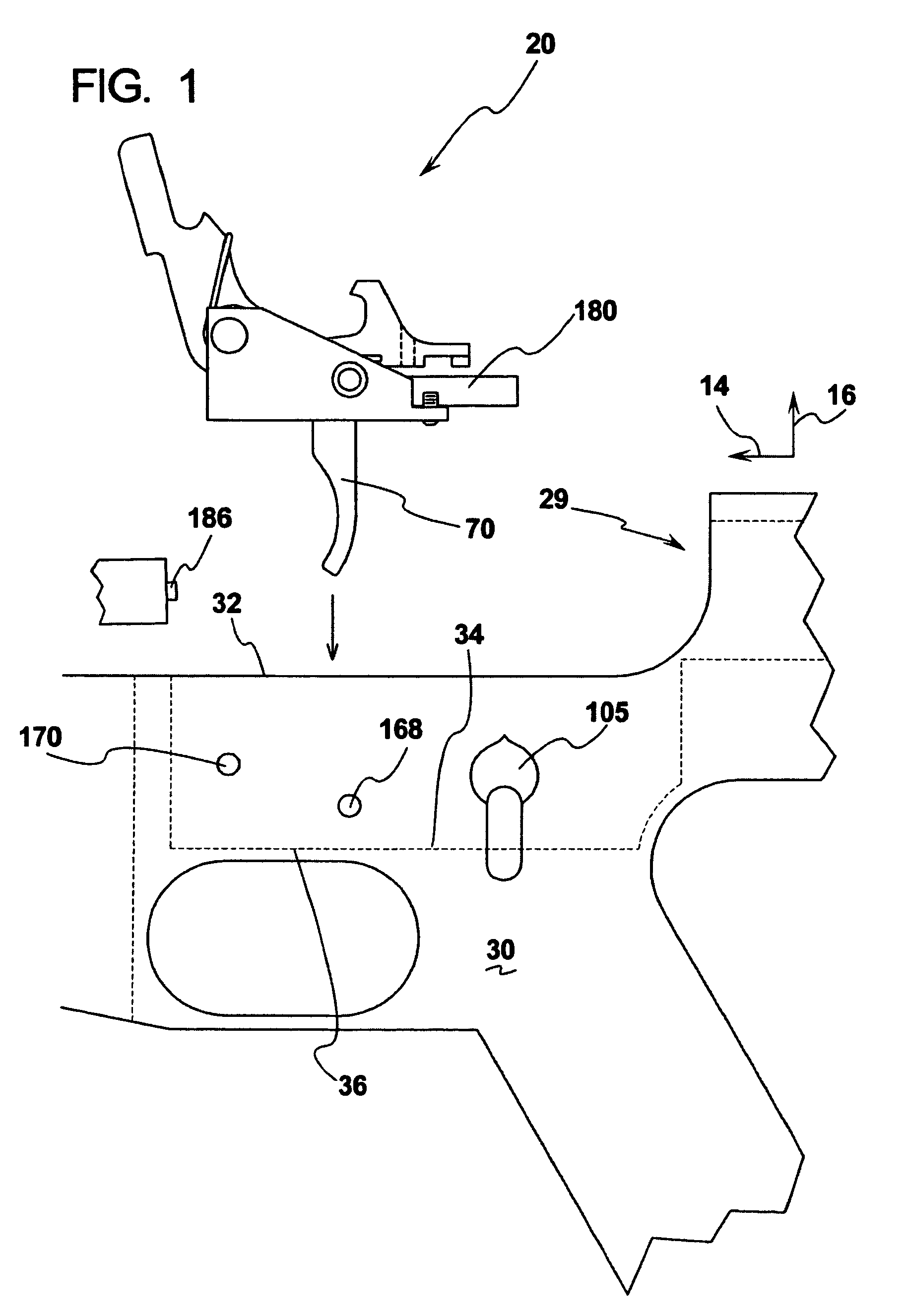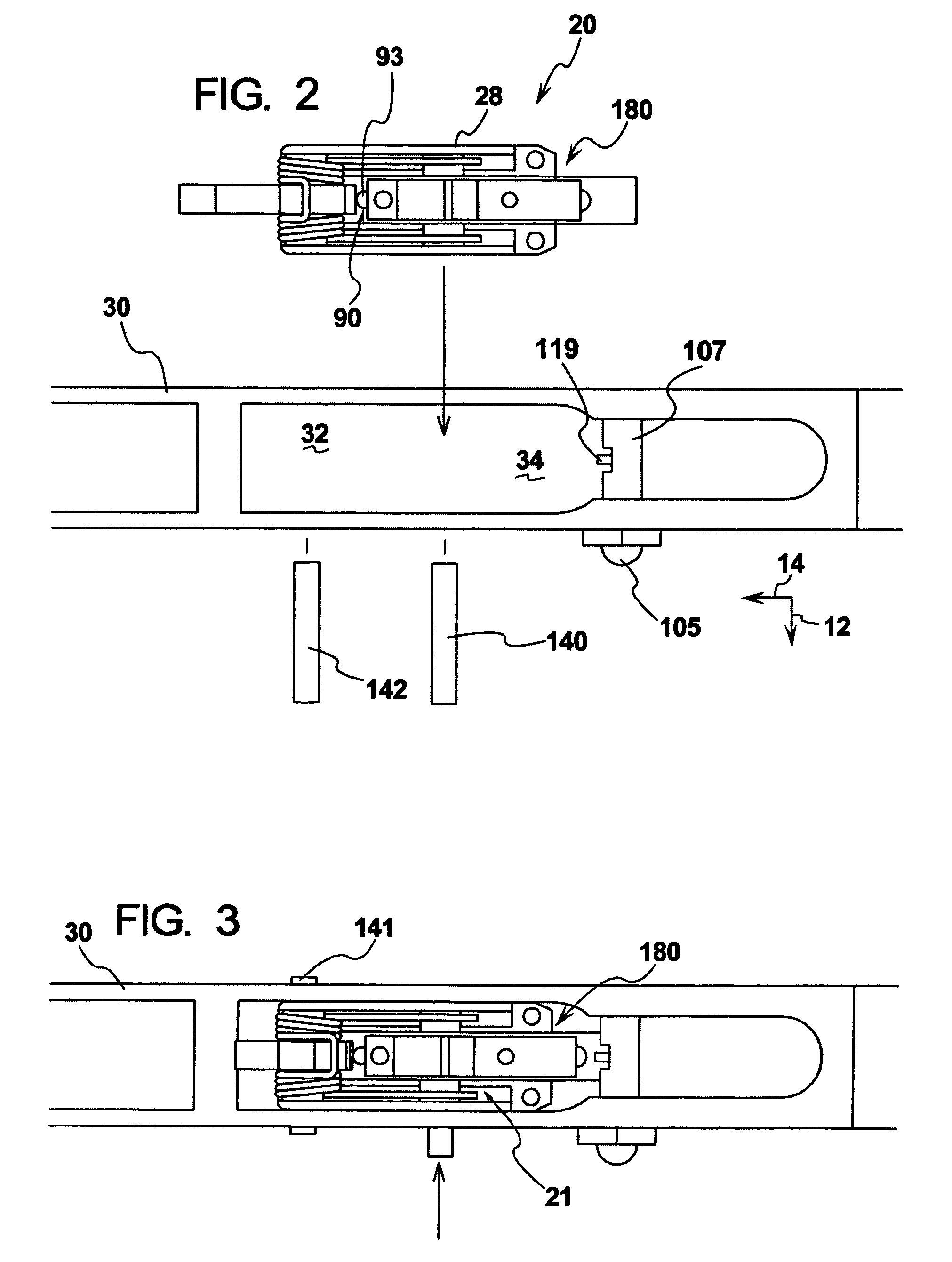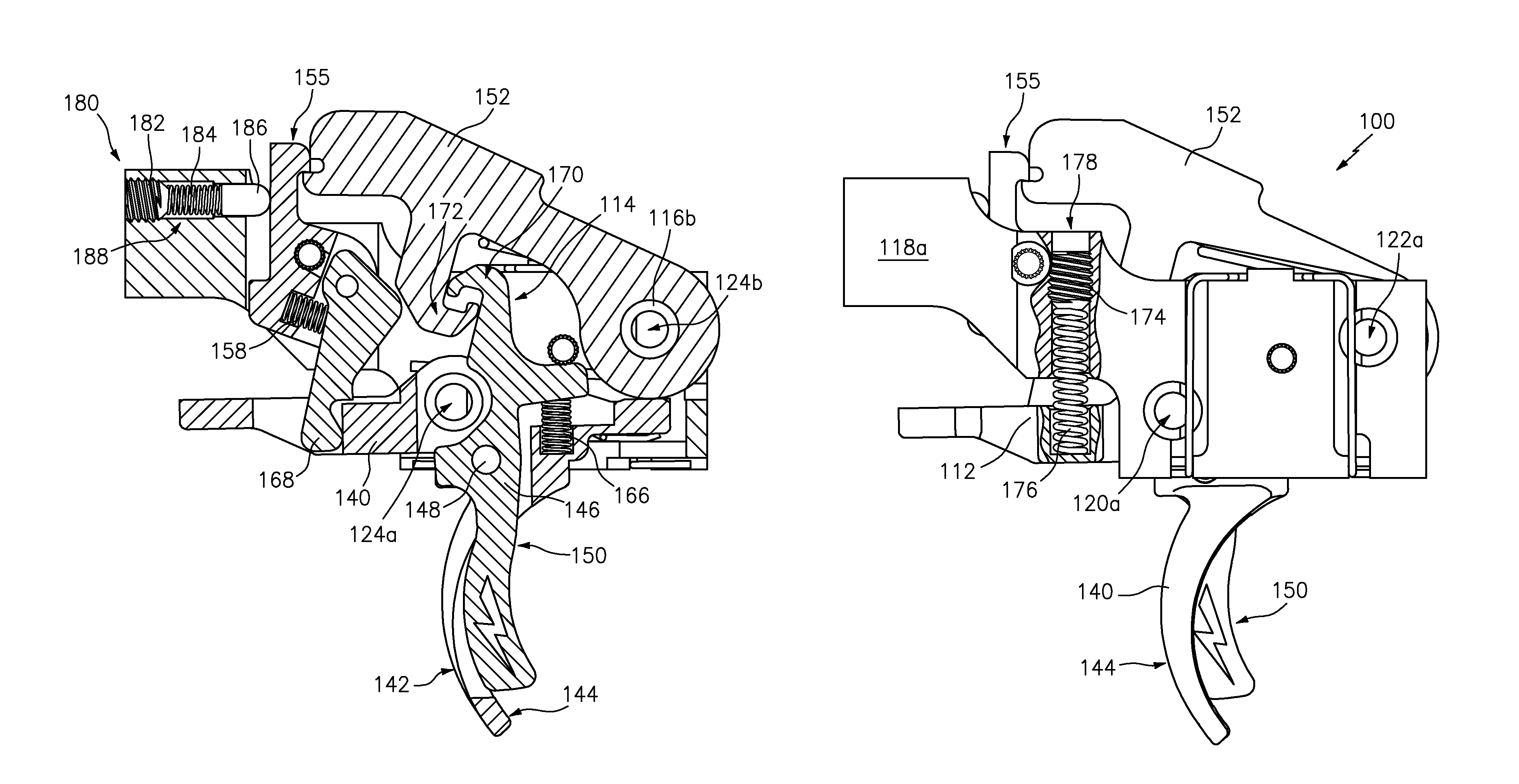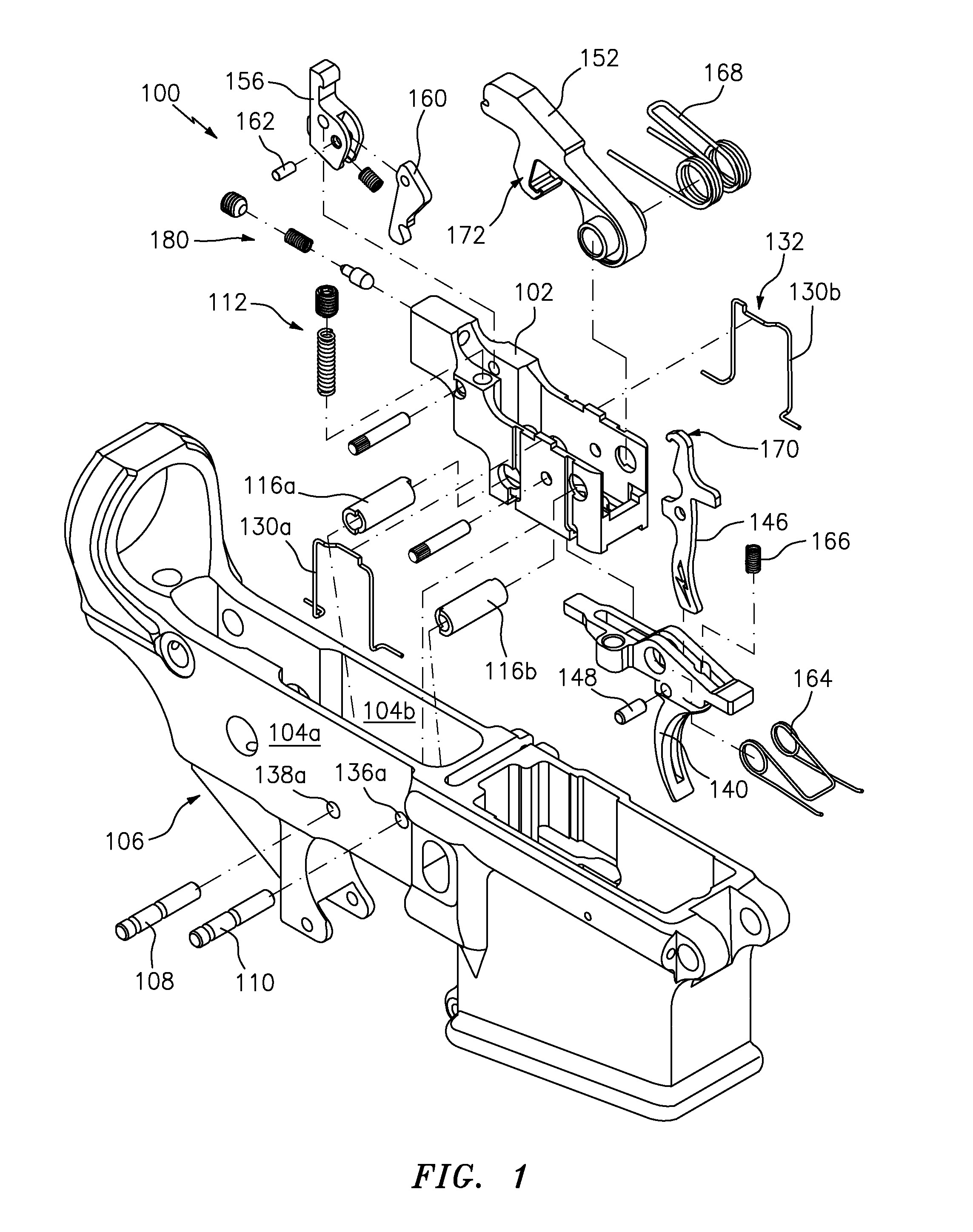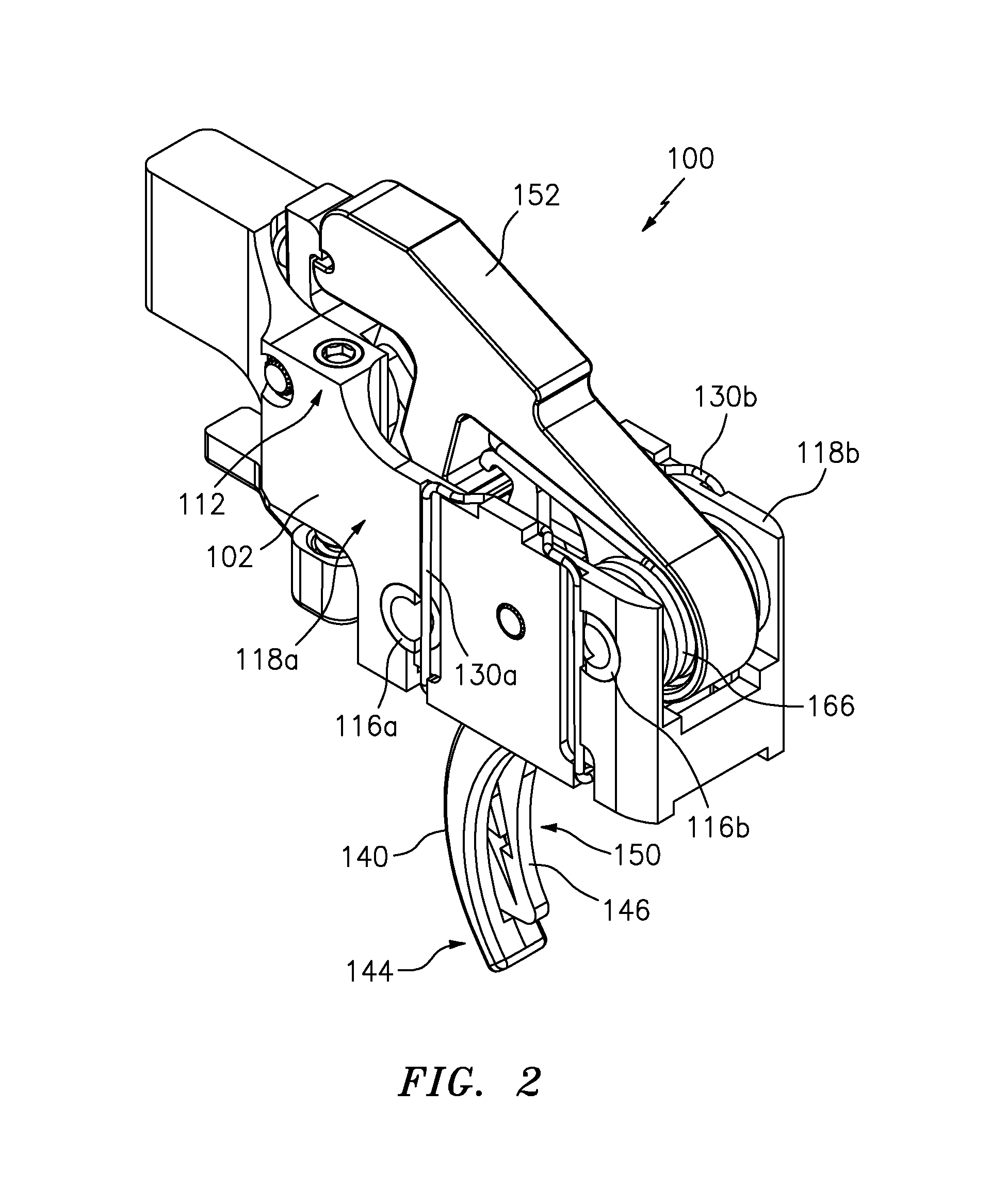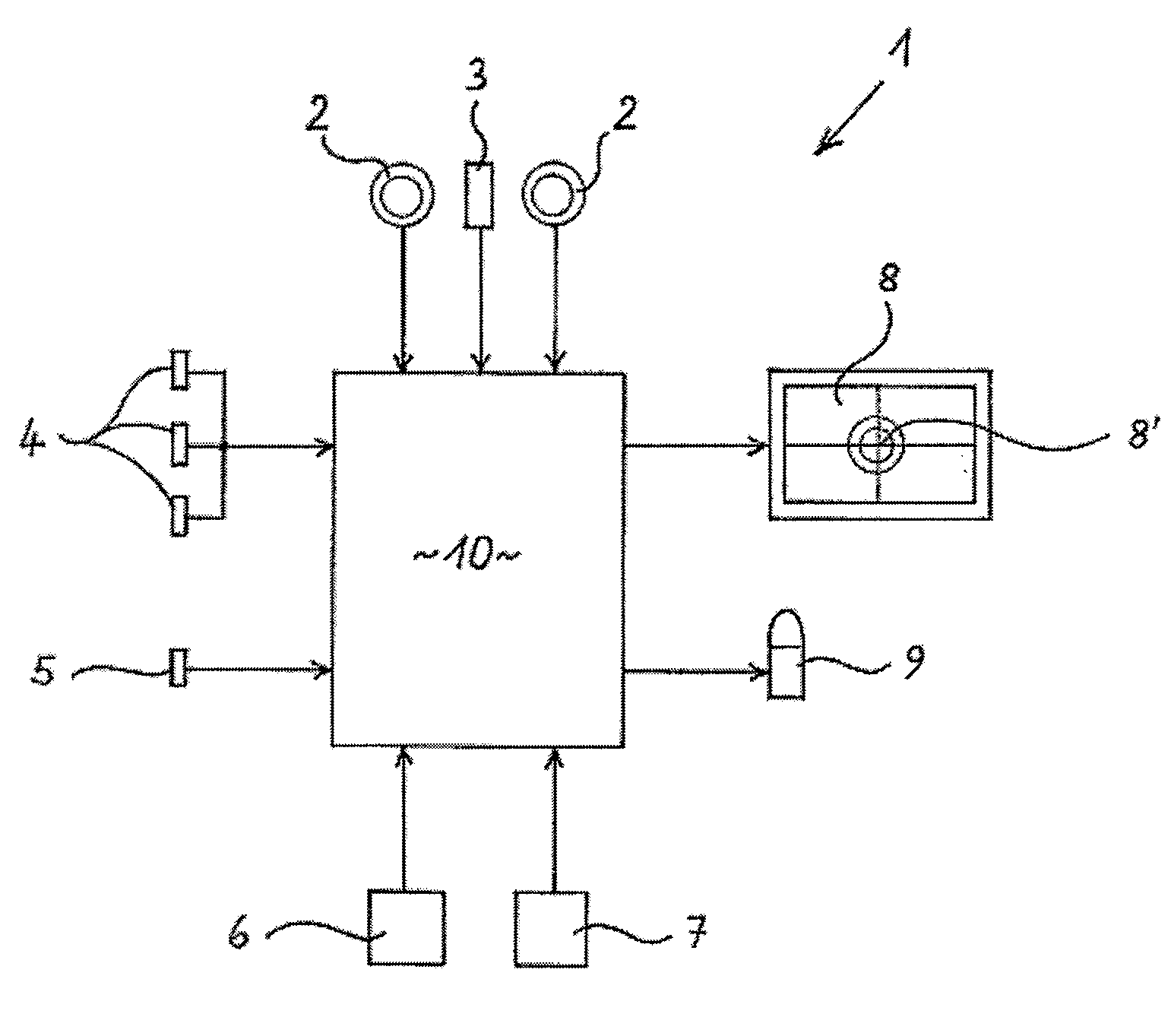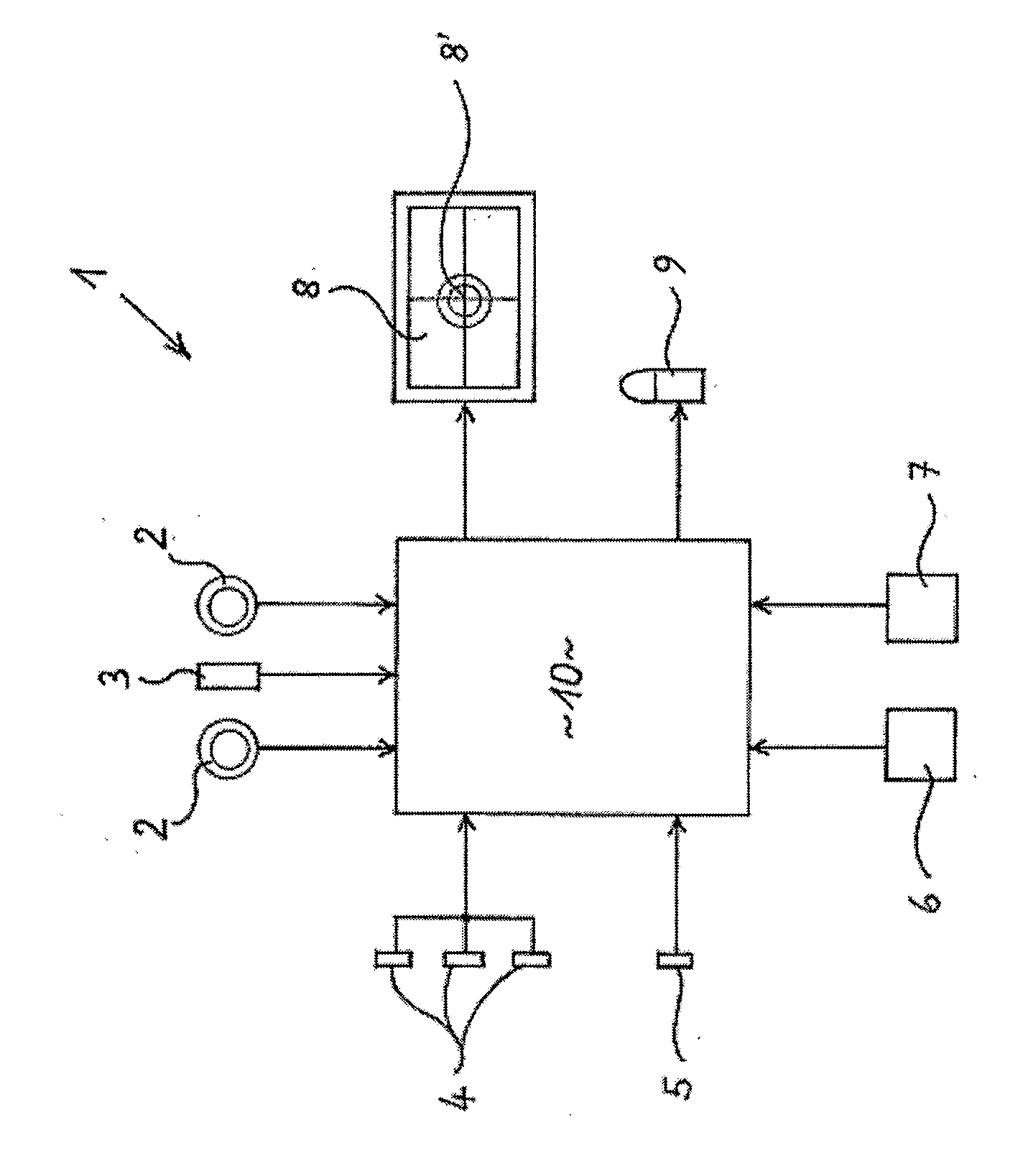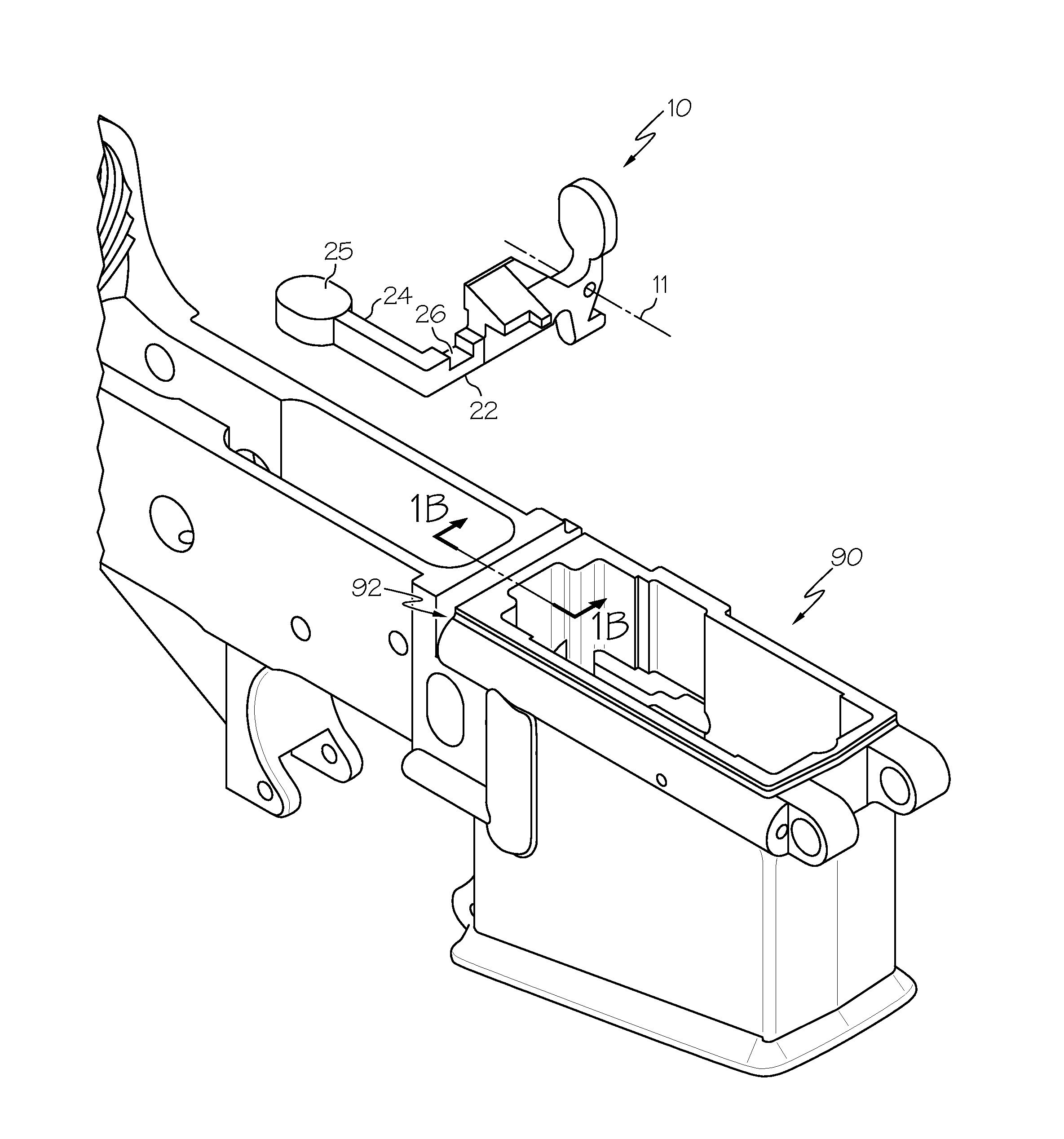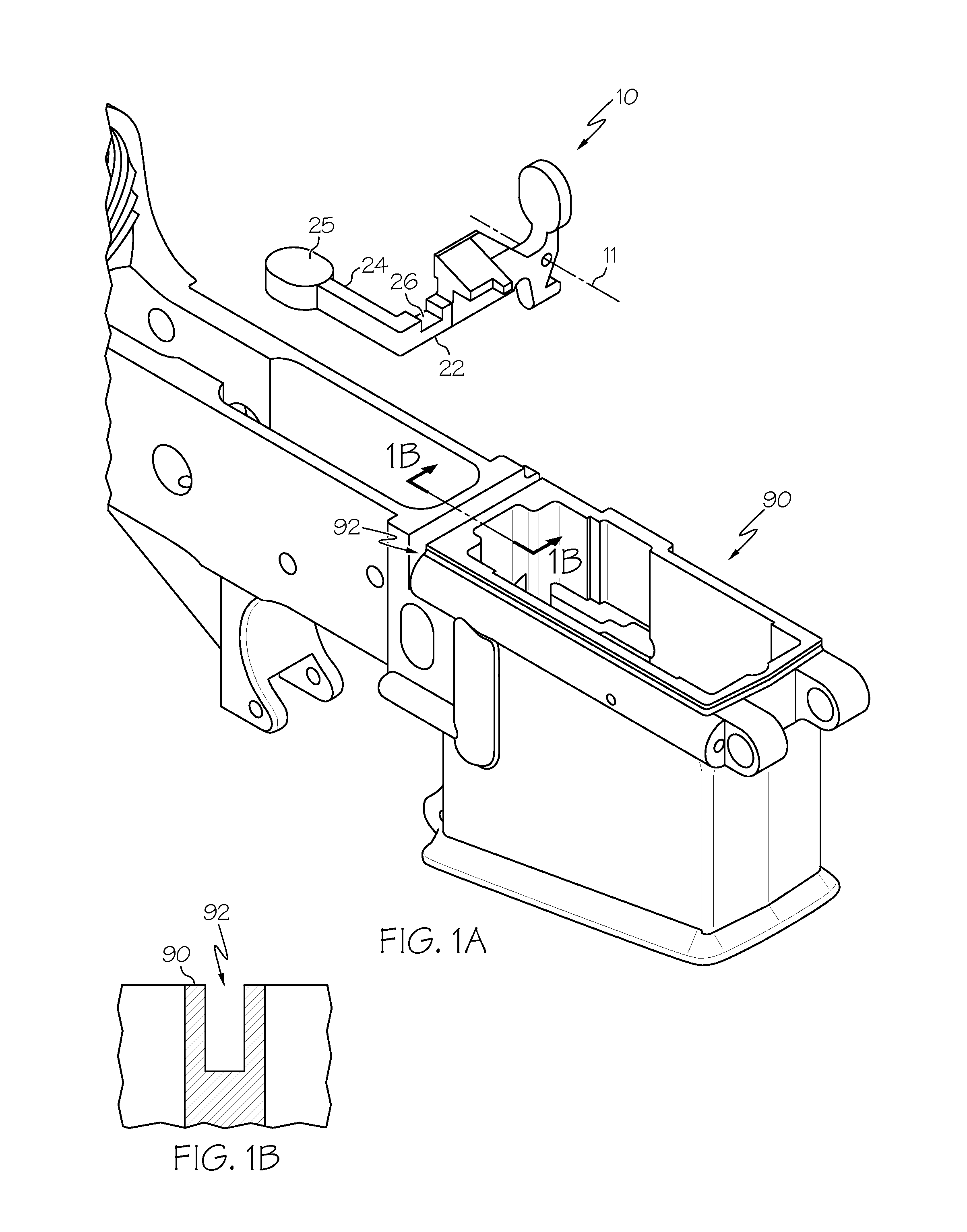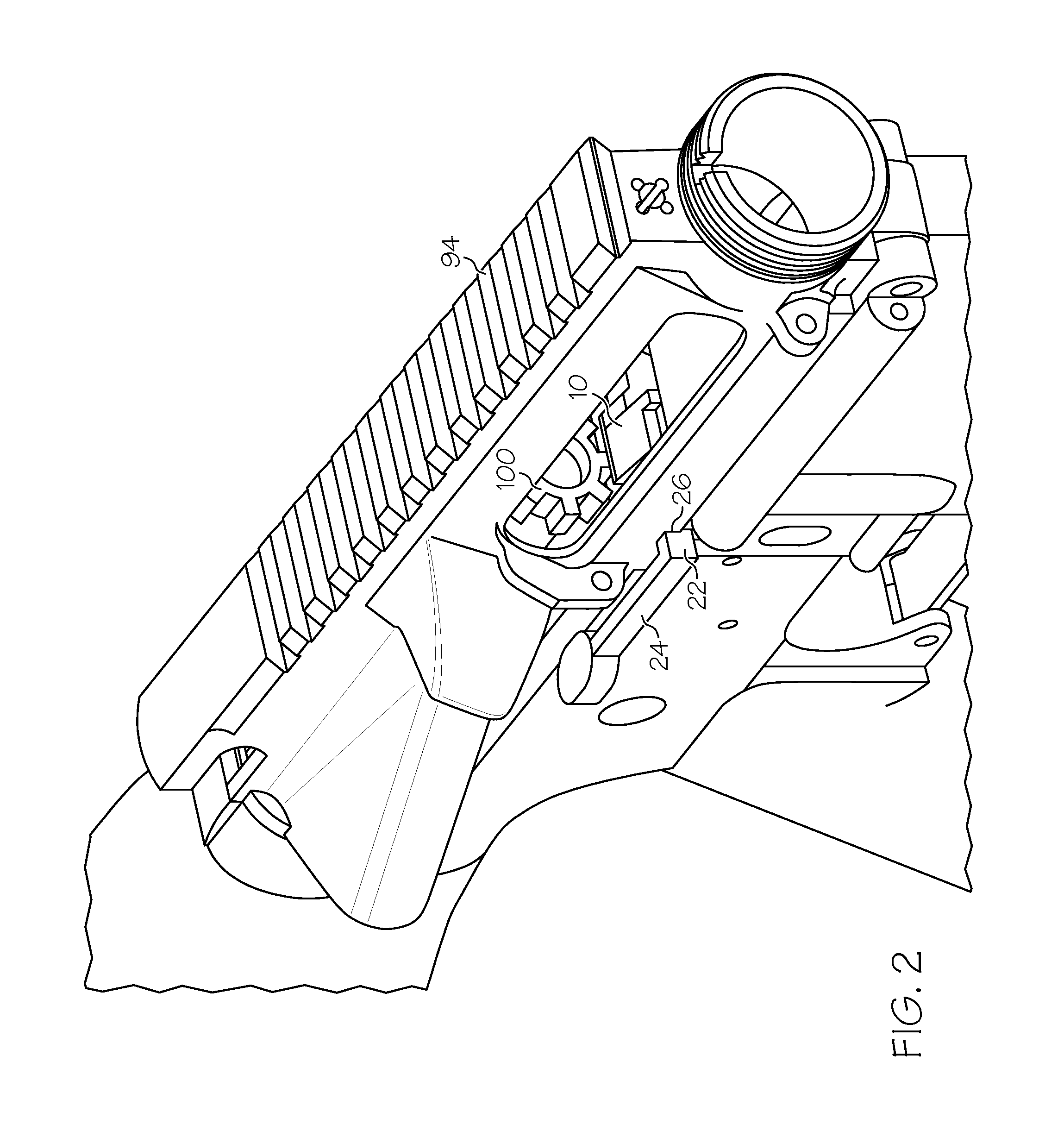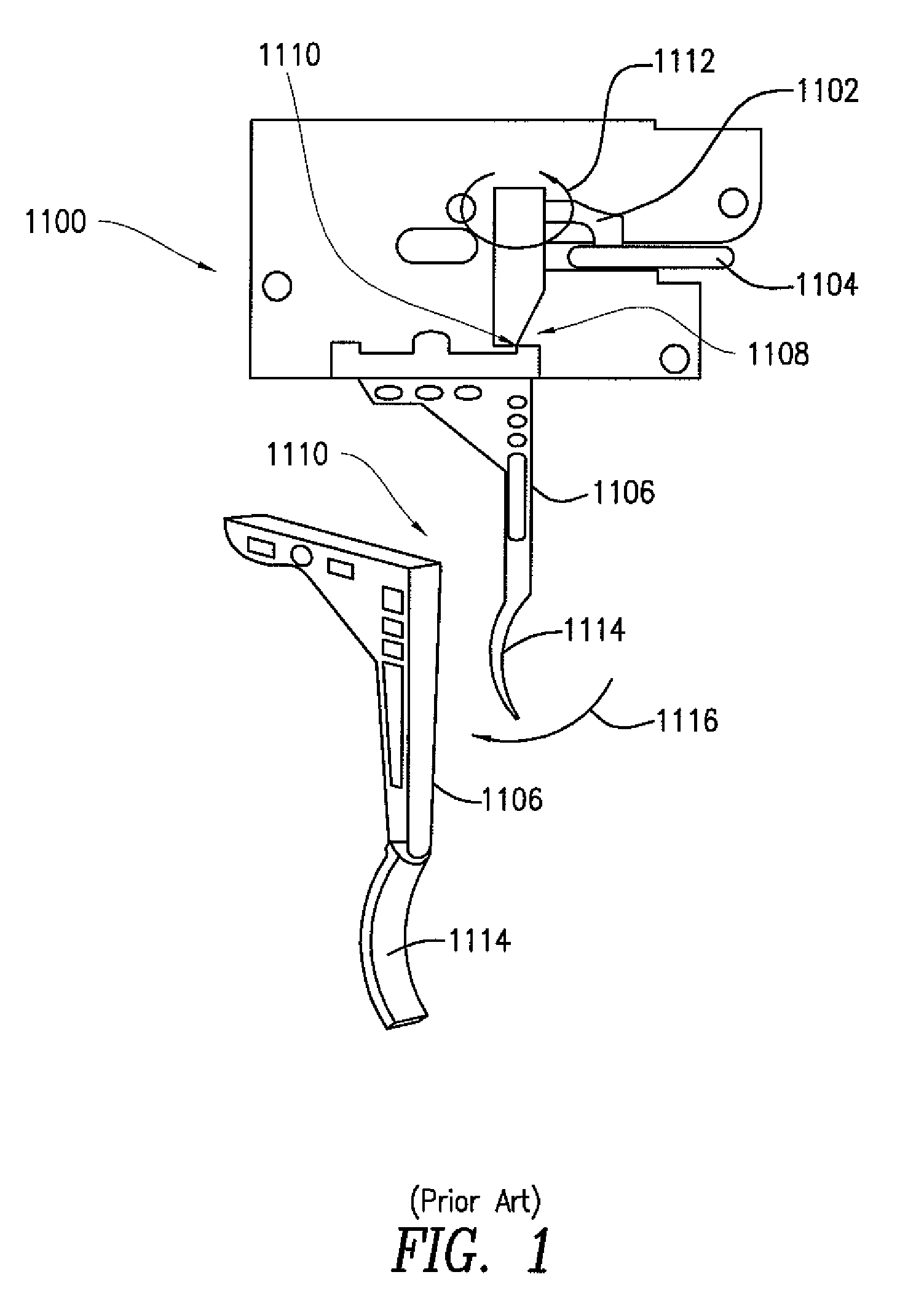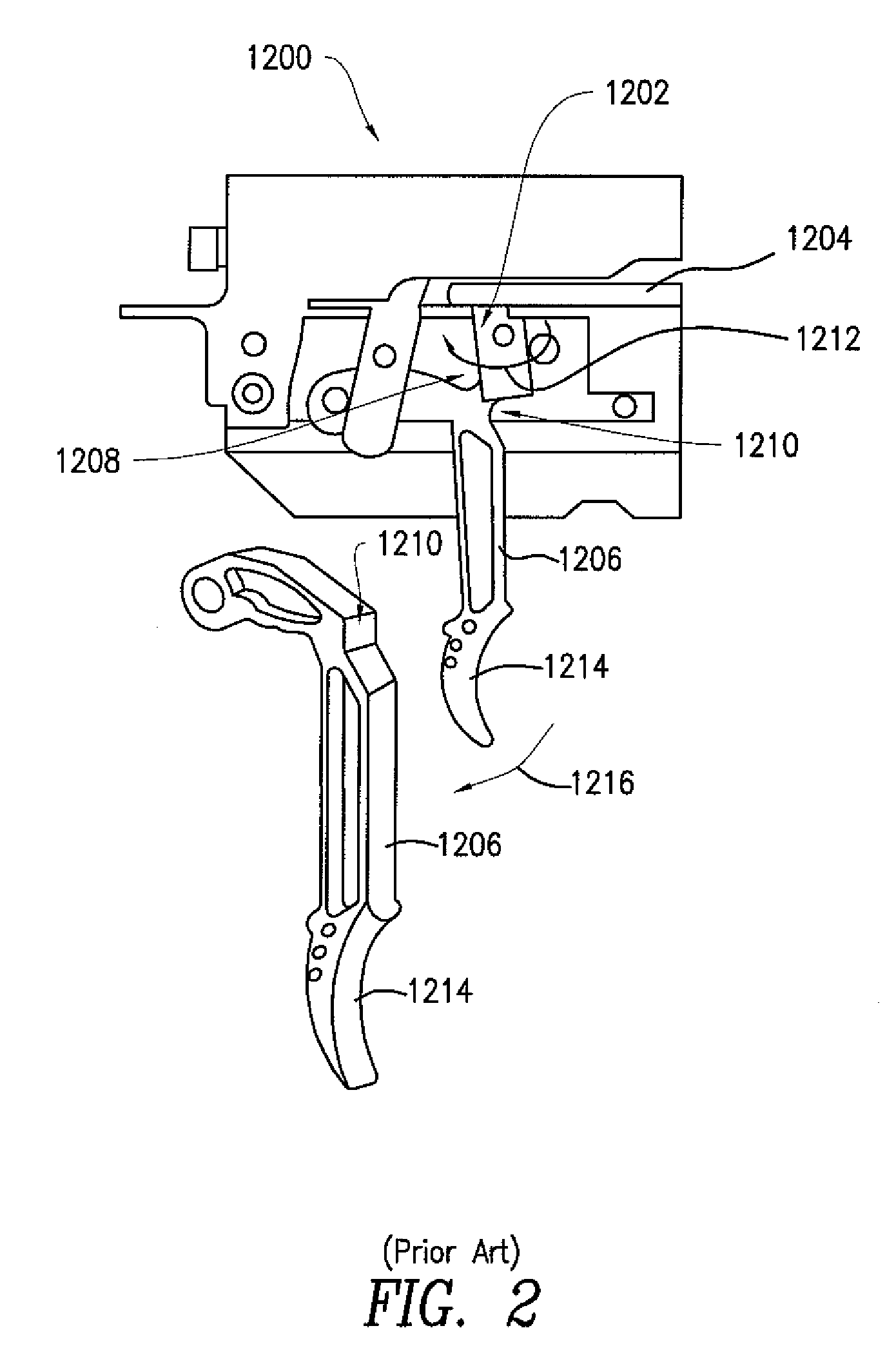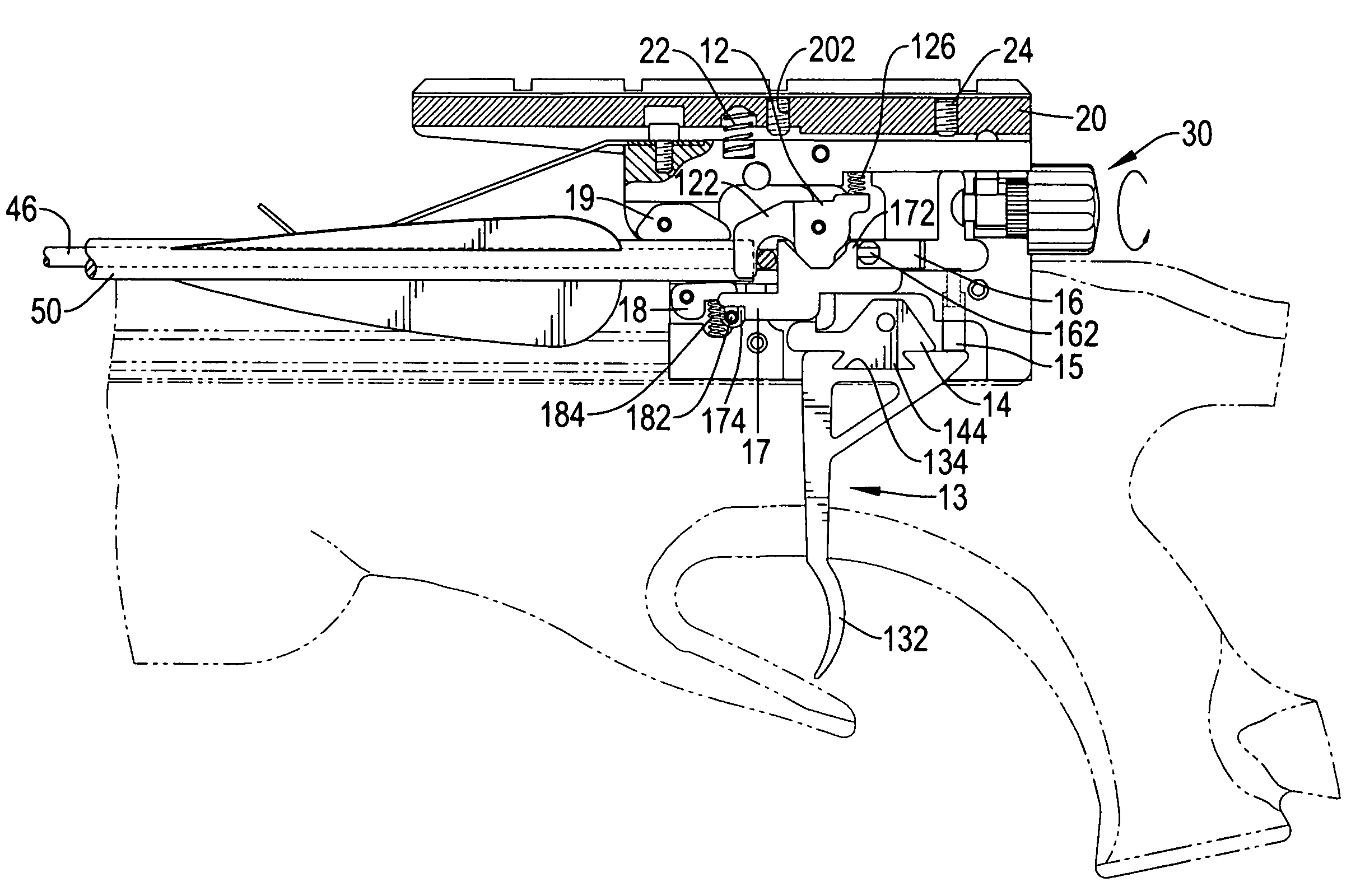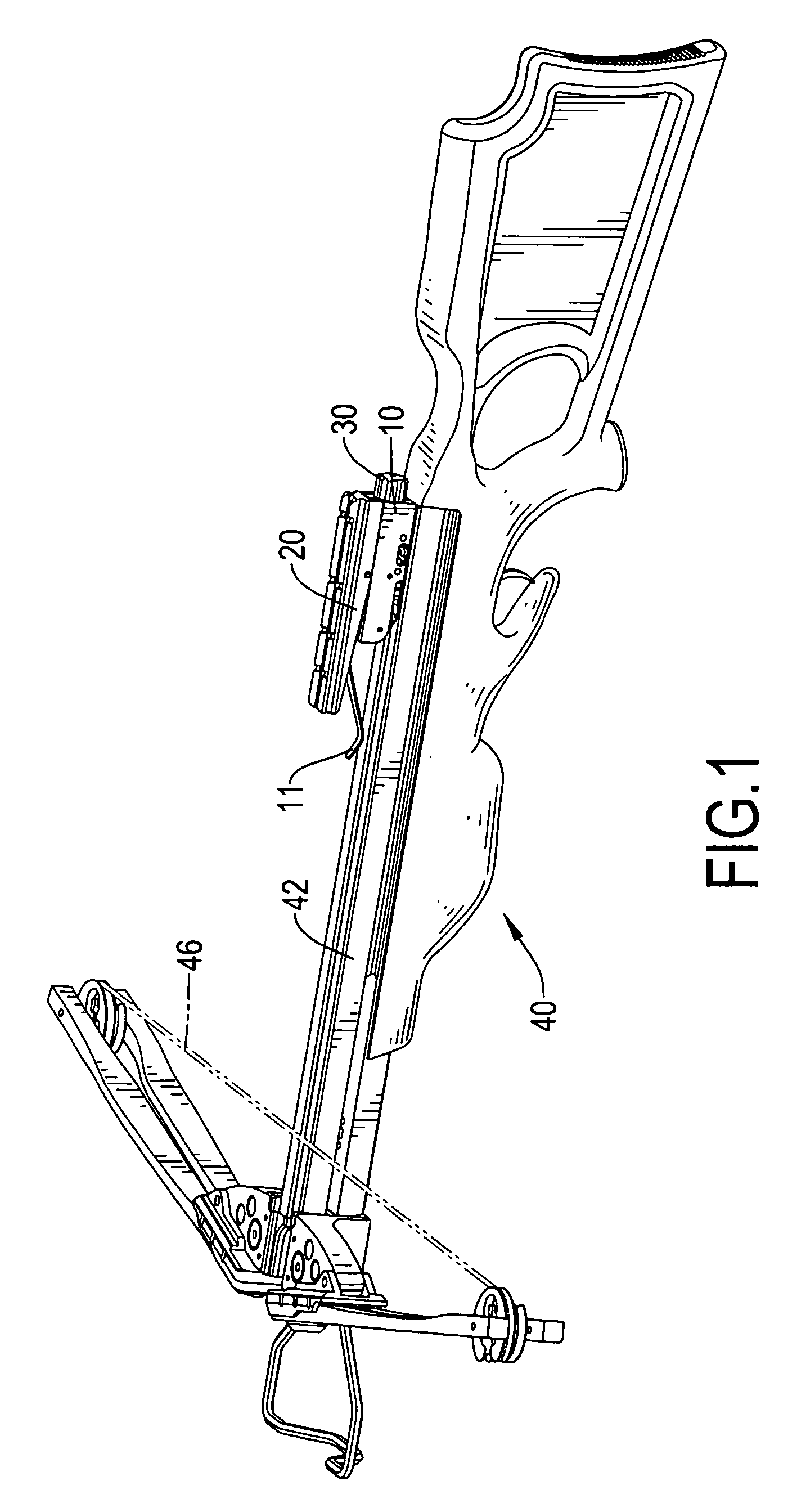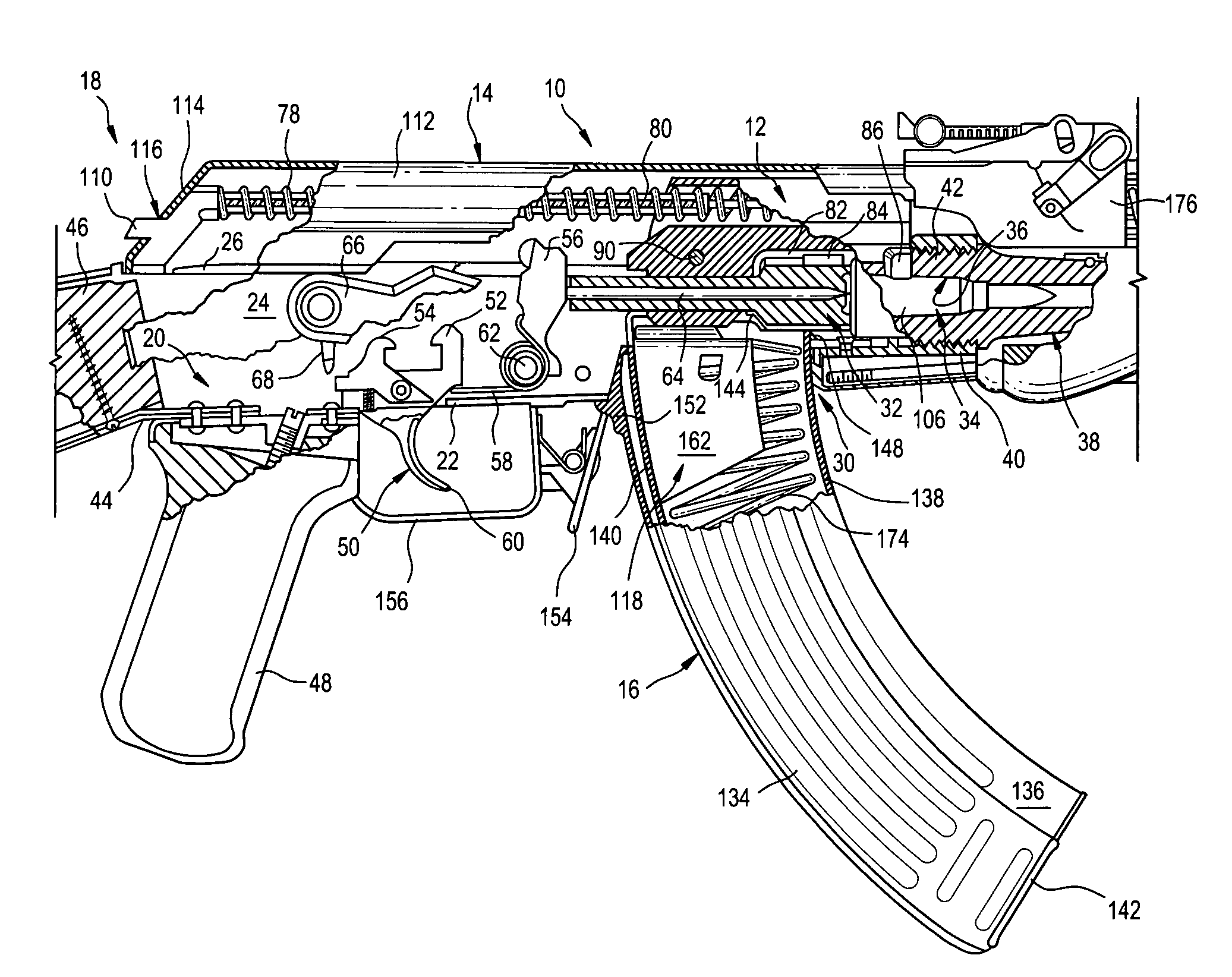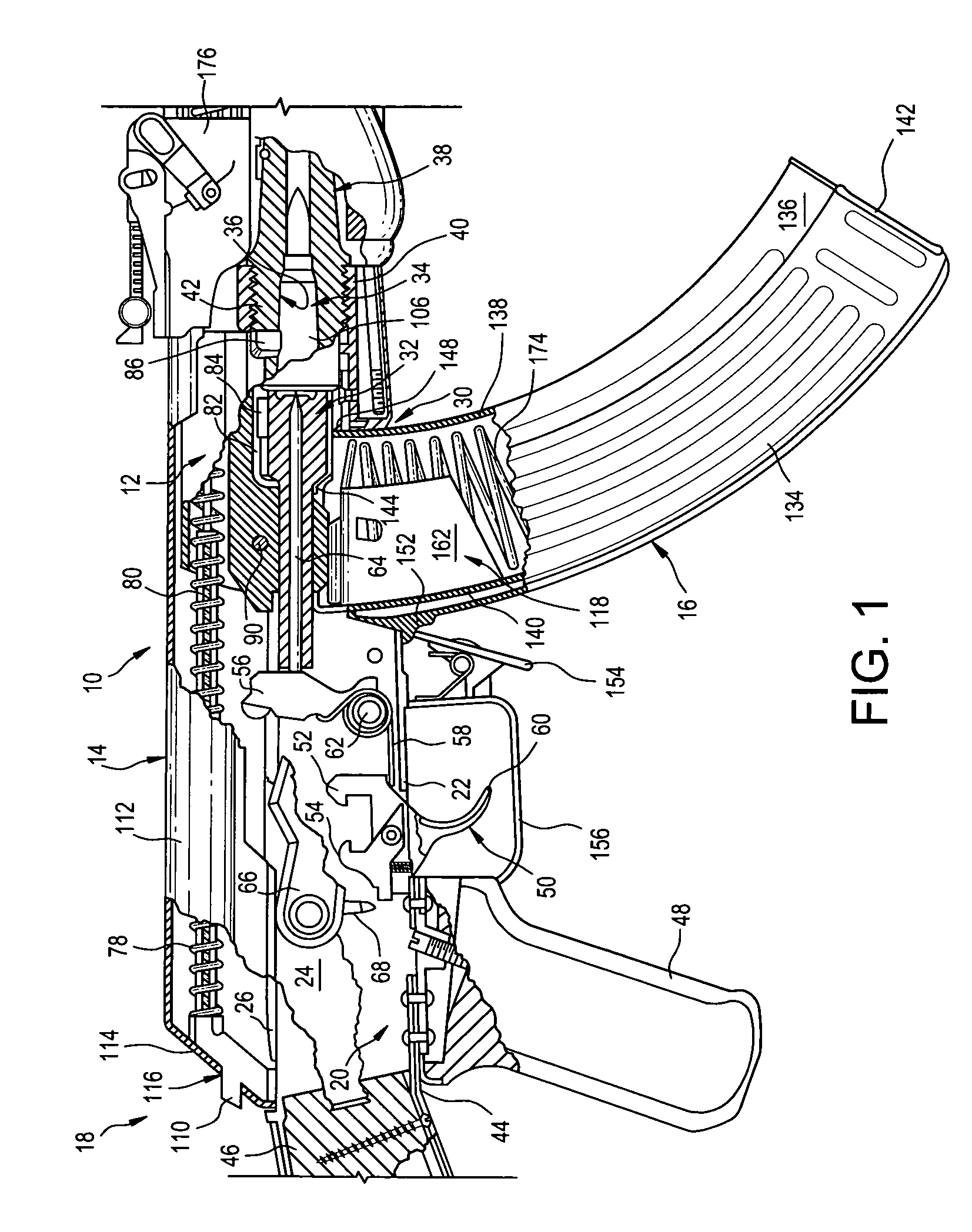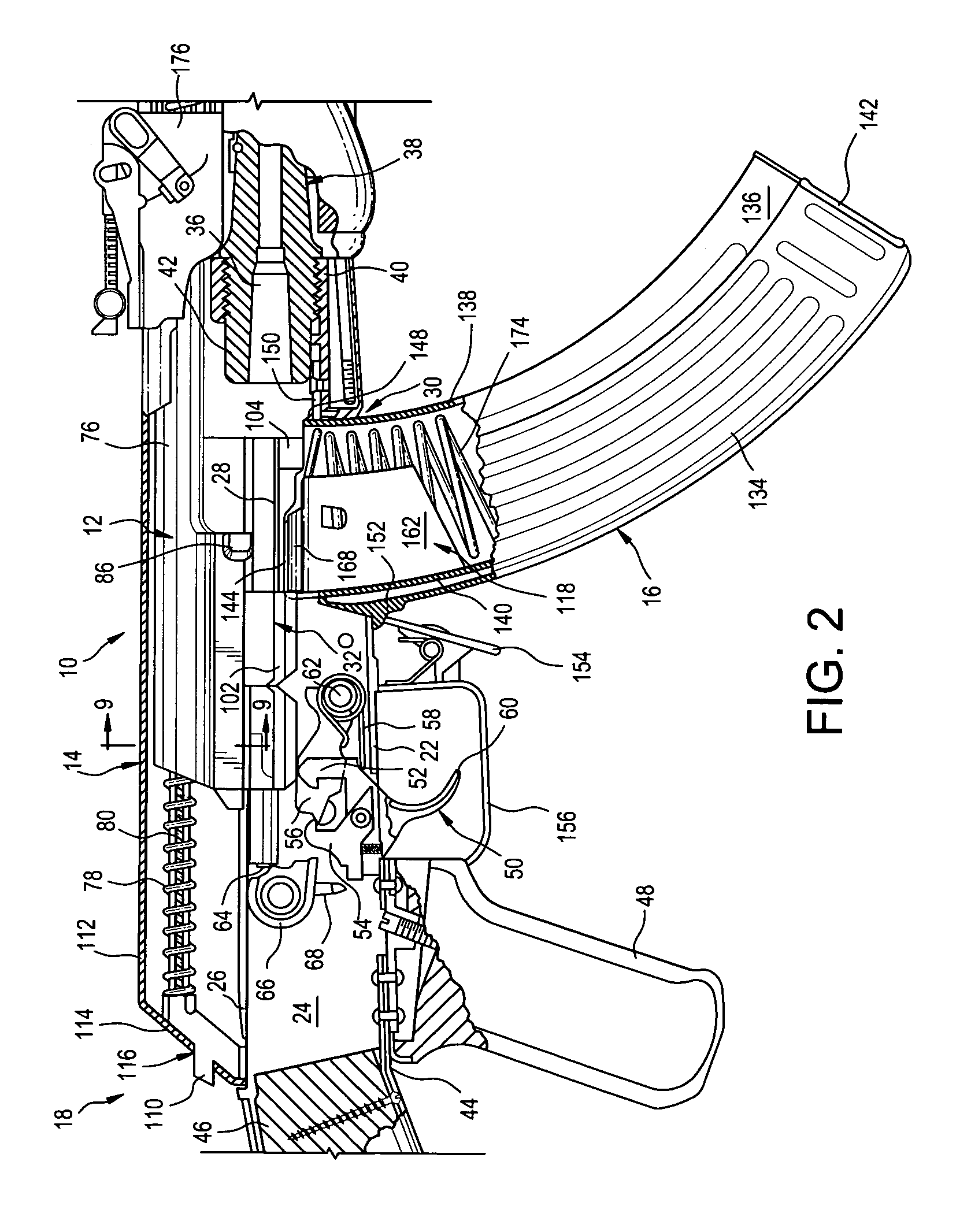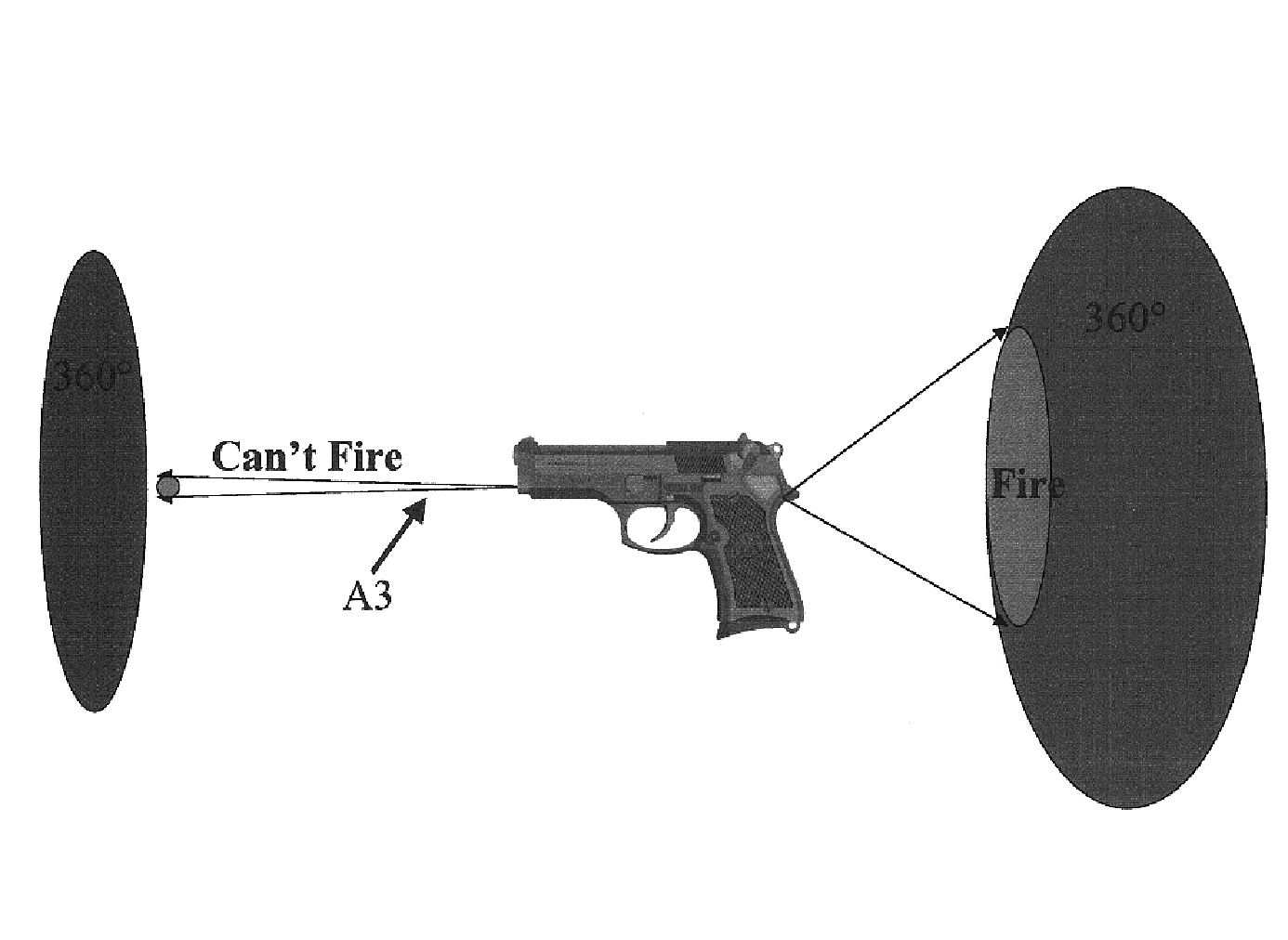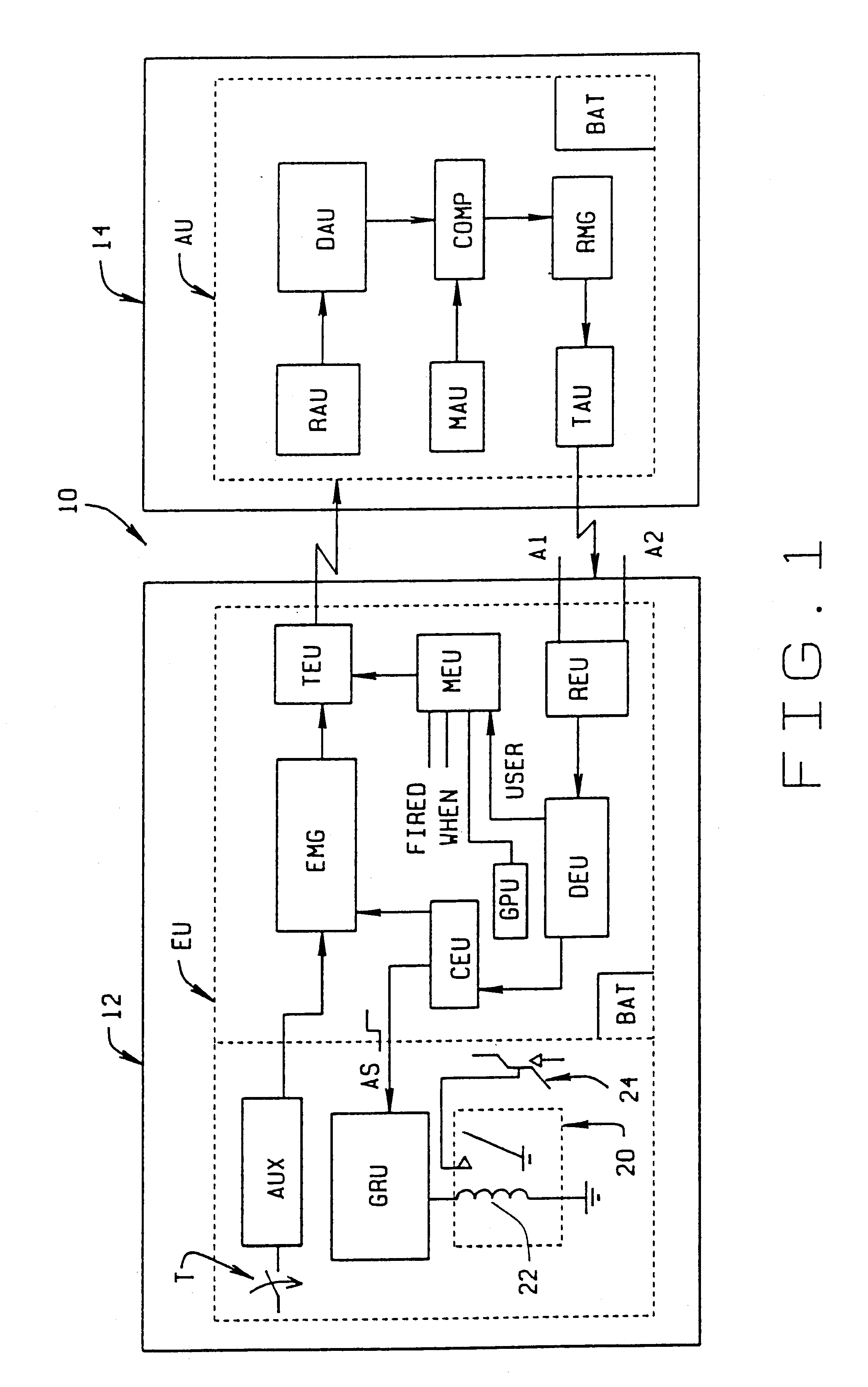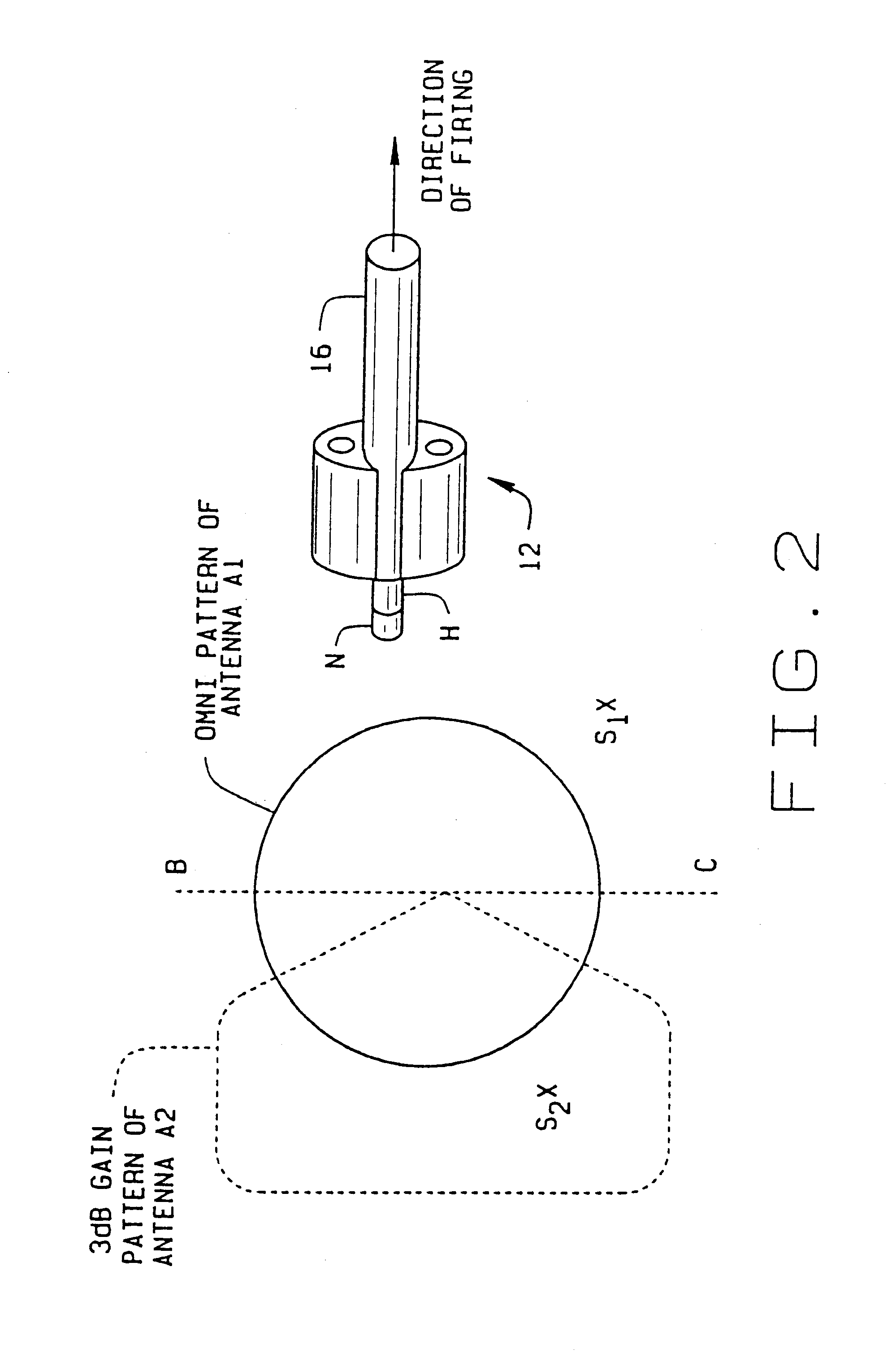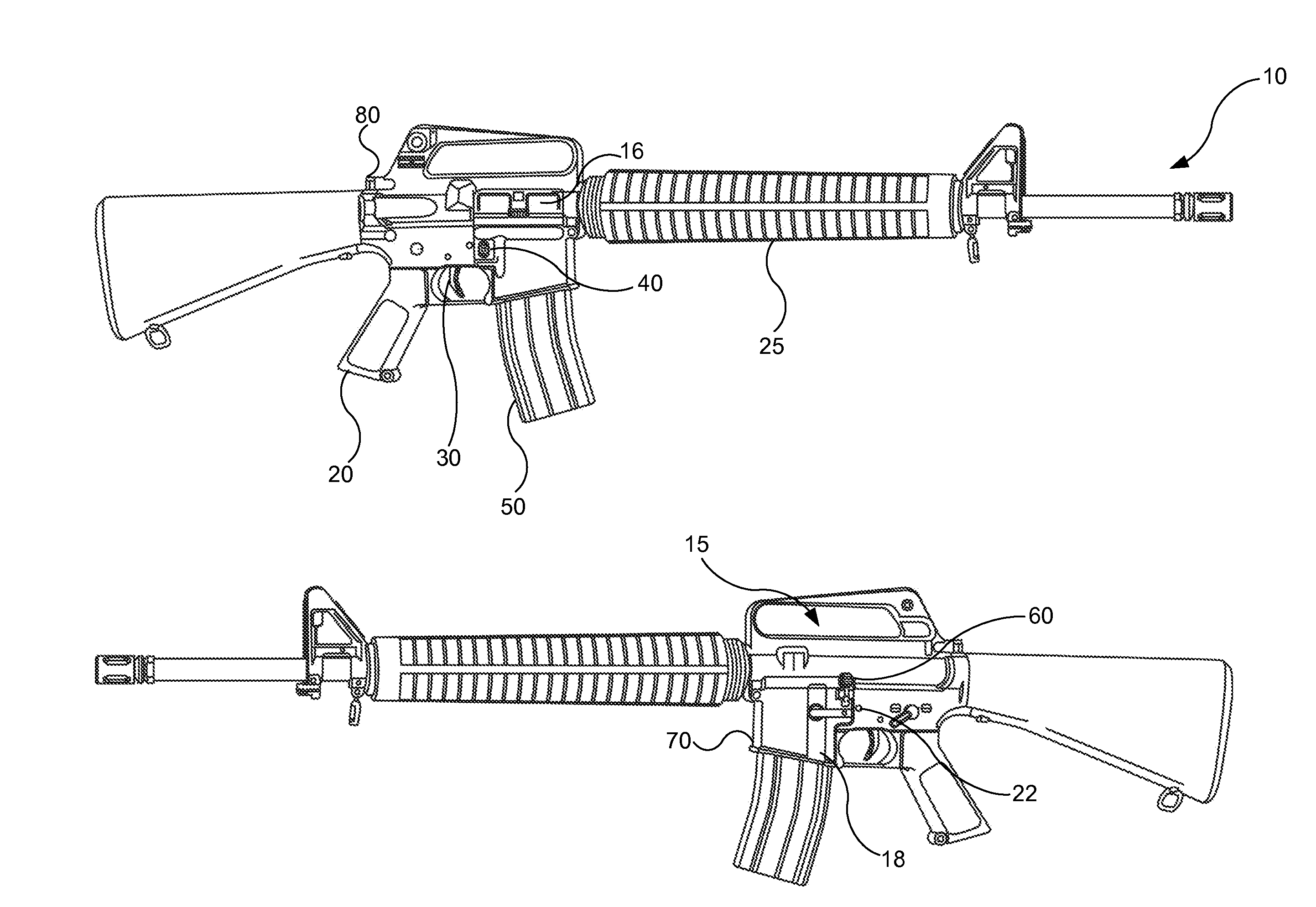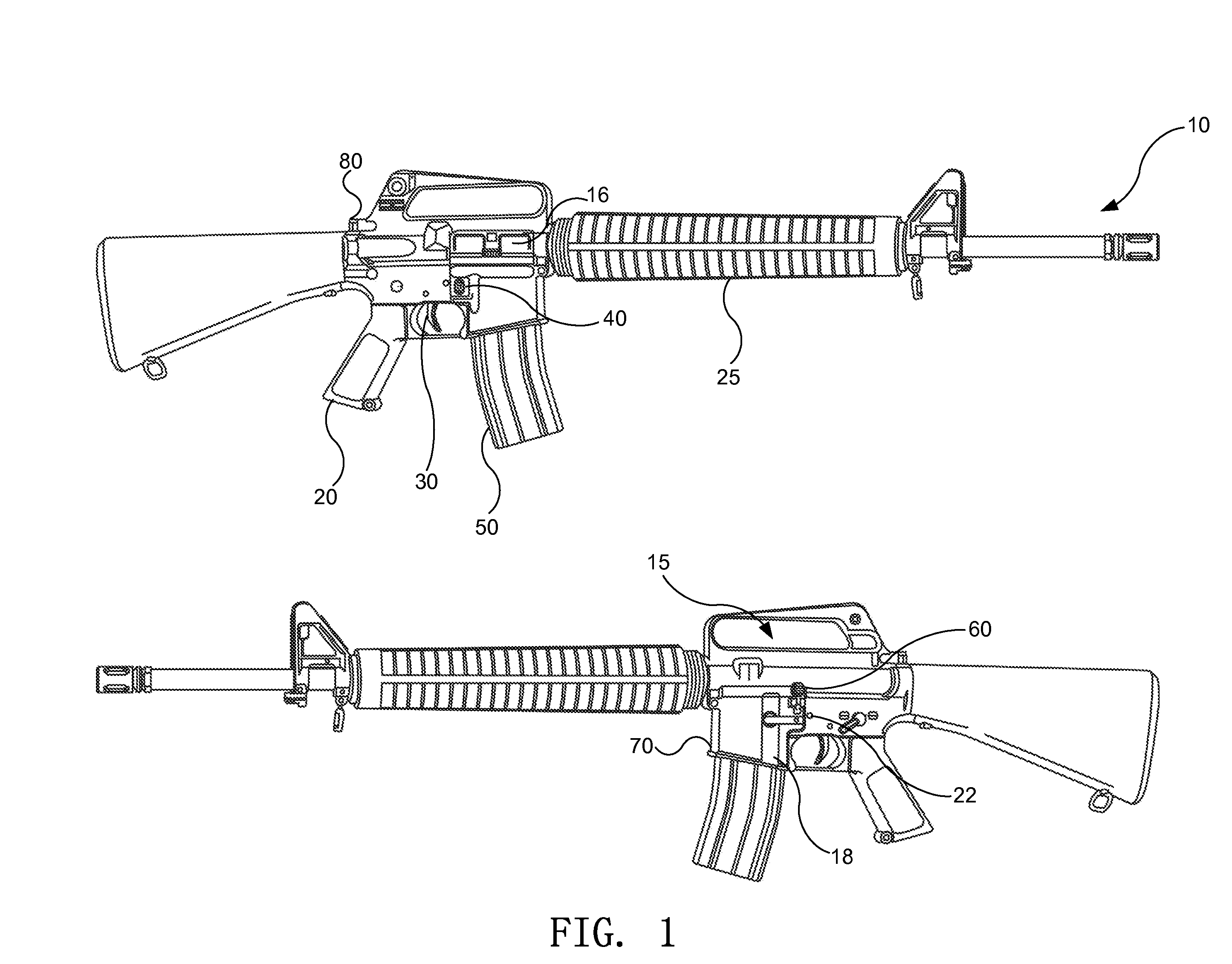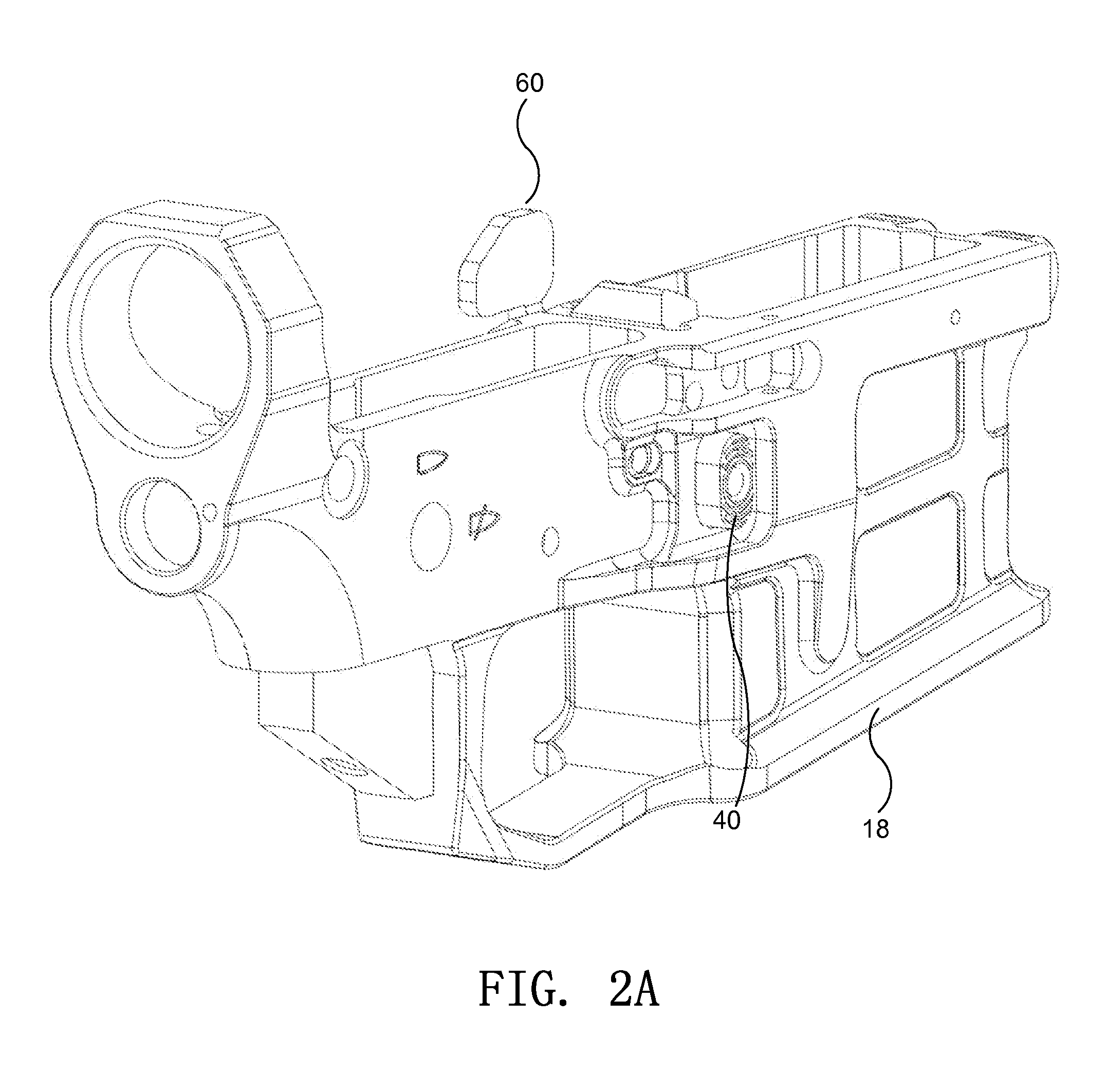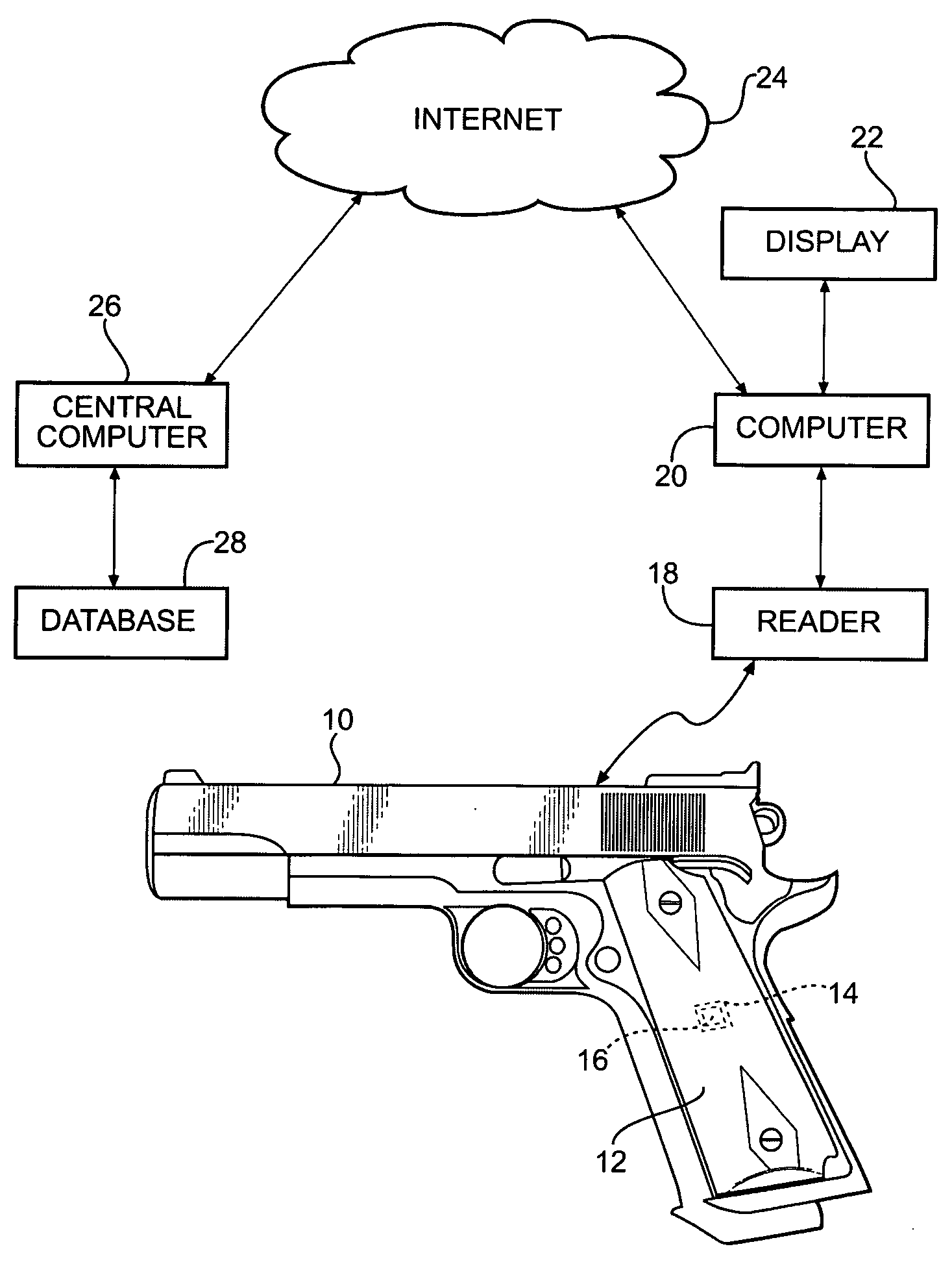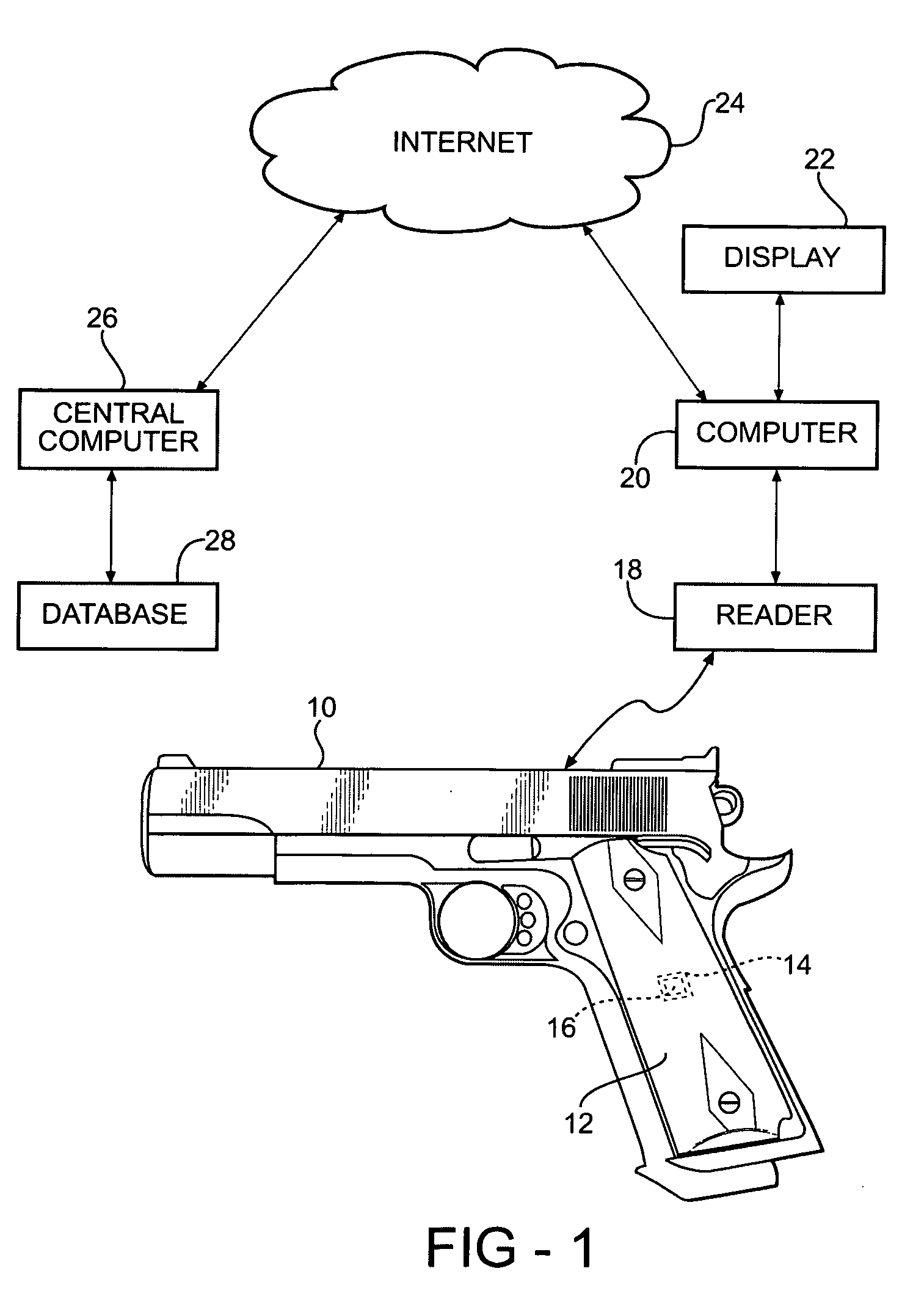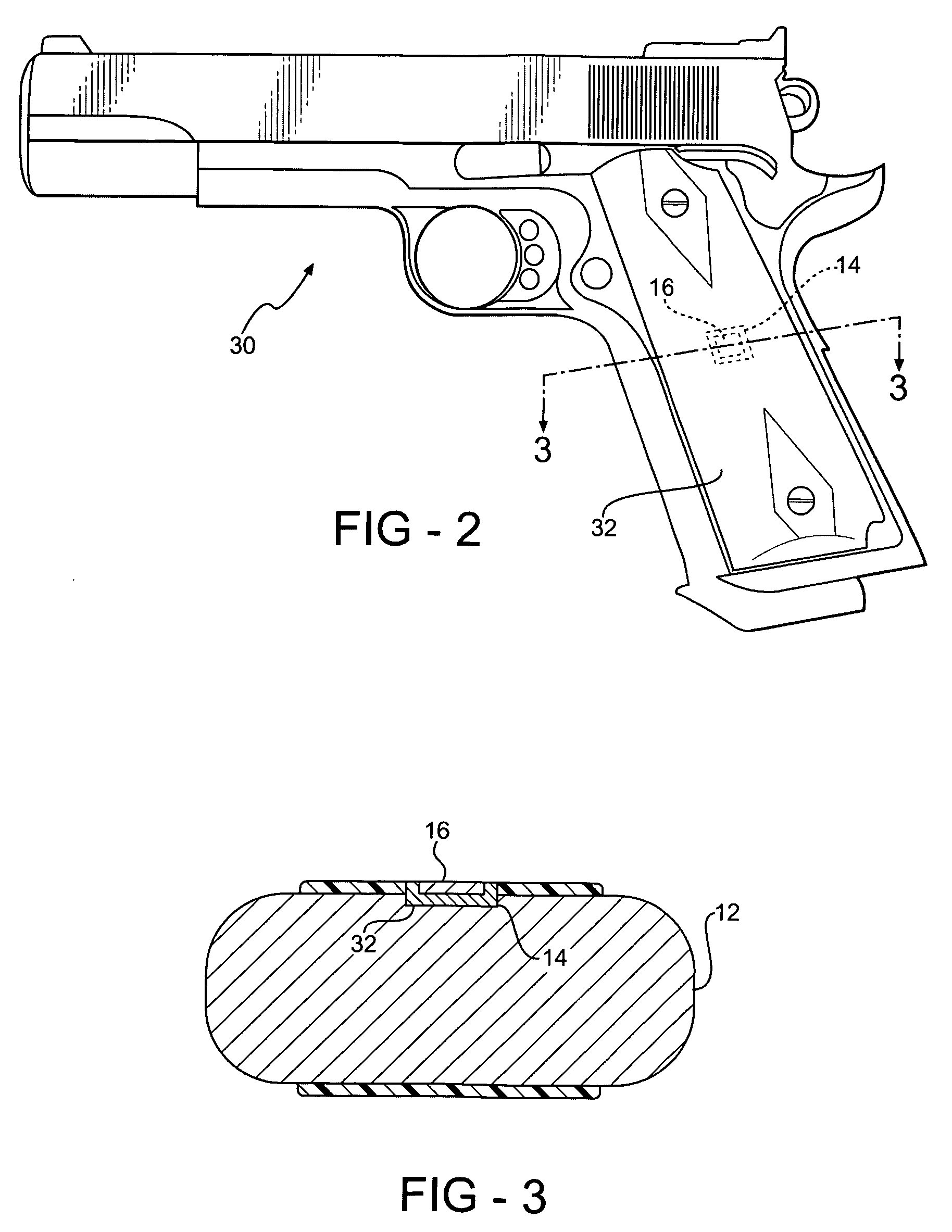Patents
Literature
Hiro is an intelligent assistant for R&D personnel, combined with Patent DNA, to facilitate innovative research.
1655results about "Safety arrangement" patented technology
Efficacy Topic
Property
Owner
Technical Advancement
Application Domain
Technology Topic
Technology Field Word
Patent Country/Region
Patent Type
Patent Status
Application Year
Inventor
Systems and Methods for Modular Electronic Weaponry
ActiveUS20070070574A1Easy to operateSafety arrangementElectric shock equipmentsModularityEmbedded system
An apparatus produces contractions in skeletal muscles of a target to impede locomotion by the target. The apparatus is used with a provided deployment unit that deploys an electrode away from the apparatus. The electrode conducts a current through the target. The apparatus includes a bus; a plurality of ports, and a controller. Each port couples a module to the bus. The controller is coupled to the bus to communicate with each module to determine a description of each module.
Owner:AXON ENTERPRISE INC
Firearm
ActiveUS20050262752A1Same forceMinimize abilitySafety arrangementCartridge extractorsFire controlEngineering
A firearm including a barrel having a chamber and an integrally formed upper receiver having a passageway, an accessory rail extending the complete length of the upper receiver, and a guidance feature extending along the passageway. The firearm also includes an operating rod having an anti-bounce mechanism, a bolt that is rotated counter-clockwise to lock against the chamber, a bolt carrier having a safety extension disposed below the bolt that prevents a hammer from striking a firing pin until the bolt is locked against the chamber, a lower receiver, a recoil spring assembly, and a fire control group. The bolt includes a polymer spring that biases a sliding extractor against the base of a cartridge. The sliding extractor is disposed at an angle ranging from thirty degrees to fifteen degrees on the bolt face to provide a low ejection angle from the firearm.
Owner:RMDI
Firearm system for data acquisition and control
InactiveUS20080039962A1Input/output for user-computer interactionSafety arrangementDocking stationData acquisition
A microprocessor circuit that is used to monitor and control a firearm. The microprocessor circuit accomplishes this by monitoring various sensor & control inputs, and acting on these inputs to execute user defined functions. The microprocessor circuit can use the sensory input to determine firearm statistics. These statistics can include the number of times the firearm has been shot, the efficiency of the firearm automatic action, range-to-target, and et cetera. The firearm system can also use a combination of sensors to fabricate a bullet chronograph whereby the muzzle velocity of a cartridge can be determined. These statistics can be date-stamped and recorded into memory. Statistics from Law Enforcement firearms can be used for courtroom evidence and police reporting. These statistics can also be used for firearm maintenance and warranty repair. The microprocessor circuit can display the statistical data to the user via simple light emitting diodes, or sophisticated liquid crystal displays. Data can also be downloaded to a computer docking station as well. The microprocessor circuit can also display the information within the optics of a riflescope. When used in conjunction with a laser range finder sensor, the microprocessor circuit can adjust the electronic cross-hairs (reticle) to compensate for the bullet trajectory.
Owner:MCRAE MICHAEL WILLIAM
Secure firearm holder
InactiveUS6843081B1Easy to removeQuickly and easily removedSafety arrangementBuilding locksLocking mechanismEngineering
A secure firearm holder (10) includes an outwardly swinging hinged plate (14) that is hinged to a holder base (12) with a gun (44) mounted at a side of the plate in a ready-to-use orientation when the plate swings outwardly. In a preferred embodiment, a bore shaft (36) is mounted on the hinged plate, the bore shaft extending into the firearm. When the plate is in a first, closed, position, the holder base prevents the gun from being removed from the bore shaft, but when a motivating member (52) rotates the plate to a second position, the gun can be easily and quickly removed from the bore shaft from a ready-to-use orientation. The motivating member biases the lid toward the second position but is held closed in the first position by a latch (50), which latch is remotely releasable. A locking mechanism has three positions: a totally-locked position (B) for locking the latch (50) against remote release of the lid; an active position (A) for allowing remote release of the lid; and a manual-release position (C) for releasing the lid manually.
Owner:PAINTER TERRY M
Ambidextrous bolt catch for firearms
An ambidextrous bolt catch device, apparatus, system and methods for using are provided. Four main components include a bolt catch finger, lever system and plunger rod assembly with torsion spring. The lever system includes a right release lever and a left release lever; the left lever is an integral part of the bolt catch finger. The plunger rod assembly abuts and connects the right and left levers; a torsion spring on the rod creates tension causing rotation of the bolt catch finger in a downward or upward position. In an upward position, the bolt catch finger engages the bolt, retains the bolt in a rearward position, and signals the operator that the magazine is empty. The bolt engaged by the finger is held rearward in a safe, reliable manner to allow an unobstructed view of the firearm chamber until manually released using either the right or left release lever.
Owner:KNIGHT'S ARMAMENT COMPANY
Powered Driver
ActiveUS20080221580A1Reduce speedReduce chanceSafety arrangementSurgical needlesGear wheelEngineering
An apparatus and methods are provided to penetrate a bone and associated bone marrow using a powered driver having a gear assembly and a motor. The powered driver may include an indicator operable to show status of a power supply associated with the powered driver. The power supply may include a battery power pack having a diamond shaped cross section. The powered driver may have a handle with a corresponding cross section.
Owner:TELEFLEX LIFE SCI LTD
Use of rfid tags and readers to automate real time alert signals in a security system
InactiveUS20060208857A1Safety arrangementElectric signal transmission systemsSecurity guardMobile device
A security system for automatically transmitting alert signals when a security appliance such as a firearm (110) carried by a security officer is drawn from its holster (130), and the method of enabling such a function under the present invention is described. The present invention makes use of radio frequency identification tags (eg 120, 134) and readers (eg 136, 186) to trigger these automatic alerts. The present invention also uses s locator function associated with a mobile device to automatically direct aid to the officer in danger. The present invention also encompasses a method of conducting security guard patrols that monitors the progress of the security guard in real time as he logs each checkpoint of the tour, through the use of RFID tags and readers.
Owner:KENETICS INNOVATIONS PTE
Quick Barrel Change Firearm
ActiveUS20120180354A1Easy to separatePrevent inadvertent movementSafety arrangementCartridge extractorsEngineeringElectrical and Electronics engineering
A firearm can have a backbone, a barrel, a swinging wedge, and a barrel latch, in accordance with one or more embodiments. The barrel latch can be in mechanical communication with the swinging wedge. The barrel latch can have a first position and a second position and the swinging wedge can be configured to maintain attachment of the barrel to the backbone when the barrel latch is in the first position and is configured to release the barrel from the backbone when the barrel latch is in the second position. Thus, the firearm can provide quick barrel changes. Other features enhance the reliability and utility of the firearm.
Owner:ARMWEST
Trigger mechanism for firearms with self-loading actions
InactiveUS20070051236A1No undesirable noise and motionSafety arrangementFiring/trigger mechanismsSemi automaticEngineering
The trigger mechanism allows the firearm to operate in a closed-bolt mode during semi-automatic fire and in an open-bolt mode during automatic fire. The mode change occurs only after the first round is discharged after the selector has been moved instead of when the selector switch is moved, thus avoiding undesirable mechanism noise or motion at the time of selecting the firing mode.
Owner:COLT CANADA IP HLDG PARTNERSHIP
Trigger assembly
ActiveUS7174884B2Easy to manufactureEasy to assembleSafety arrangementBows/crossbowsEngineeringBowstring
A crossbow having an improved firing assembly. The improved assembly attaches to a bowstring at a single point and draws the string back to have the string retained between a first string retainer and a second string retainer. By allowing the string to be drawn utilizing a single contact point on the bowstring as opposed to the prior art methods of dual engagement points with the bowstring, the cost, maintenance and undesired variance in string retention associated with the prior art are substantially eliminated.
Owner:KEMPF JAMES J +3
Ambidextrous magazine catch for firearms
The present invention relates to a retaining and release mechanism for the magazines of automatic and / or semi-automatic firearms, in particular to a type of magazine which is provided with a lateral securing slot. A tooth (52) of lever (54) is designed to engage lateral securing slot (34) of magazine (30). Said lever (54) is pivotally connected to a shaft (36), located transversely in body (16) of the firearm, by means of a pin (58) and attached at its opposite end to an operating push button (44). A lever seat (60) of said lever (54) is urged towards said body (16) of the firearm and firmly abuts a seat (50) of a magazine catch slot (28) by energy exerted through a spring (42) against said operating push button (44) and a spring cavity (74). The tooth (52) can be disengaged from lateral securing slot (34) by depressing either operating push button (44) or a depression extension (66) of said lever (54). The magazine (30) can thus be released from both sides of the rifle.
Owner:GARRETT ROBERT HUDSON +1
Receiver assembly for firearm
A receiver is configured to receiver a tabbed magazine. The receiver includes a receiver well having a slot configured to accept the tab on the tabbed magazine. In operation, the tabbed magazine can be inserted into the receiver well without having to rotate the tabbed magazine into the receiver well. A magazine catch engages a locking feature in a rib of the tabbed magazine so as to support the tabbed magazine in the receiver well. Once the tabbed magazine is empty, the tabbed magazine can be ejected by pressing a magazine release button without the need to rock the tabbed magazine out of the receiver well. The magazine release button can be configured to allow the user to eject the tabbed magazine by pressing the magazine release button on either side of the receiver. Once a loaded tabbed magazine is placed into the receiver well, the user can press a bolt stop button to release a bolt stop. The bolt stop button can be configured to allow the user to release the bolt stop by pressing the bolt stop button on either side of the receiver.
Owner:ROCK RIVER ARMS
Ambidextrously operated bolt catch assembly
ActiveUS20120167424A1Overcome difficultiesComplex structureSafety arrangementBreech mechanismsMechanical engineeringPRIMARY CONTACT
An ambidextrously operated bolt catch assembly for a firearm facilitates ease of use by either right handed or left handed shooters. The ambidextrous bolt catch assembly includes two levers, one on each side of the firearm, that interact with each other. Each lever has a primary contact surface and a secondary contact surface. By depressing the primary contact surface of either lever, both levers rotate to move the bolt catch assembly from a displaced position to a static position. Conversely, by depressing the secondary contact surface of either lever, both levers rotate to move the bolt catch assembly from a static position to a displaced position.
Owner:LWRC INTERNATIONAL
Gunshot detector and notification system
A gunshot detection system includes a firearm and a communication device. The firearm includes a transceiver circuit that detects the discharge of an ammunition round. Upon the discharge occurring, the transceiver circuit emits an electromagnetic signal. The electromagnetic signal is received by the communication device, which may be a cellular telephone or two-way radio. The communication device is equipped with a geographic location sensor, like a GPS receiver for example. Software within the communication device then causes an informational message that includes geographic information to be transmitted to a remote device. For instance, when a police officer discharges his firearm, an informational message stating “Officer 1234 has just fired 3 shots at the intersection of Cucumber and Vine—please respond” may be transmitted. The informational message may change as information like the geographic location change.
Owner:MOTOROLA INC
Sensor array for unauthorized user prevention device
InactiveUS20040031180A1Safety arrangementCharacter and pattern recognitionSensor arrayComputer module
Improvements in the sensor array are disclosed for an array used in a module for preventing unauthorized use of a firearm or other device. The module to which the invention is applicable of the type including a plurality of pressure sensors for sensing a user's handgrip on the device; comparator means for comparing a pressure signature profile compiled from an output from said pressure sensors with at least one pressure signature profile in storage; and means for preventing operation of the device when the compared profiles do not match. The improved sensor array comprises a first set of spaced electrically conductive lines formed on the gripping surface; a thin layer of (preferably) piezoresistive material overlying the first set of conductive lines; and a second set of spaced electrically conductive lines formed over the piezoresistive layer. The lines of the second set are orthogonal to the lines of the first set, to establish a grid-like pattern of conductive lines sandwiching the piezoresistive layer. The projected intersections between the lines of the first and second sets (i.e., the grid crossing points) thereby define with the intervening portion of the piezoresistive layer, an array of sensors which are responsive to pressure applied against the gripping surface by a user of the device. Such pressure changes the electrical conductivity in the path including the intersecting lines and intervening piezoresistive material. Signal outputs from the electrical paths including the array of sensors serve to define the pressure signal profile.
Owner:NEW JERSEY INSTITUTE OF TECHNOLOGY
Firearm
InactiveUS20090000173A1Minimize timeReduce manufacturing costSafety arrangementCartridge extractorsEngineeringMechanical engineering
Owner:RMDI
Receiver assembly for firearm
A receiver is configured to receiver a tabbed magazine. The receiver includes a receiver well having a slot configured to accept the tab on the tabbed magazine. In operation, the tabbed magazine can be inserted into the receiver well without having to rotate the tabbed magazine into the receiver well. A magazine catch engages a locking feature in a rib of the tabbed magazine so as to support the tabbed magazine in the receiver well. Once the tabbed magazine is empty, the tabbed magazine can be ejected by pressing a magazine release button without the need to rock the tabbed magazine out of the receiver well. The magazine release button can be configured to allow the user to eject the tabbed magazine by pressing the magazine release button on either side of the receiver. Once a loaded tabbed magazine is placed into the receiver well, the user can press a bolt stop button to release a bolt stop. The bolt stop button can be configured to allow the user to release the bolt stop by pressing the bolt stop button on either side of the receiver.
Owner:ROCK RIVER ARMS
Firearm-mounted camera device with networked control and administration system and method
ActiveUS20150369554A1Save resourcesSafety arrangementTelevision system detailsAccelerometerComputer graphics (images)
An electronic camera device, and associated system and interfaces, that generates, records and transmits video, audio and sensor data. Camera device comprises a housing with a fastening mechanism adapted to mount the device to a firearm. The device has a processor module, a memory module for storage, a camera module configured to generate and record video and store the video to memory. The device further includes a magnetic sensor configured to detect the presence and absence of a magnet and an accelerometer that is configured to detect a draw motion (e.g., a firearm being unholstered). When the magnetic sensor detects the absence of a magnet, and the accelerometer detects a draw motion, one or more corresponding signals are generated and transmitted, directing the camera to begin recording (and transmitting) video and send an alert signal to assets in the field to provide support.
Owner:CENTINEL SHIELD LLC
Realtime memorialization firearm attachment
A firearm accessory that includes a body that is demountably attached to a firearm, the body containing: a camera; a microphone; a memory chip; a micro-controller operable to record a user's firearm activity into the memory chip as captured by the camera and the microphone; and, a trigger-switch mechanism demountably attached to a firearm-handle operable by a user's finger to turn the contents of the body on but not off. The body disposed on a firearm further includes a plurality of electronic components operable to: record audio, video, location, time, and date, at the time of usage of a firearm; and transmit the recorded a record audio, video, location, time, and date, outside of the body through a wire, a portable memory card, or wirelessly in realtime.
Owner:BENSAYAN MAIQUEL +1
Modular insertion trigger method and apparatus
ActiveUS7421937B1Limit amount of rotationSafety arrangementFiring/trigger mechanismsEngineeringRivet
A trigger assembly comprising a housing adapted to mount a trigger, hammer and sear therein. The housing has an adjustment feature adapted to fixedly mount the housing within the trigger chamber portion of the firearm. The trigger assembly is particularly conducive for an AR-15 type rifle and the various sear engagement surfaces are adapted to be adjustable irrespective of the various dimensions and tolerances of the underlying firearm. A safety system is employed that adjustably allows proper engagement of the trigger tail to properly engage and disengage the safety mechanism.
Owner:J & K IP ASSETS
Adjustable modular trigger assembly for firearms
Applicants have disclosed an adjustable modular trigger assembly, and a related method, to avoid an unexpected firing of a long gun after an unintentional trigger pull. Applicants' preferred assembly comprises: a modular trigger housing, containing every trigger component, designed to be removably mounted within a lower firearm receiver; a trigger pull adjustment screw in a housing wall; and a sear force adjustment screw in another housing wall. During an intentional trigger pull, the shooter's finger pushes against a secondary trigger until it nestles within a slot of a non-coaxial primary trigger. Continued pulling on both triggers causes a sear to fall off a hammer notch and the firearm to discharge. In an unintentional trigger pull or jostling of the primary trigger, hooked protrusions (within the housing) of the second trigger and hammer engage to block the hammer from fully rotating, thereby avoiding discharge of the firearm.
Owner:O F MOSSBERG & SONS
Sighting Mechansim For Fire Arms
ActiveUS20080163536A1Improve accuracyEasy to operateSafety arrangementSighting devicesBiometric dataImaging processing
A sighting mechanism for a firearm, including a video camera, a video screen, a digital sighting distance meter, at least one sensor for measuring environment, cartridge and / or weapon parameters, at least one biometric sensor, at least one memory module for biometric data and / or munitions data and a digital computer. The sighting device includes at least two video cameras arranged in a parallel manner in relation to each other to capture the target sighting field. The computer has at least two video input points and an image processing unit enabling the video image data to be superimposed in real time in a pixel precise manner in relation to the target field and to be reproduced on the screen. The computer includes a ballistic computer which enables the target image to reproduced on the screen. A graticule, which is arranged in the superimposed screen or on the screen, can be positioned in an automatic manner and in real time according to the incoming data, such that the position of the graticule in the target field corresponds to a real projectile point of impact.
Owner:KOCH RUDOLF +2
Ambidextrous rifle bolt stop release
A method of modifying a rifles of the M16, M4, AR15 platform provides a second bolt stop release operable from the right side of the rifle. The second bolt stop release is a rigid extension of the bolt stop that passes through the right receiver wall to a position accessible to a user gripping the rifle with the user's right hand in conventional firing position. The two bolt stop releases provide the inventive rifle ambidextrous bolt release operation.
Owner:TEAL BLUE BRAVO
Crossbow
A crossbow includes a trigger mechanism having a trigger housing for receiving a bowstring of a crossbow and a bowstring catch mounted with respect to the housing and adapted to releasably engage a crossbow bowstring brought within the trigger housing. The crossbow further includes a trigger adapted to releasably engage the bowstring catch, the trigger being further adapted to be selectively actuated by a user so as to cause the trigger to release the bowstring catch, thereby causing the bowstring catch to release a crossbow bowstring. Optionally, the crossbow may include a ball disposed between the bowstring catch and the trigger, the ball being adapted to bear and react to forces arising between the bowstring catch and the trigger during at least one of the trigger so engaging the bowstring catch and the trigger so releasing the bowstring catch.
Owner:KODABOW
Trigger assembly with a safety device for a crossbow
Owner:POE LANG ENTERPRISE
Firearm bolt locking mechanism
InactiveUS7261029B1Fast loadingIncrease speedSafety arrangementFiring/trigger mechanismsLocking mechanismEngineering
A firearm bolt locking mechanism includes a locking pin in the bolt carrier of a firearm like an AK-47 assault rifle or variant thereof. The locking pin is normally urged from the bolt carrier by a compressed spring. The mechanism also includes a pivot arm mounted on the receiver cover of the firearm. The pivot arm has a spring-biased finger that normally fills a hole in the receiver cover. The mechanism further includes a magazine that stops the bolt of the firearm when the last cartridge from the magazine is fired and permits the spring to drive the locking pin into the hole. After replacing the empty magazine with a full one, the pivot arm is pressed to replace the locking pin in the hole with the finger and to release the bolt carrier to chamber a cartridge.
Owner:DAVIS DOUGLAS P
Apparatus and method for user control of appliances
Apparatus (10) and a method for rendering a weapon (12) incapable of use unless authorized by a specified individual. More than one person may be authorized to use the weapon, however only one person may be authorized to use it at any one time. Each authorized person carries a badge (14) or other device which includes an rf transmitter (TAU) capable of transmitting a coded signal to a receiver (REU) installed in the weapon in response to a coded query from a unit (EU) installed in the weapon. If a properly coded transmission is received by the weapon, it becomes capable of being fired by the person who authorized its use. However, the weapon will not fire unless the person using the weapon is also standing behind the weapon. This prevents the weapon from being turned on the person authorized to use it. The apparatus stores details of the weapon's use (e.g., who, when, and where). This information is released upon receipt of an authorized code.
Owner:WOOTTON JOHN R +2
Firearm receiver with ambidextrous functionality
Embodiments of the present invention provide firearm receiver with ambidextrous features. Some of these features include a bolt-locking mechanism on a firearm receiver that is configured to allow an operator to clear jams while maintaining hold of a firing grip. The bolt-locking mechanism may include a linking mechanism configured to manipulate a bolt-catch device in response to activation of a magazine release button on a firearm receiver. Other features include an ambidextrous magazine release mechanism on a firearm receiver that is configured to allow an operator to release an inserted magazine while maintaining hold of a firing grip with either hand. The magazine release mechanism may include a linking mechanism configured to manipulate a magazine catch device in response to activation of either a right-handed magazine release button or a left-handed magazine release lever that pivots on an external fulcrum on a firearm receiver.
Owner:AXTS INC
Firearm accessory
An accessory device useful for any of training, compliance, safety, and accountability of individuals in the use of firearms. An embodiment comprises a circuit board and housing with a means for attaching the accessory to a firearm. The circuit board may comprise an inertial measurement unit (IMU), a GPS receiver, memory to store data, a means for transmitting data, and a microprocessor unit for controlling operations of the printed circuit board. The IMU may comprise a gyroscope, accelerometer, and magnetometer. The accessory can provide position and movement data of such accuracy as to disclose, after transmission and analysis, a firearm user's stability prior to and during discharge, how well the user managed recoil from the discharge, and how quickly the user returned to a starting position following discharge. A reviewer may also be able to discern movements such as those caused by a user's breathing or involuntary muscle contractions.
Owner:SCHMEHL STEWART JACOB +2
Method and apparatus for detecting and identifying firearms
InactiveUS20050262751A1Precise positioningEasy reception and transmissionSafety arrangementAmmunition loadingEmbedded systemSerial code
A system for detecting the presence of firearms and identifying their unique status includes a radiofrequency identification chip supported within each firearm either by the manufacturer or by later retrofit. The RFID chip stores the unique serial number for the firearm, preferably in nonvolatile form. A reader for the chips may be used to transmit an interrogating signal from a distance which causes the chip to send a responsive signal including its serial number. The reader picks up the serial number and provides it to an associated computer. The serial number so obtained may be used with databases to maintain inventories of firearms or determine the history of firearms.
Owner:LESLIE DENNIS
Features
- R&D
- Intellectual Property
- Life Sciences
- Materials
- Tech Scout
Why Patsnap Eureka
- Unparalleled Data Quality
- Higher Quality Content
- 60% Fewer Hallucinations
Social media
Patsnap Eureka Blog
Learn More Browse by: Latest US Patents, China's latest patents, Technical Efficacy Thesaurus, Application Domain, Technology Topic, Popular Technical Reports.
© 2025 PatSnap. All rights reserved.Legal|Privacy policy|Modern Slavery Act Transparency Statement|Sitemap|About US| Contact US: help@patsnap.com
